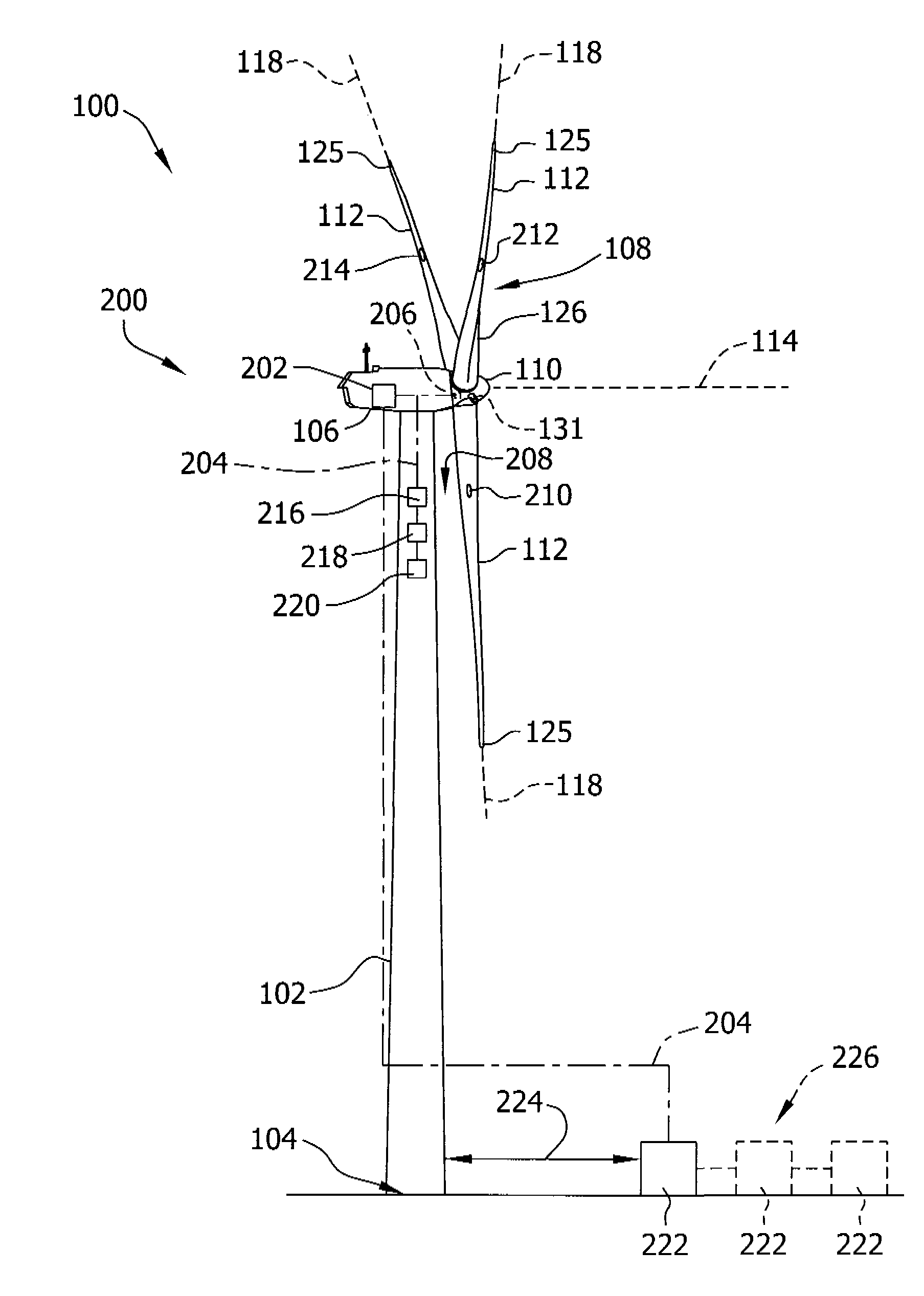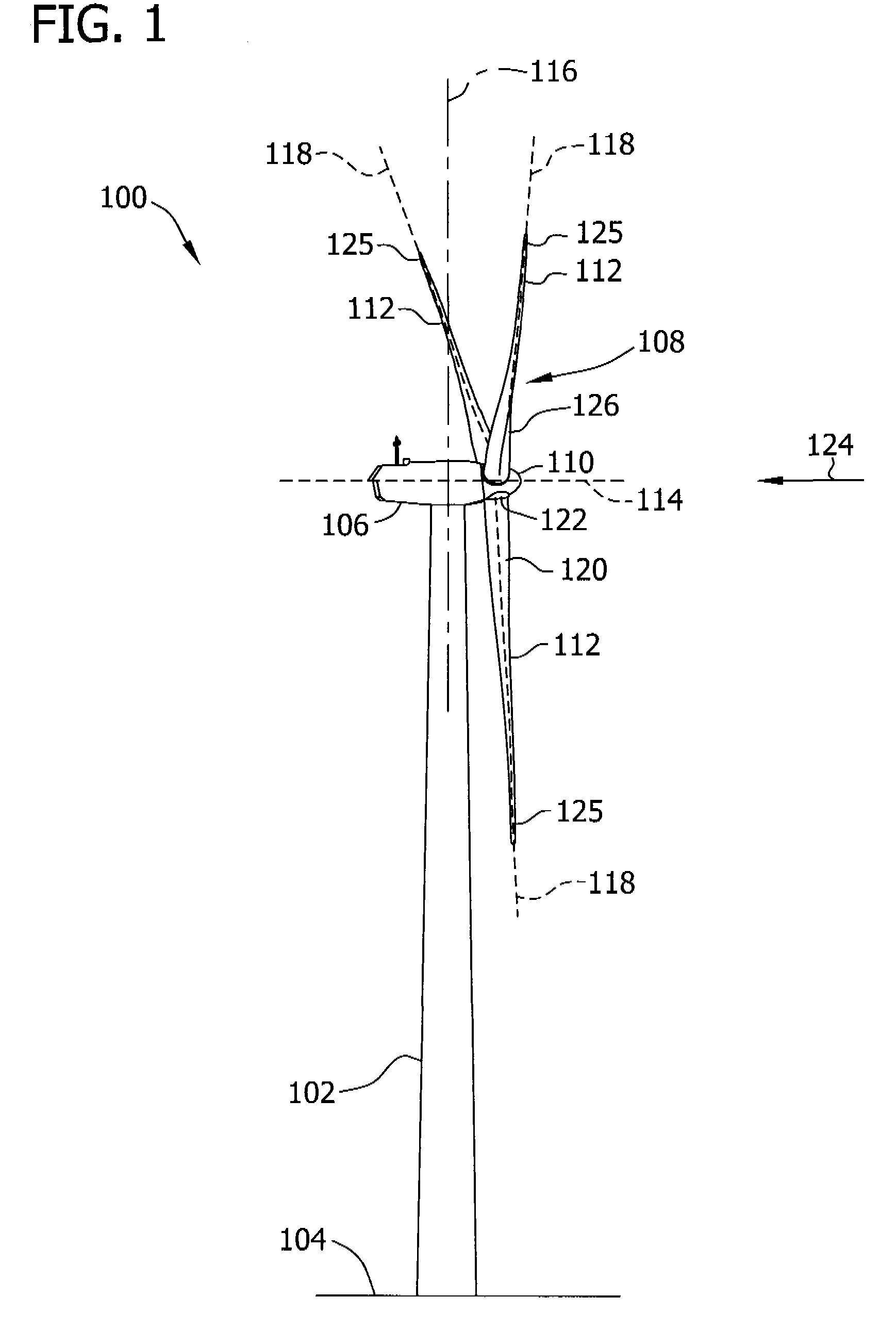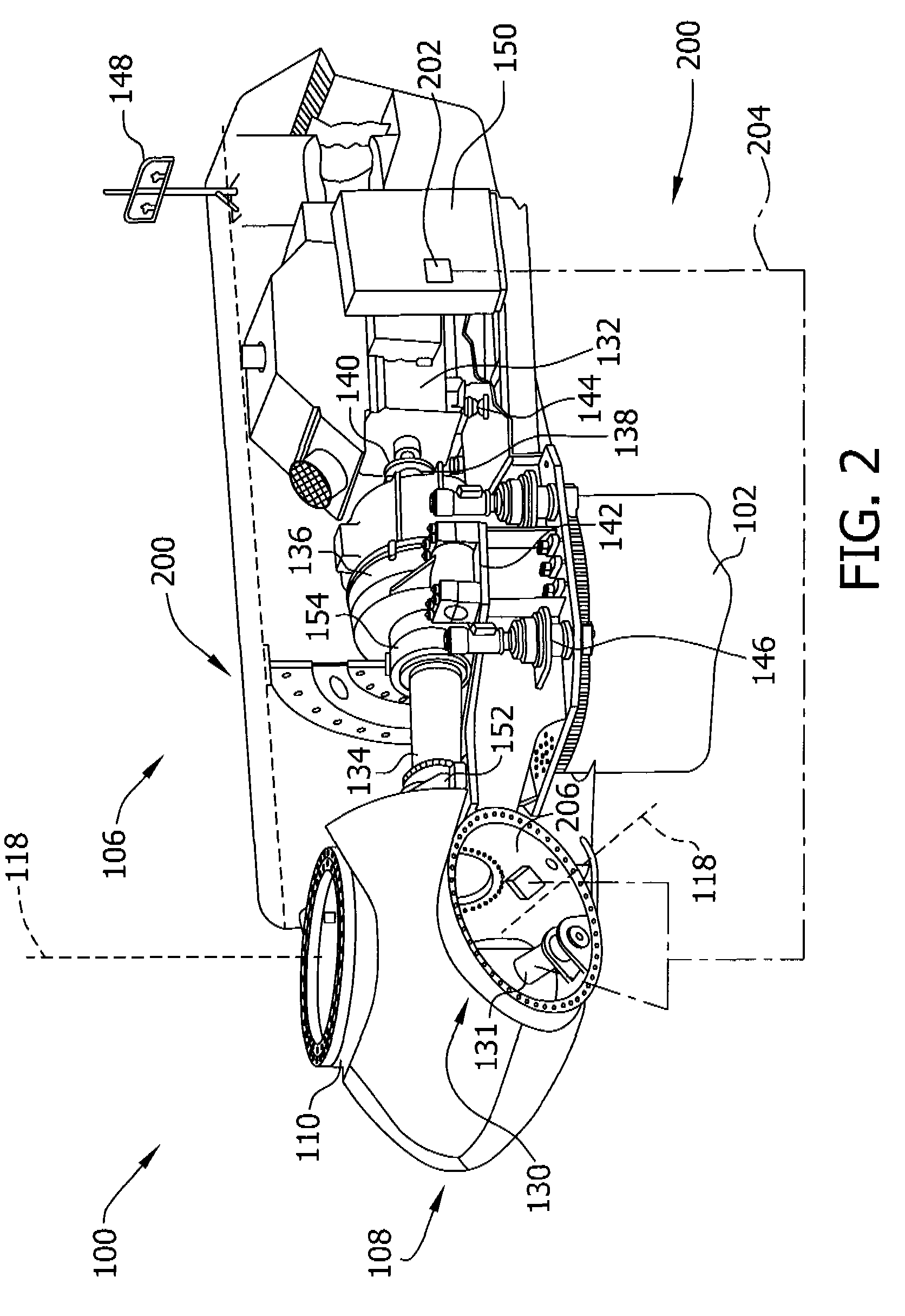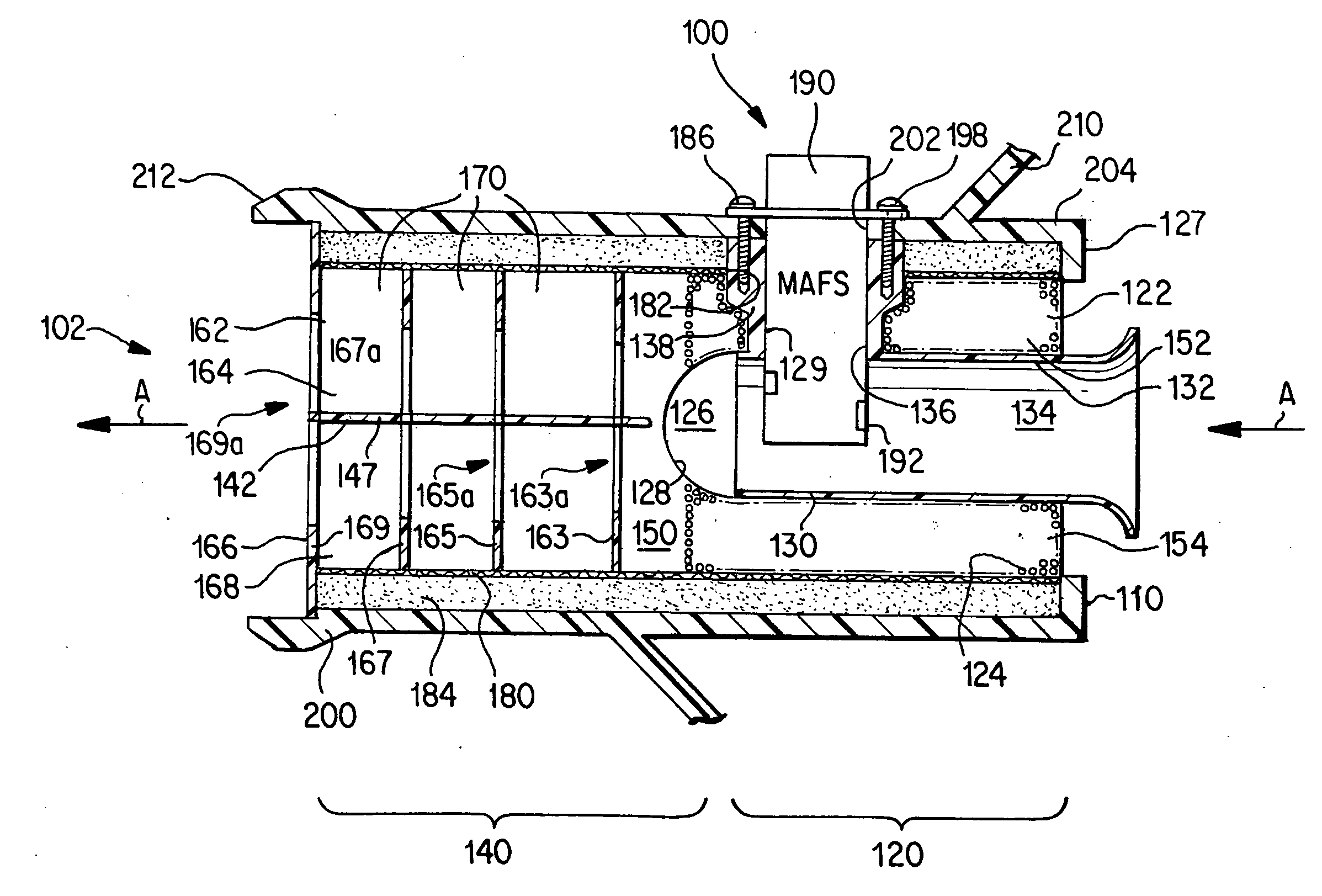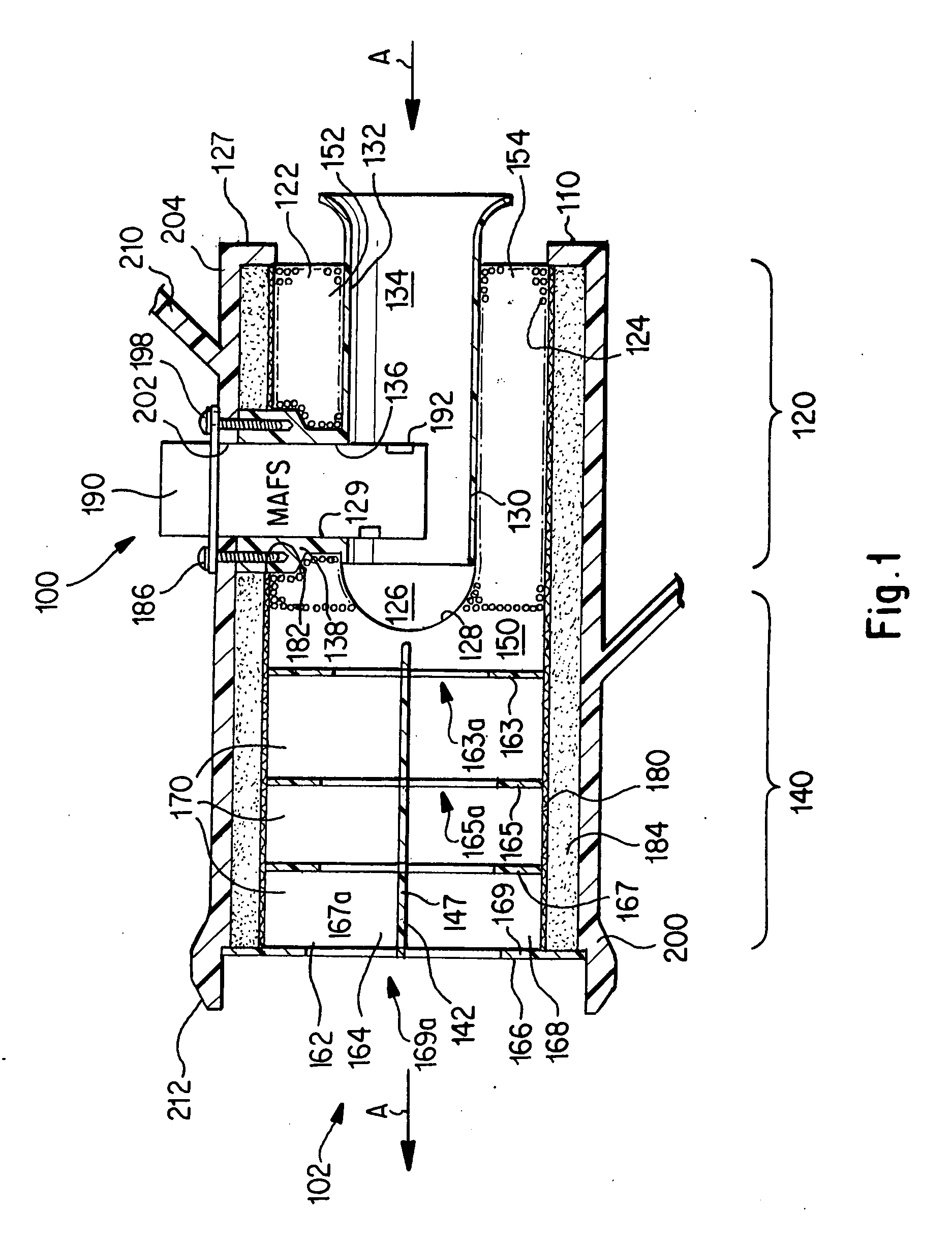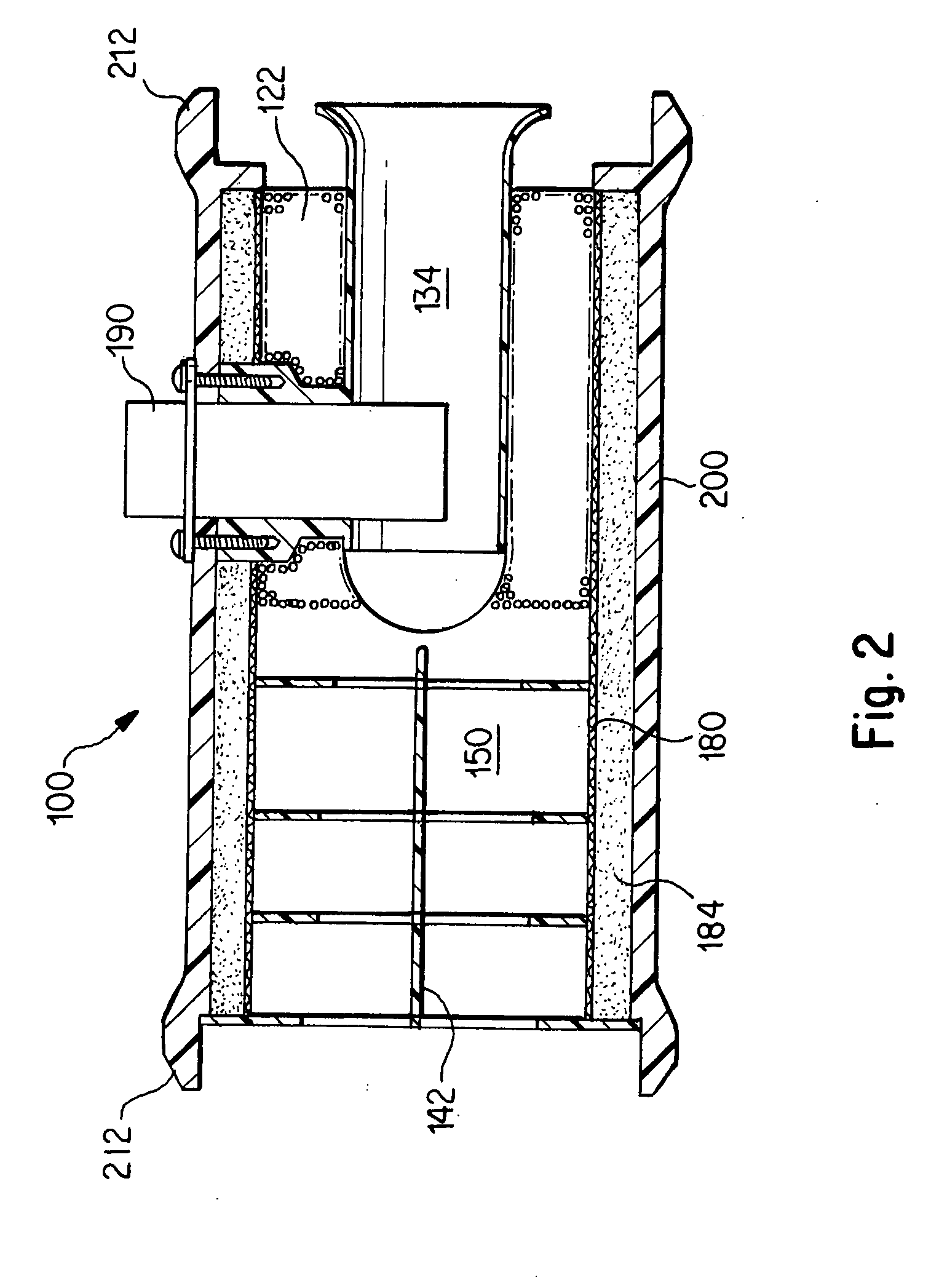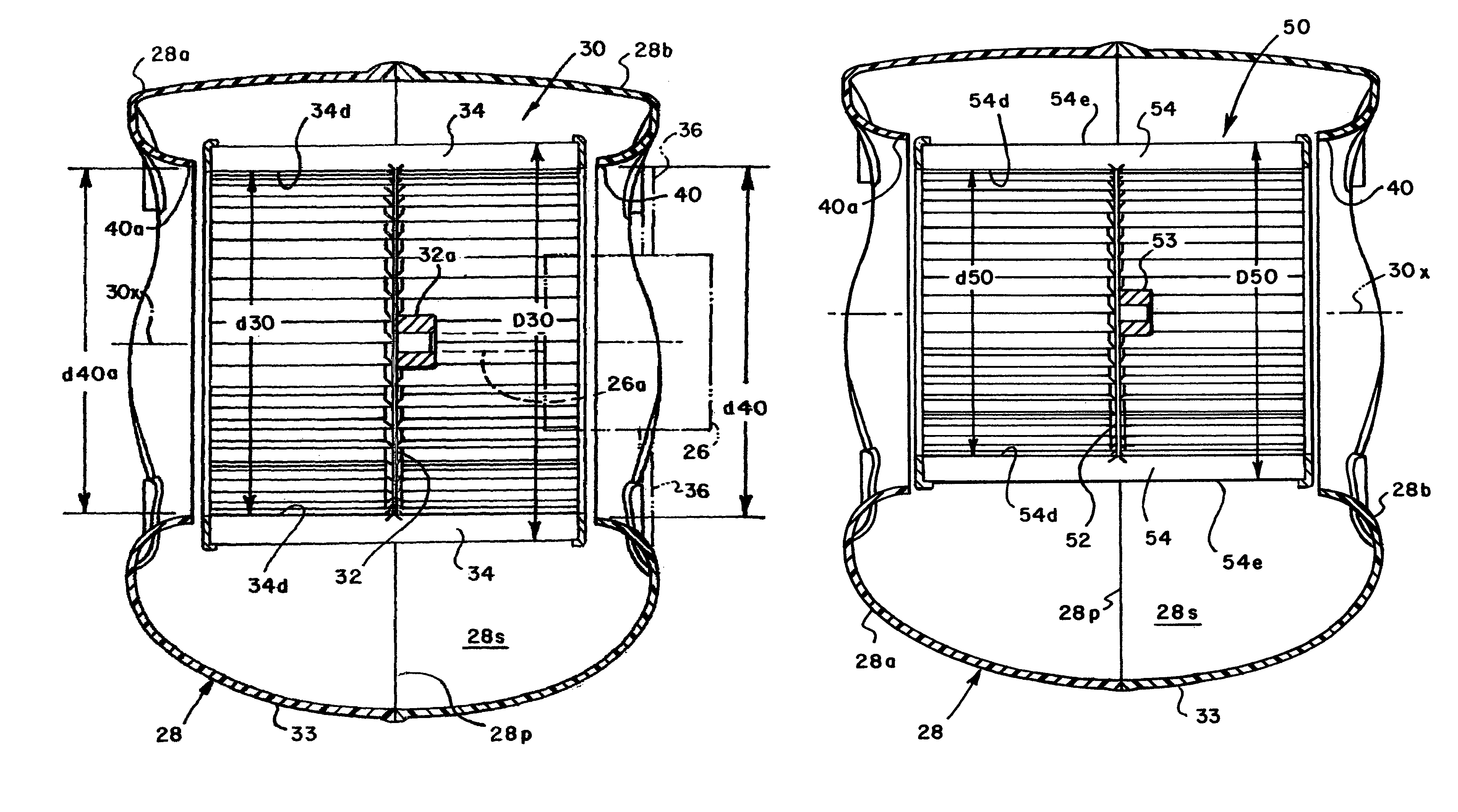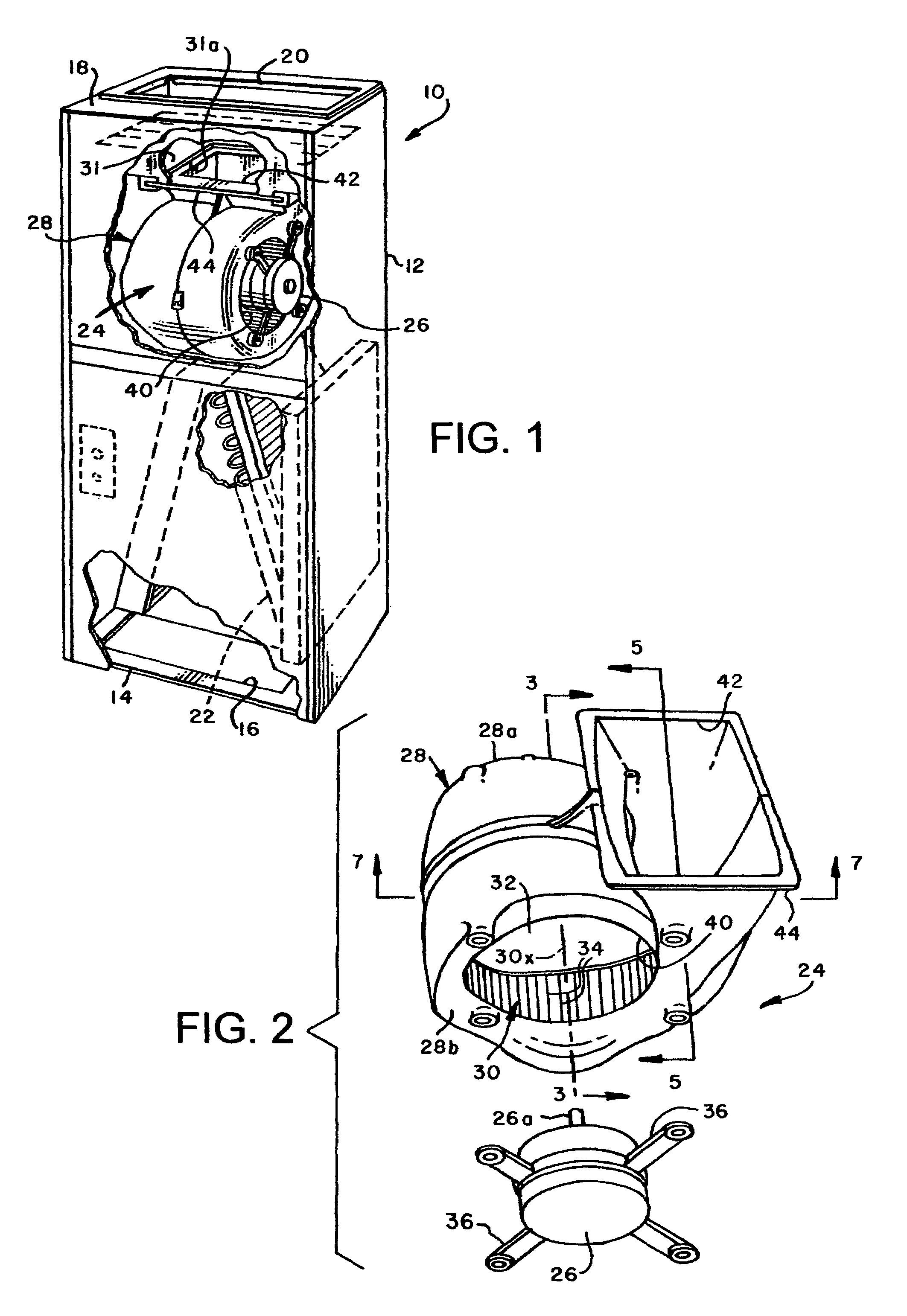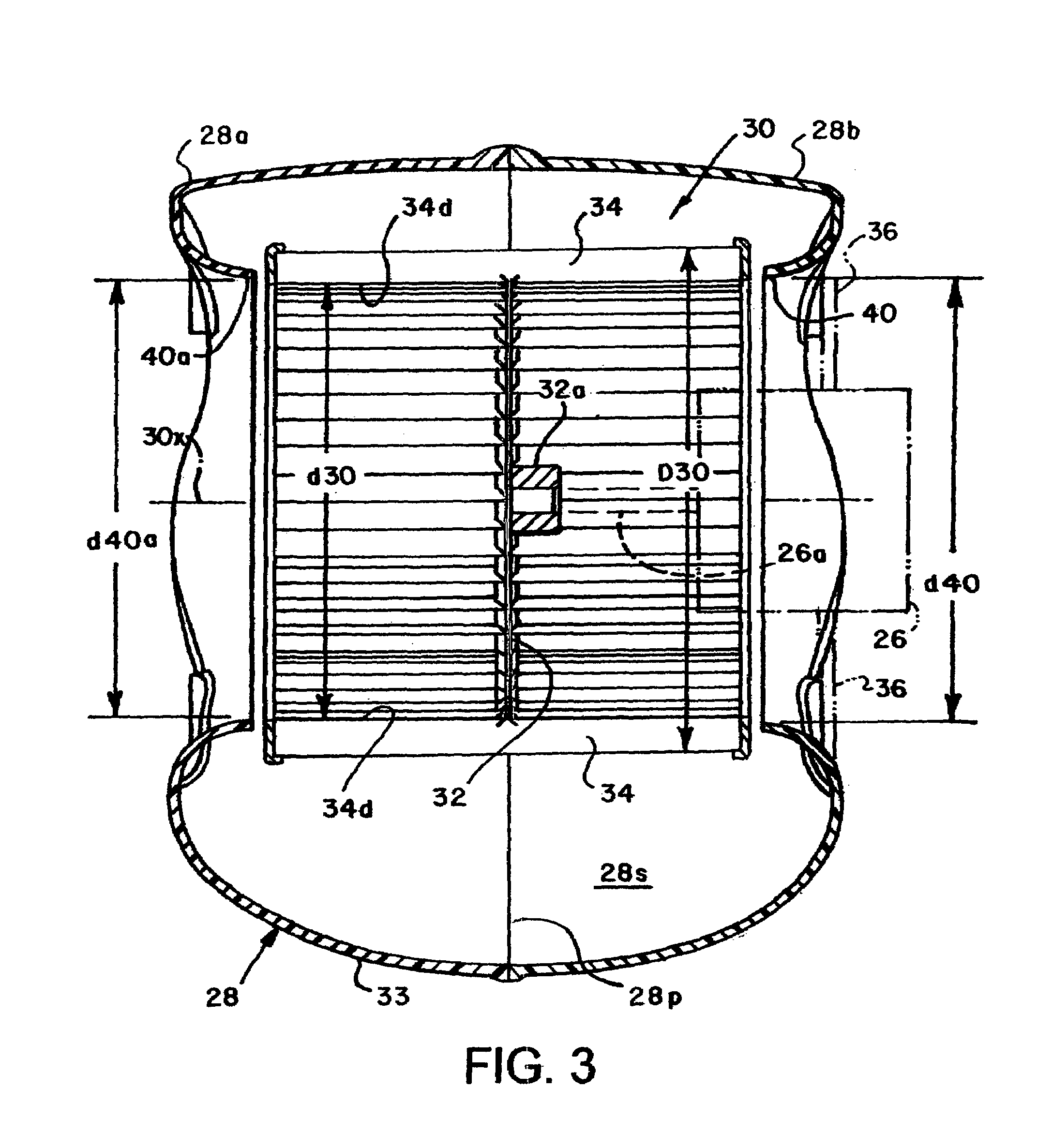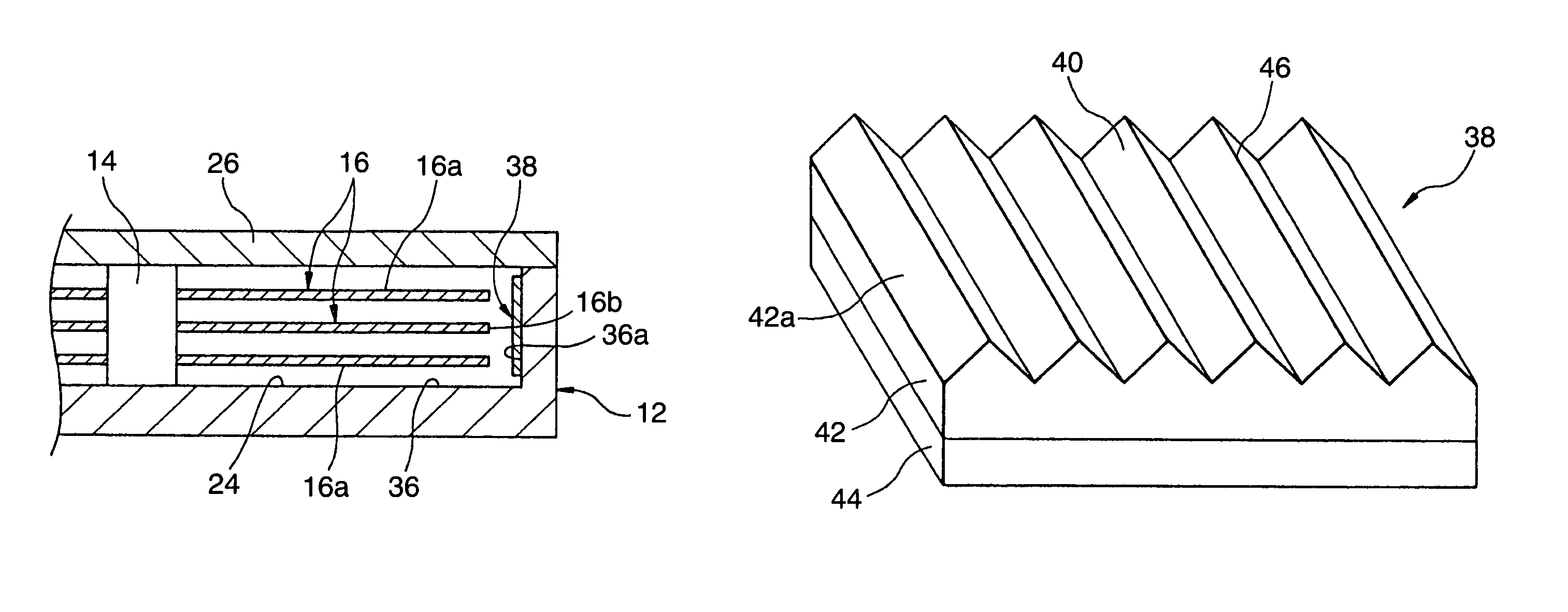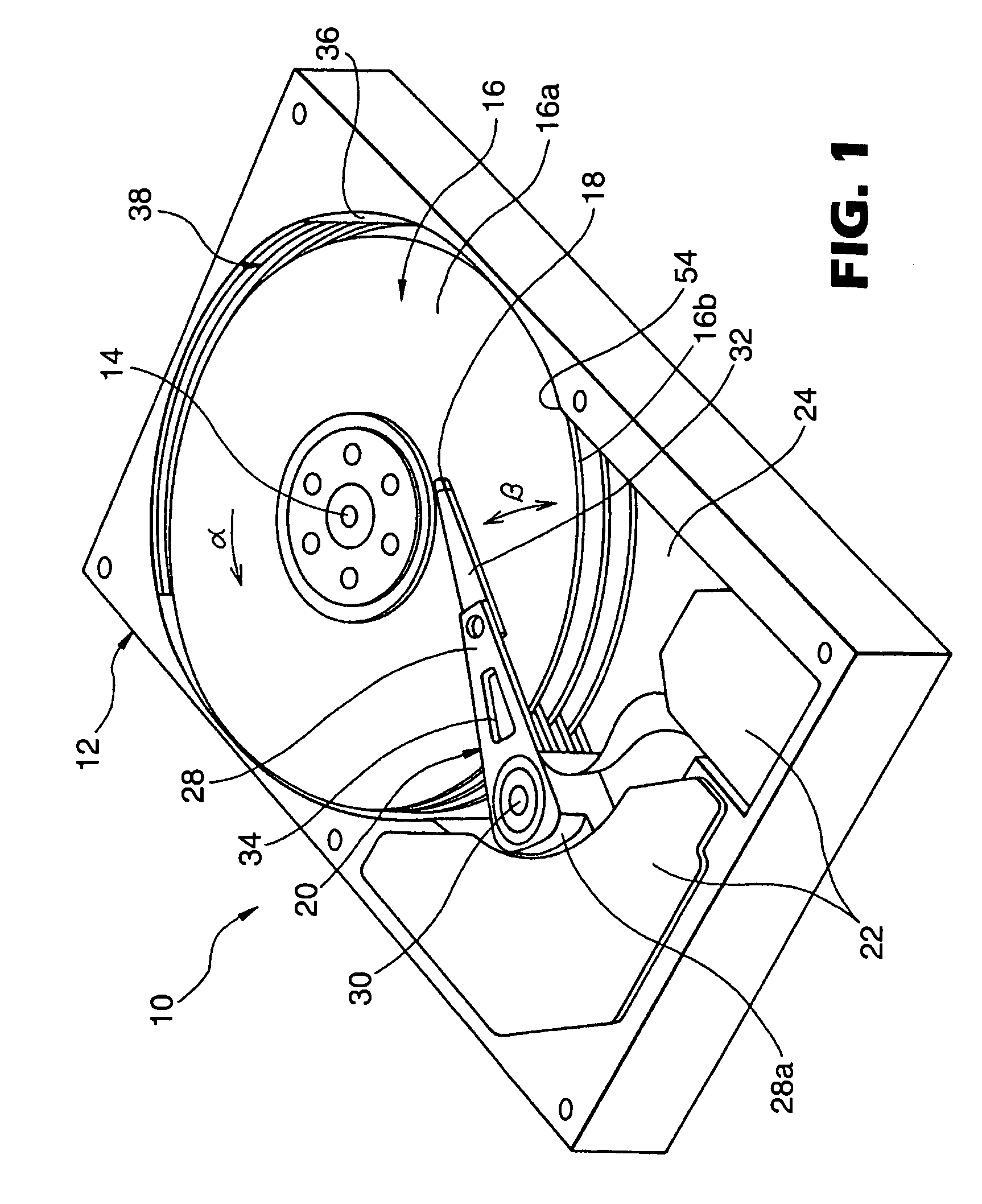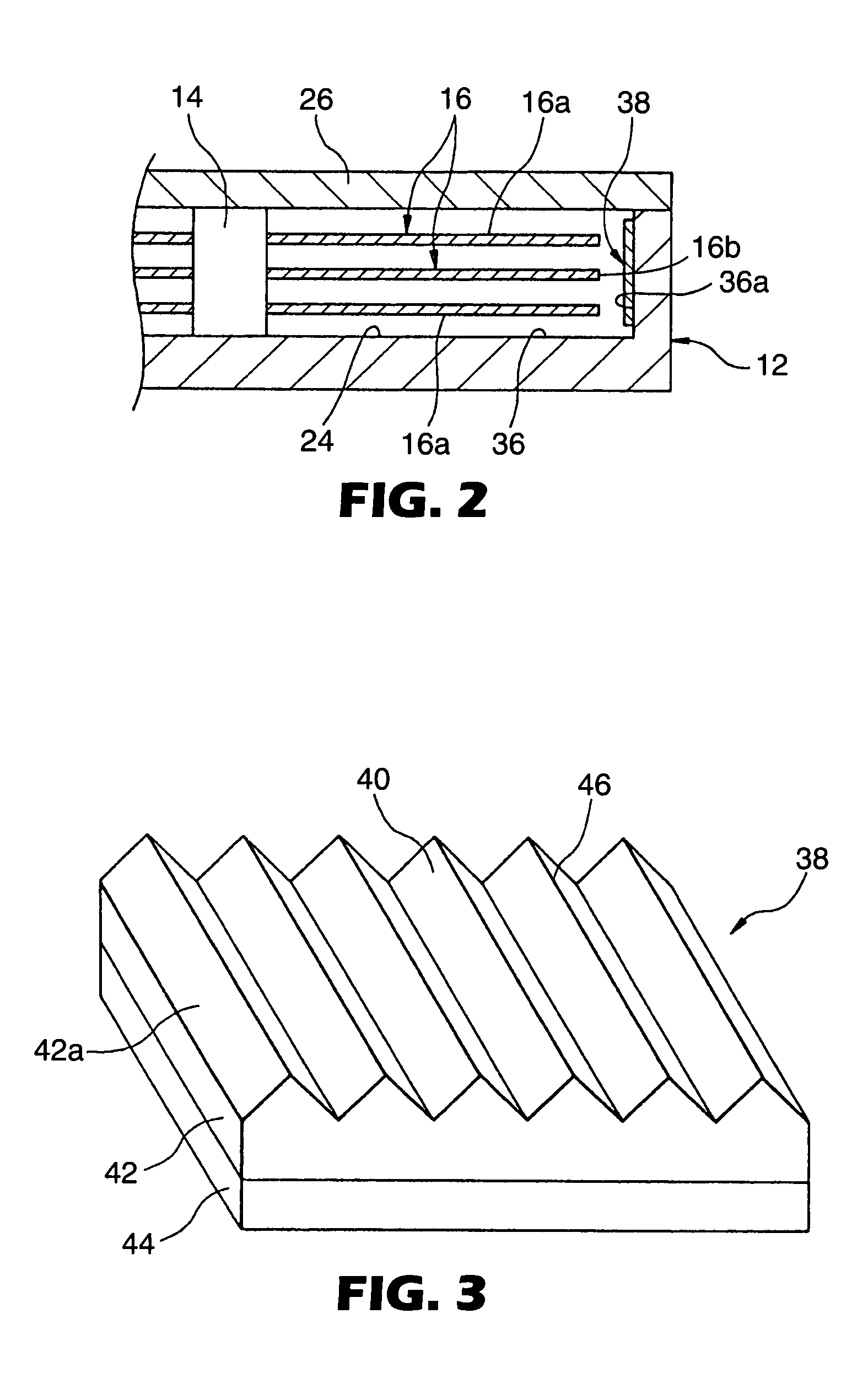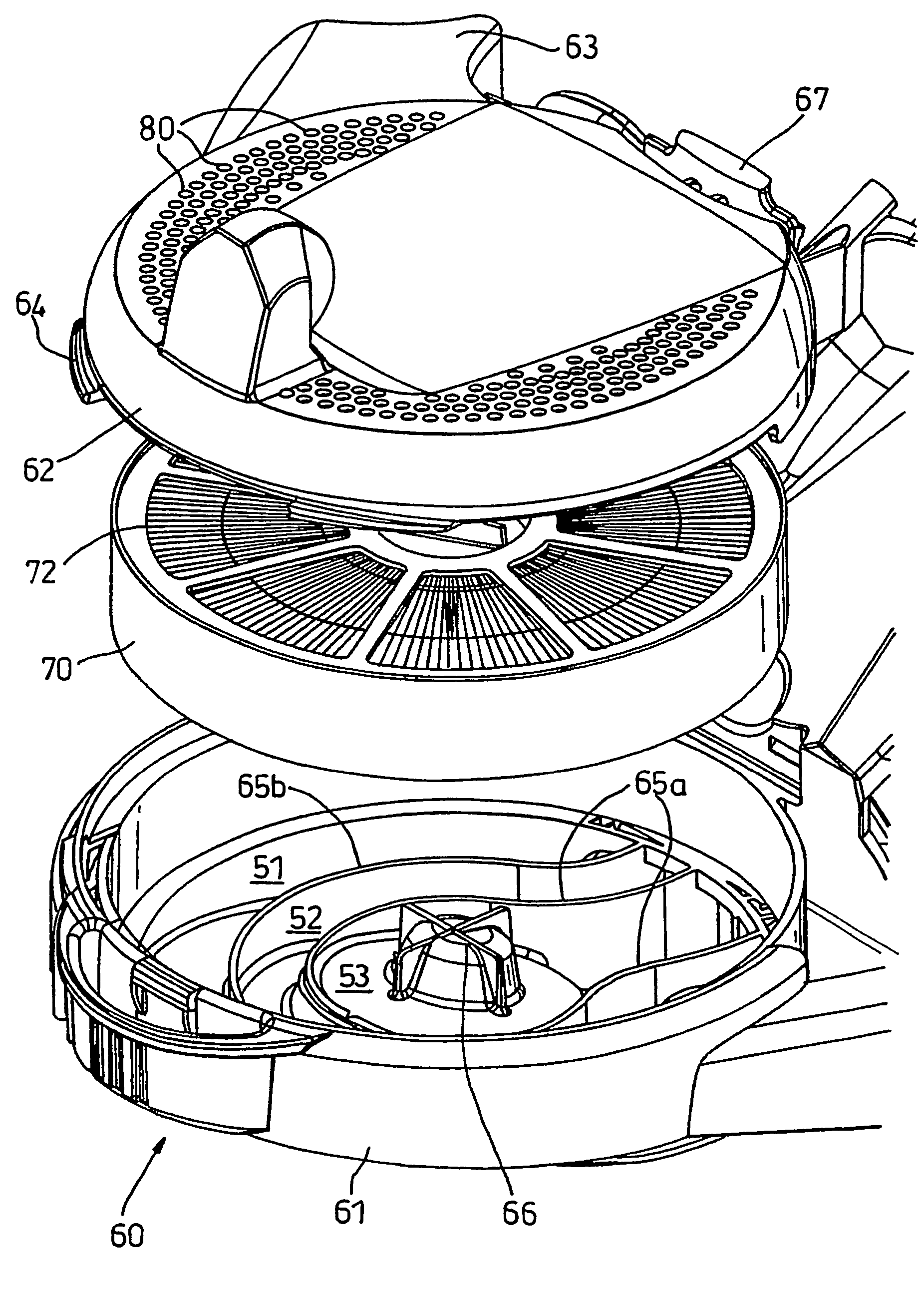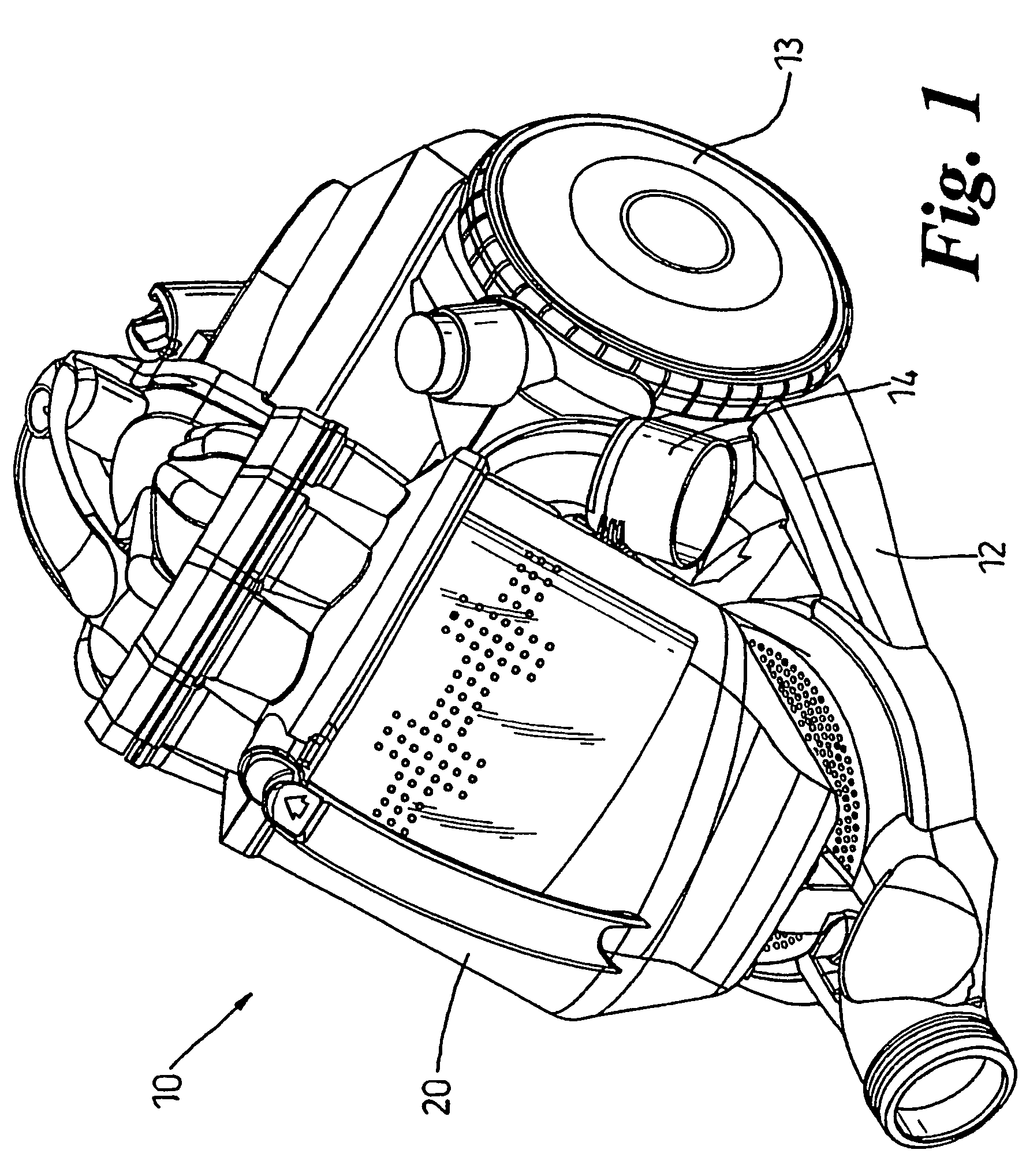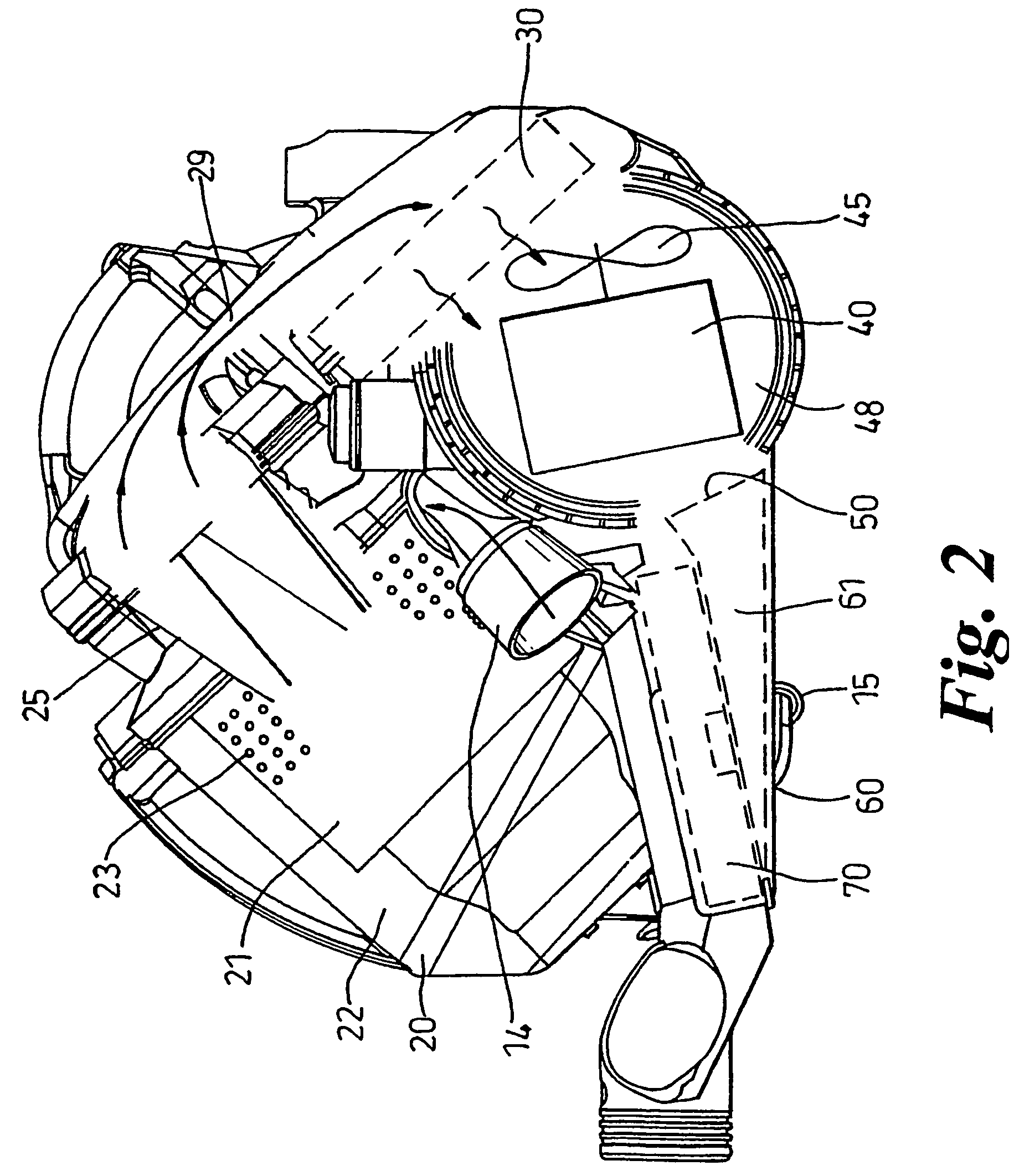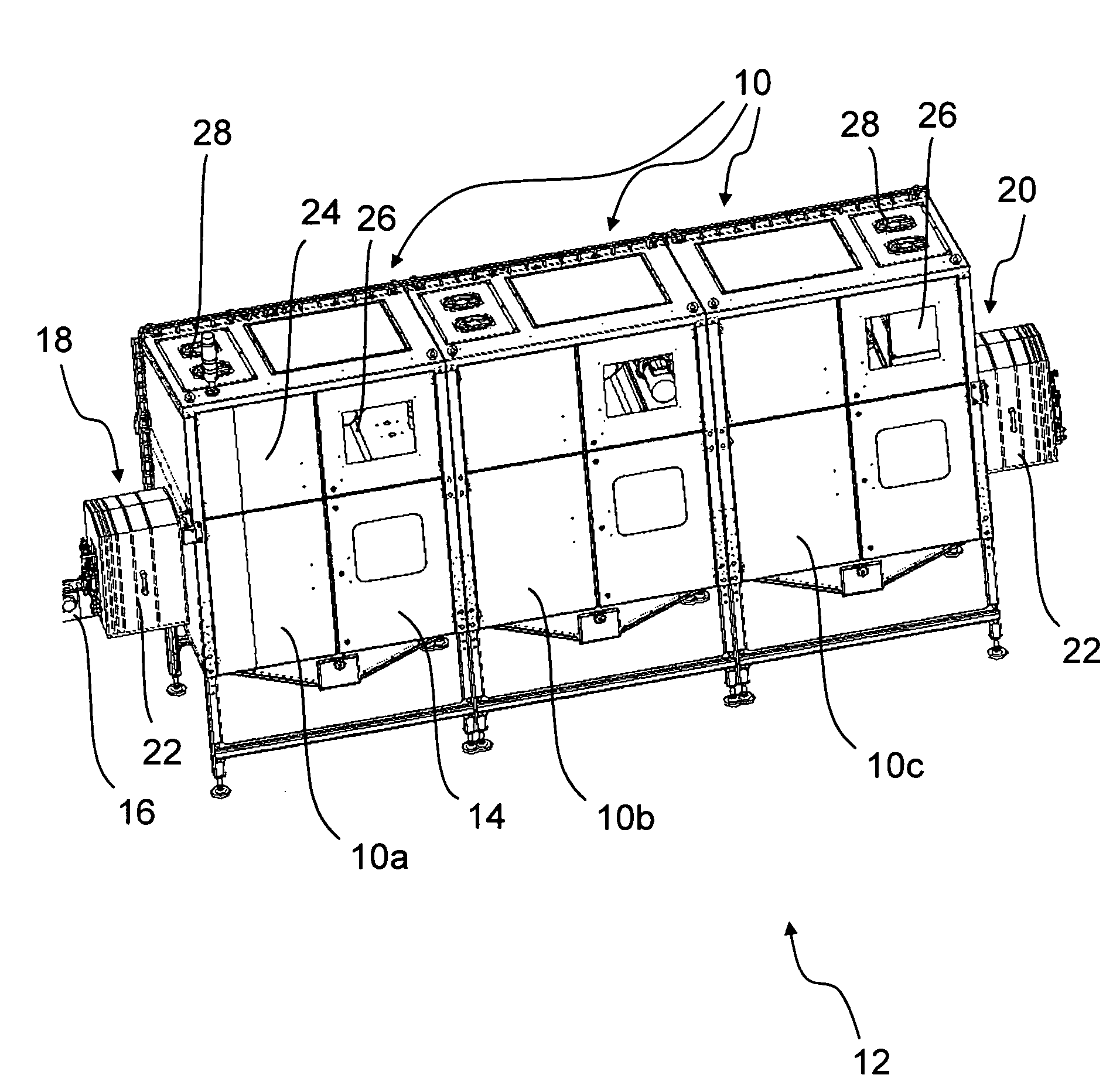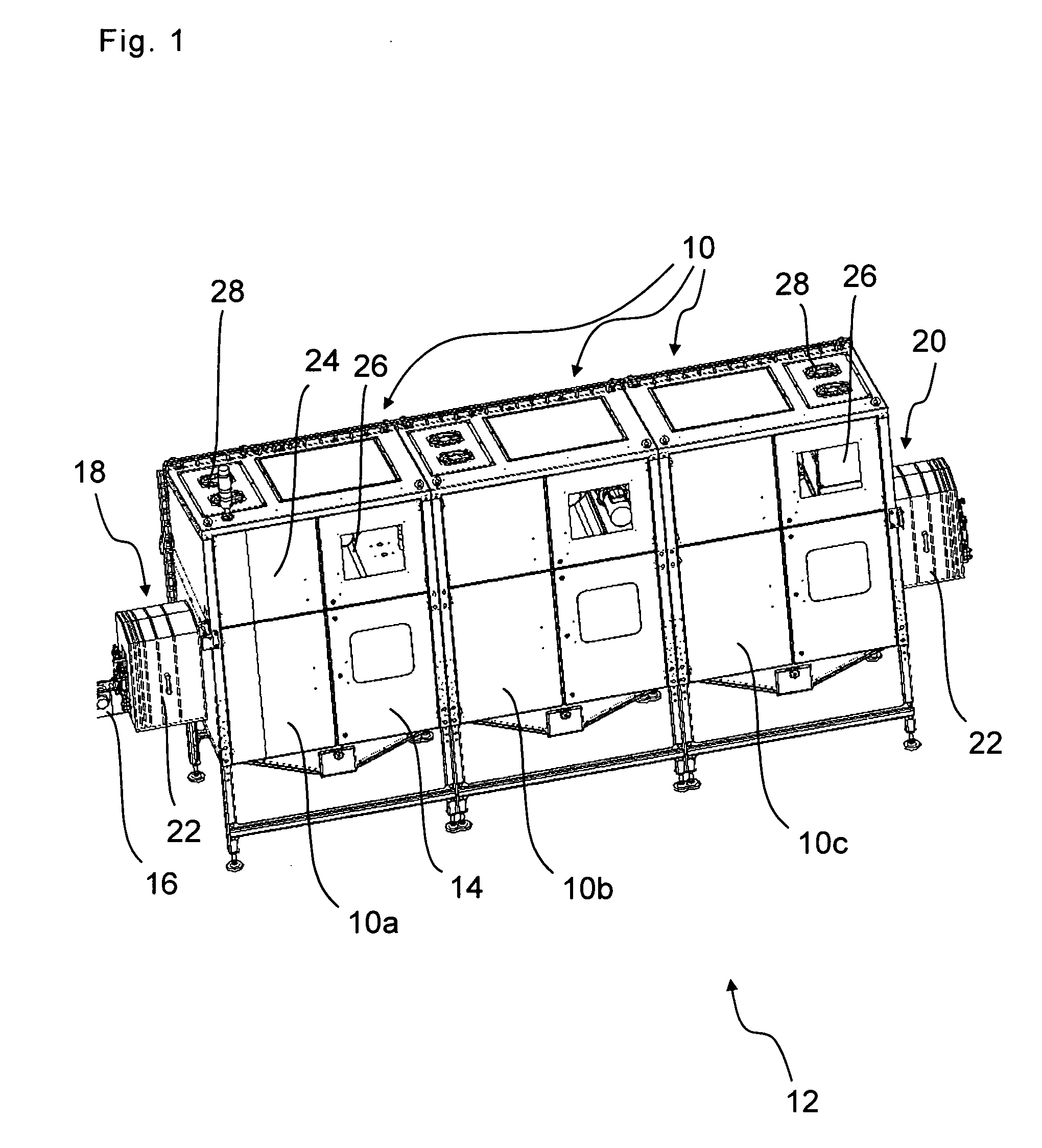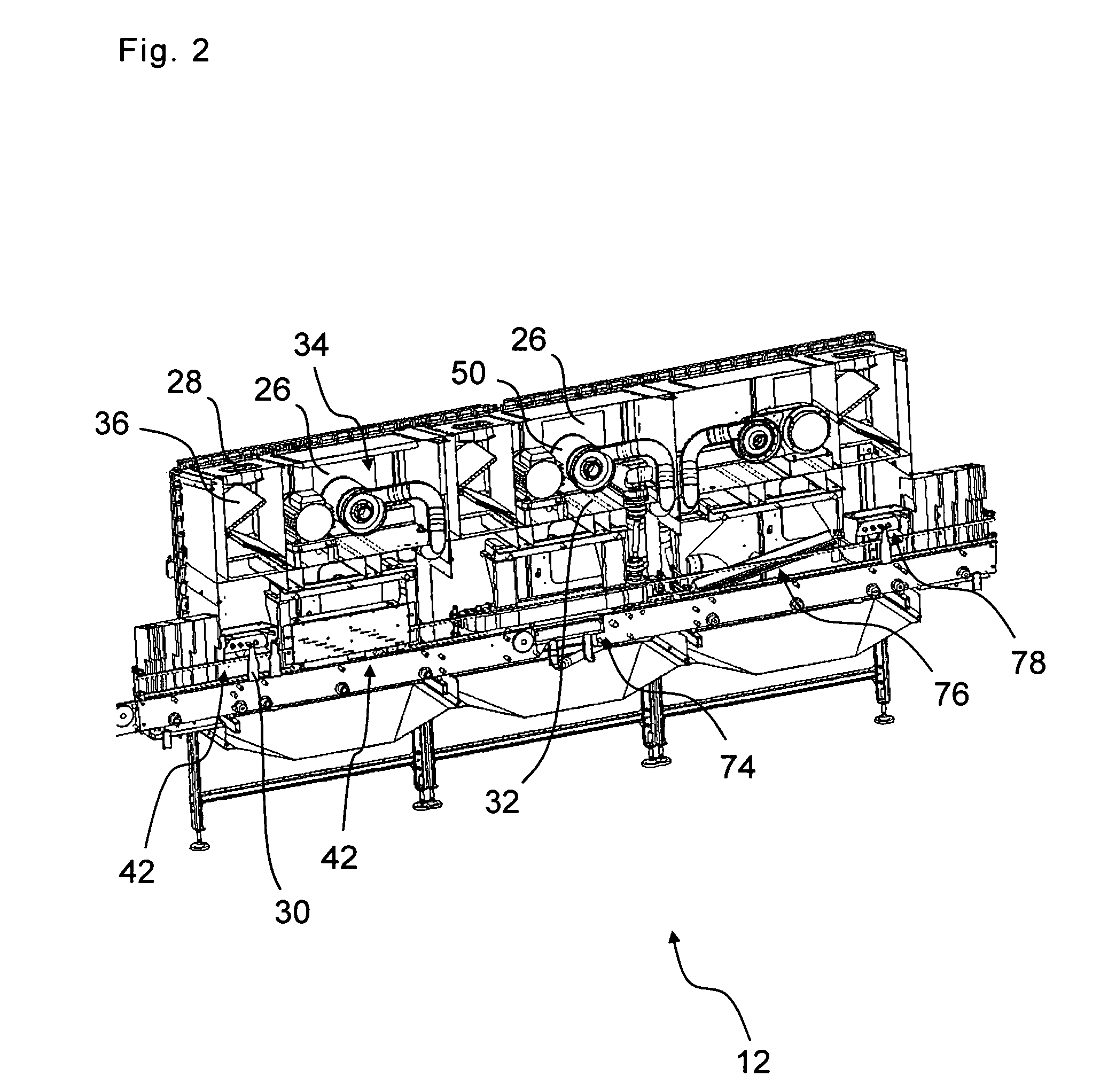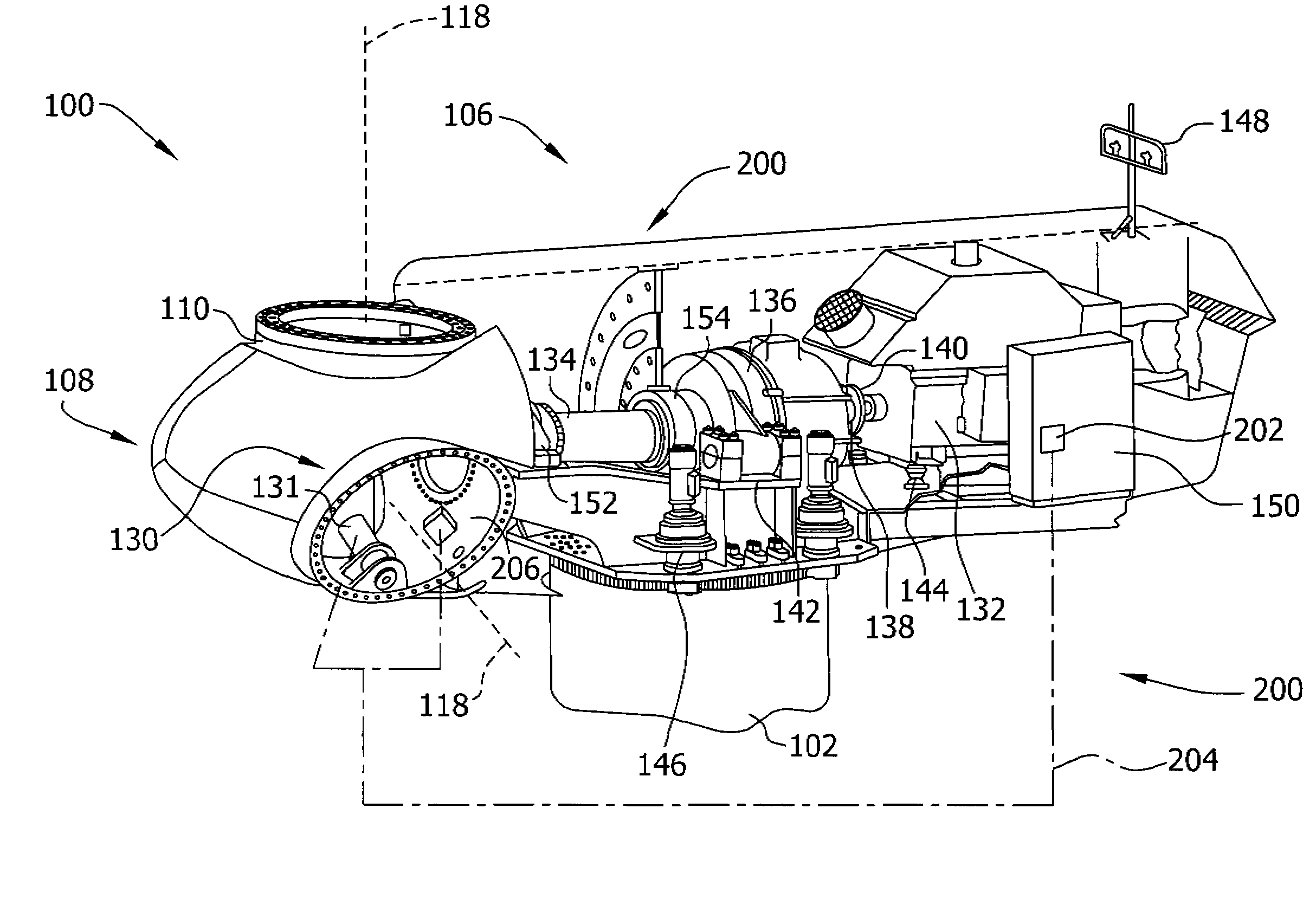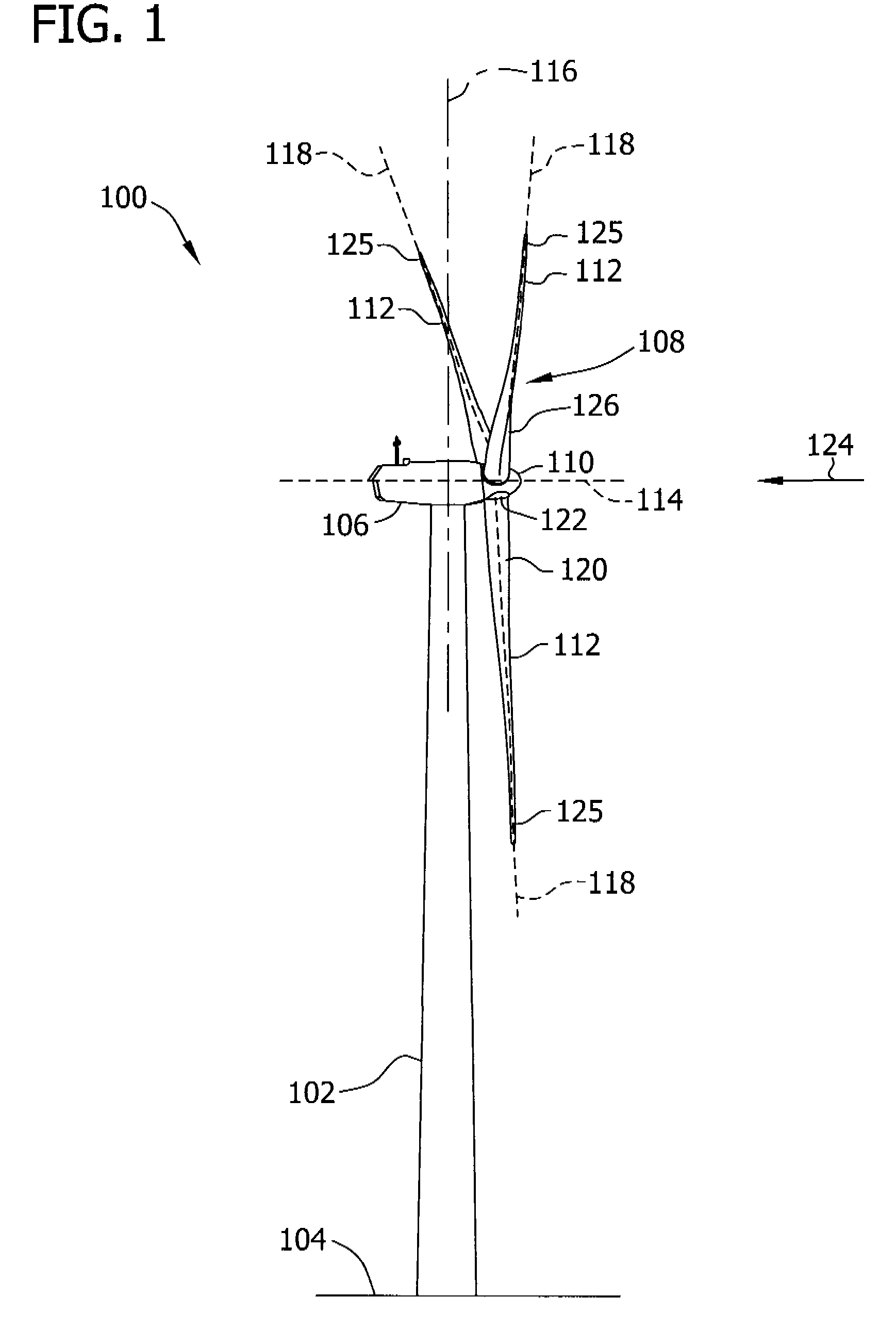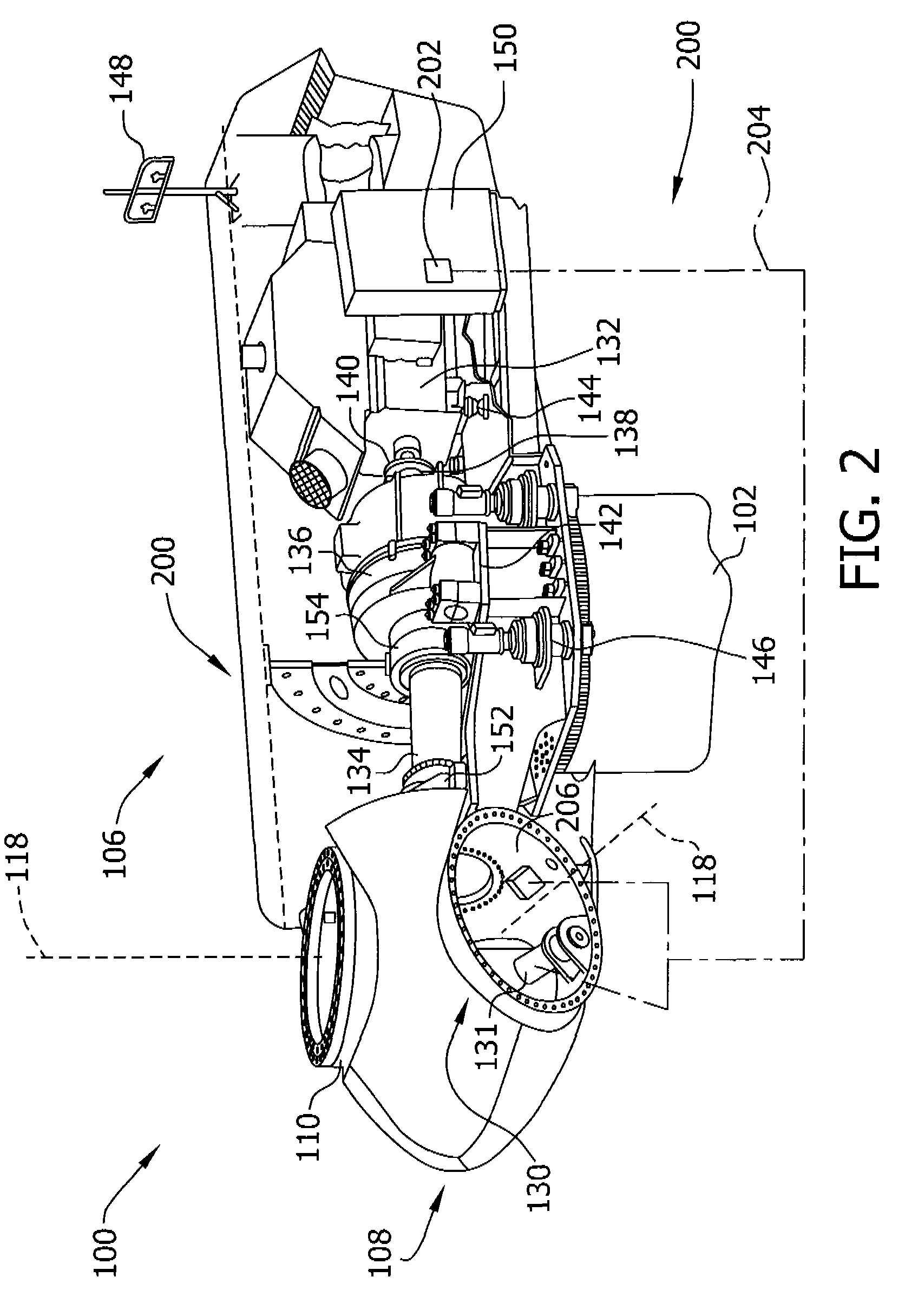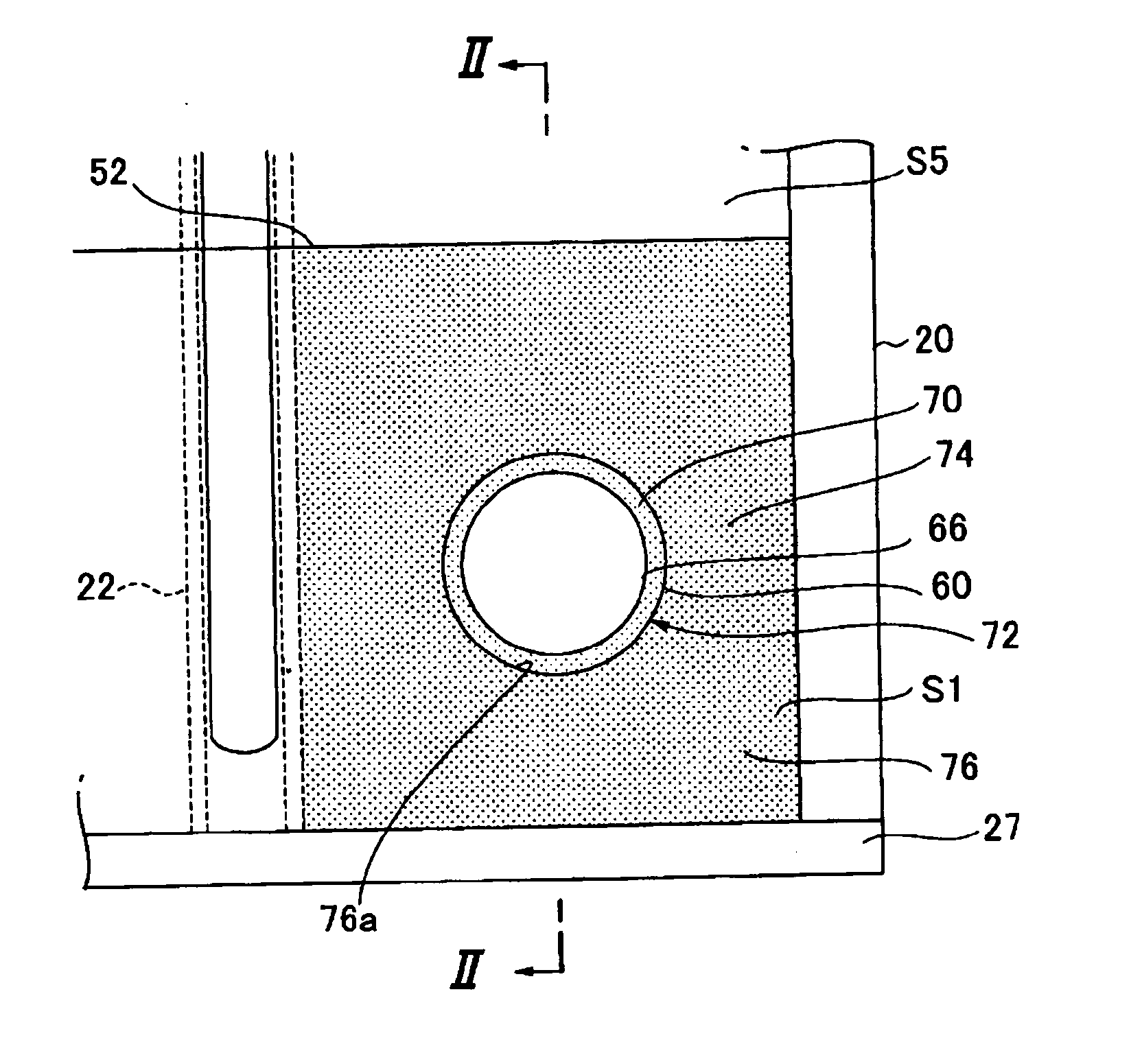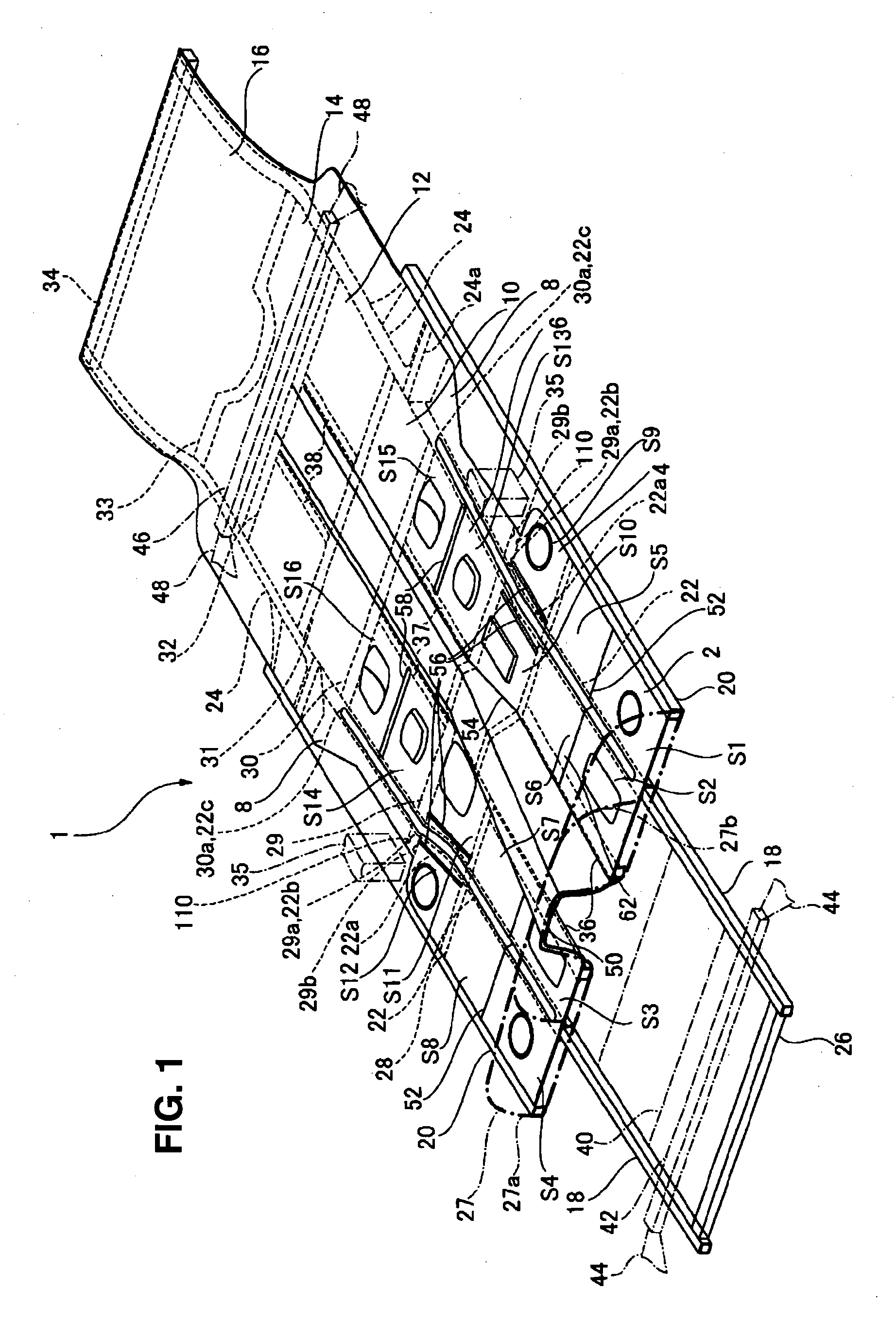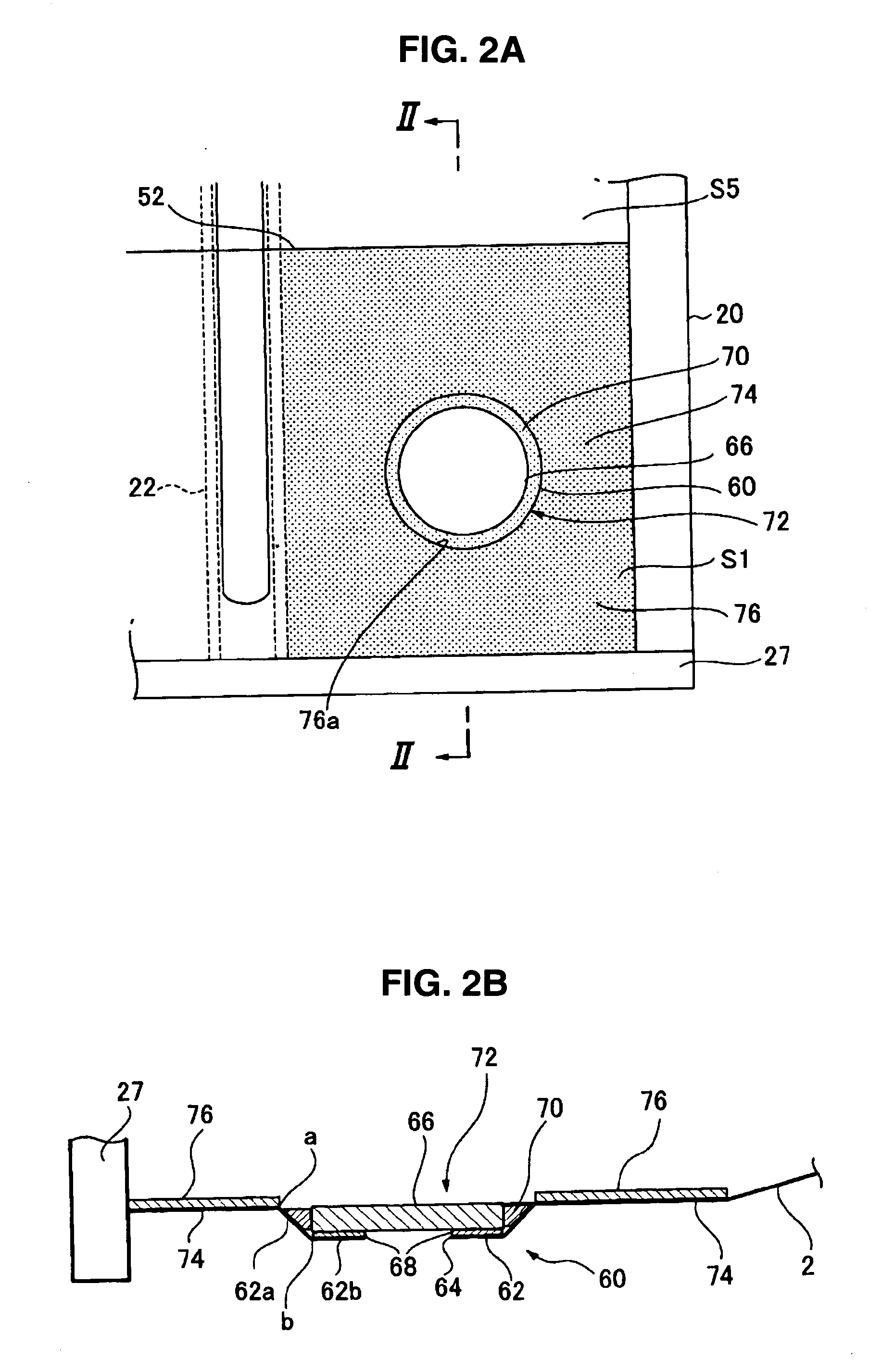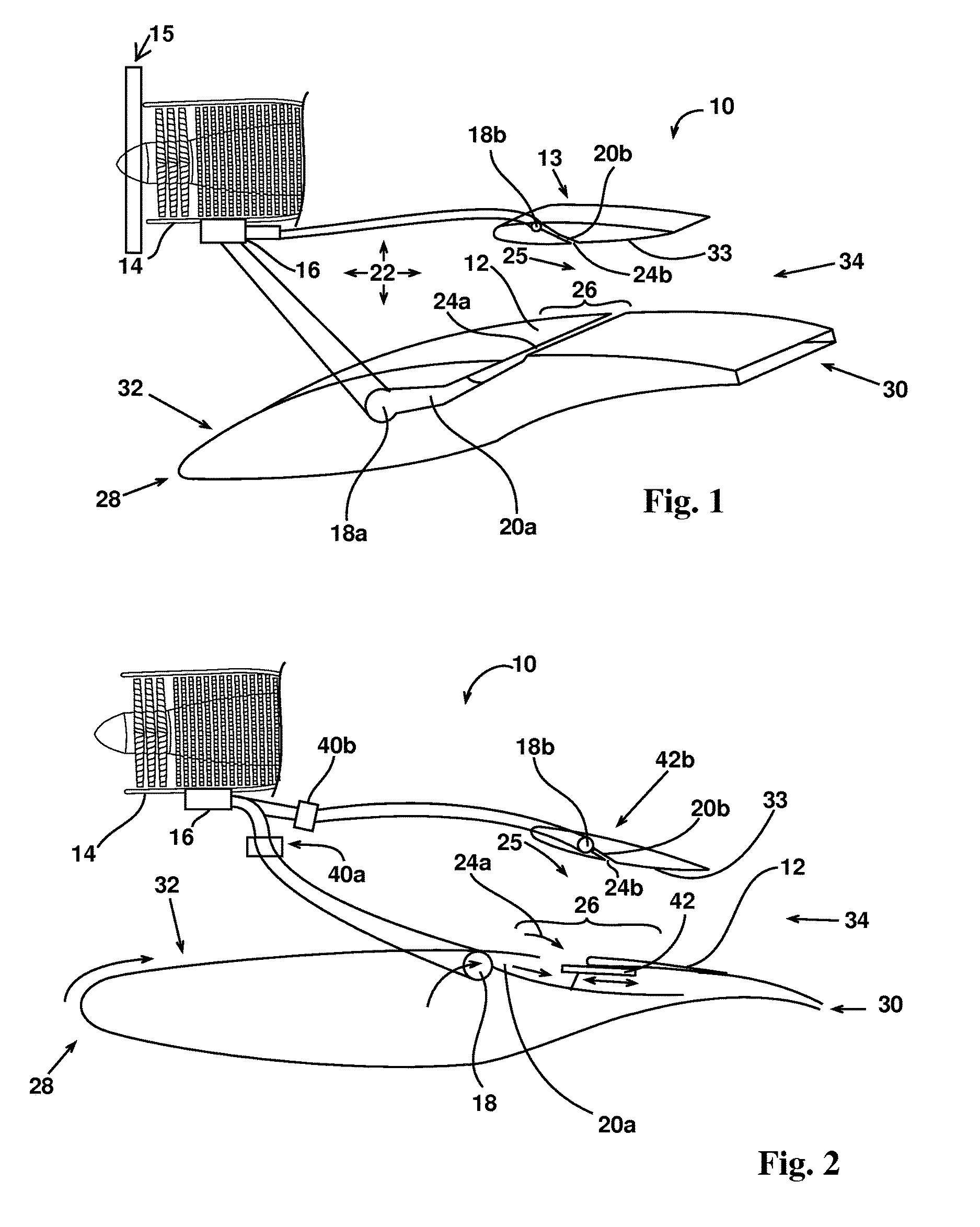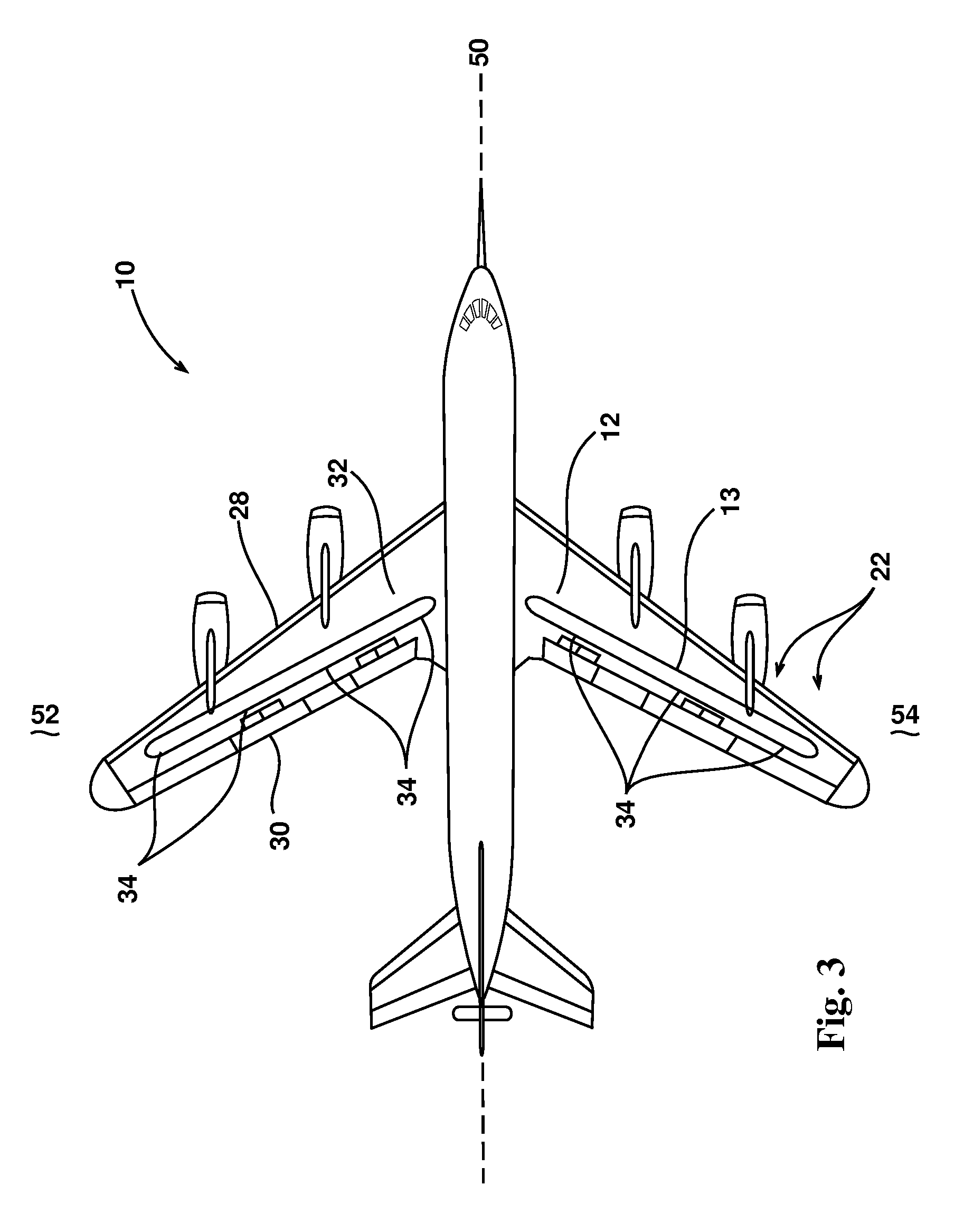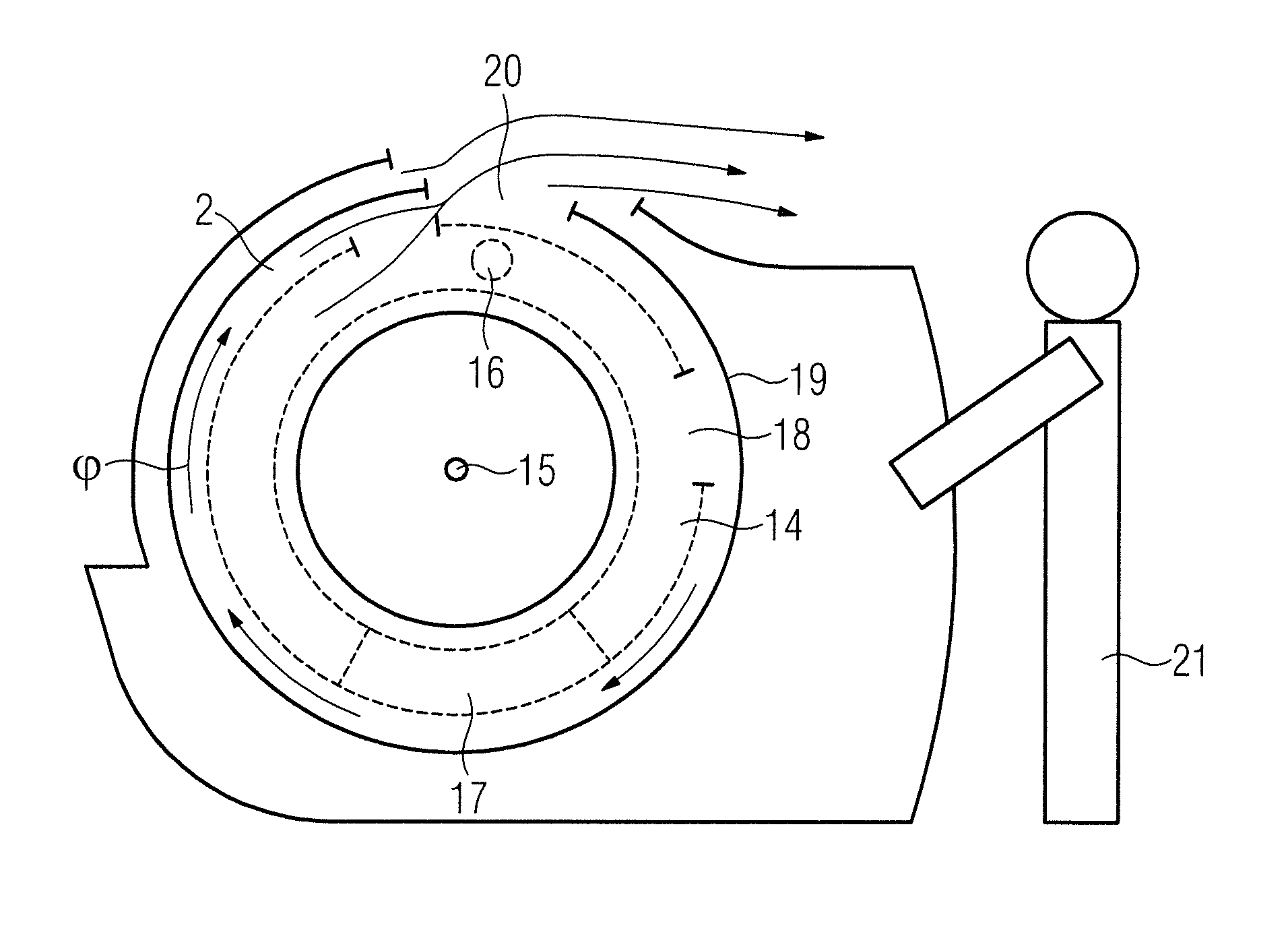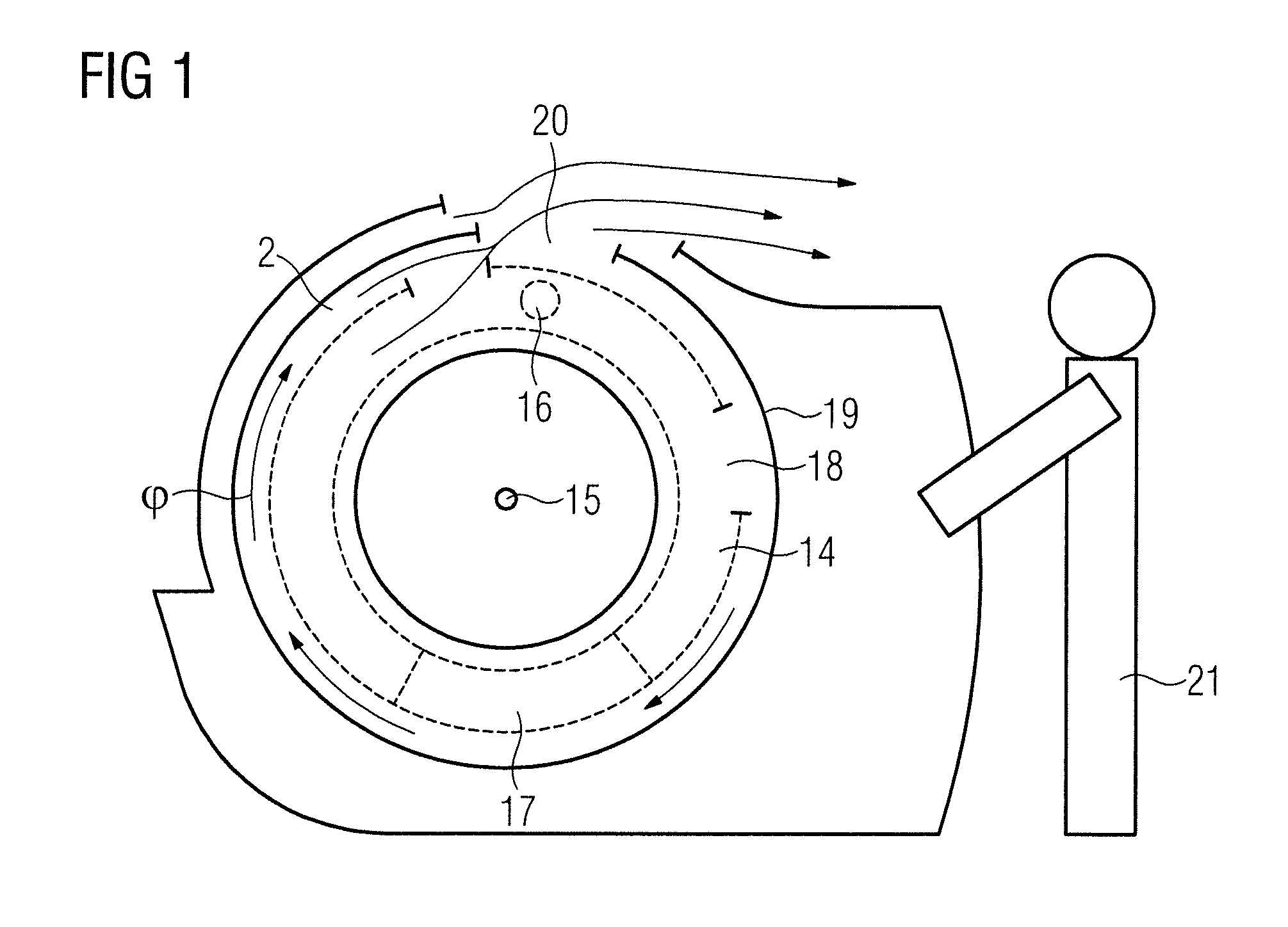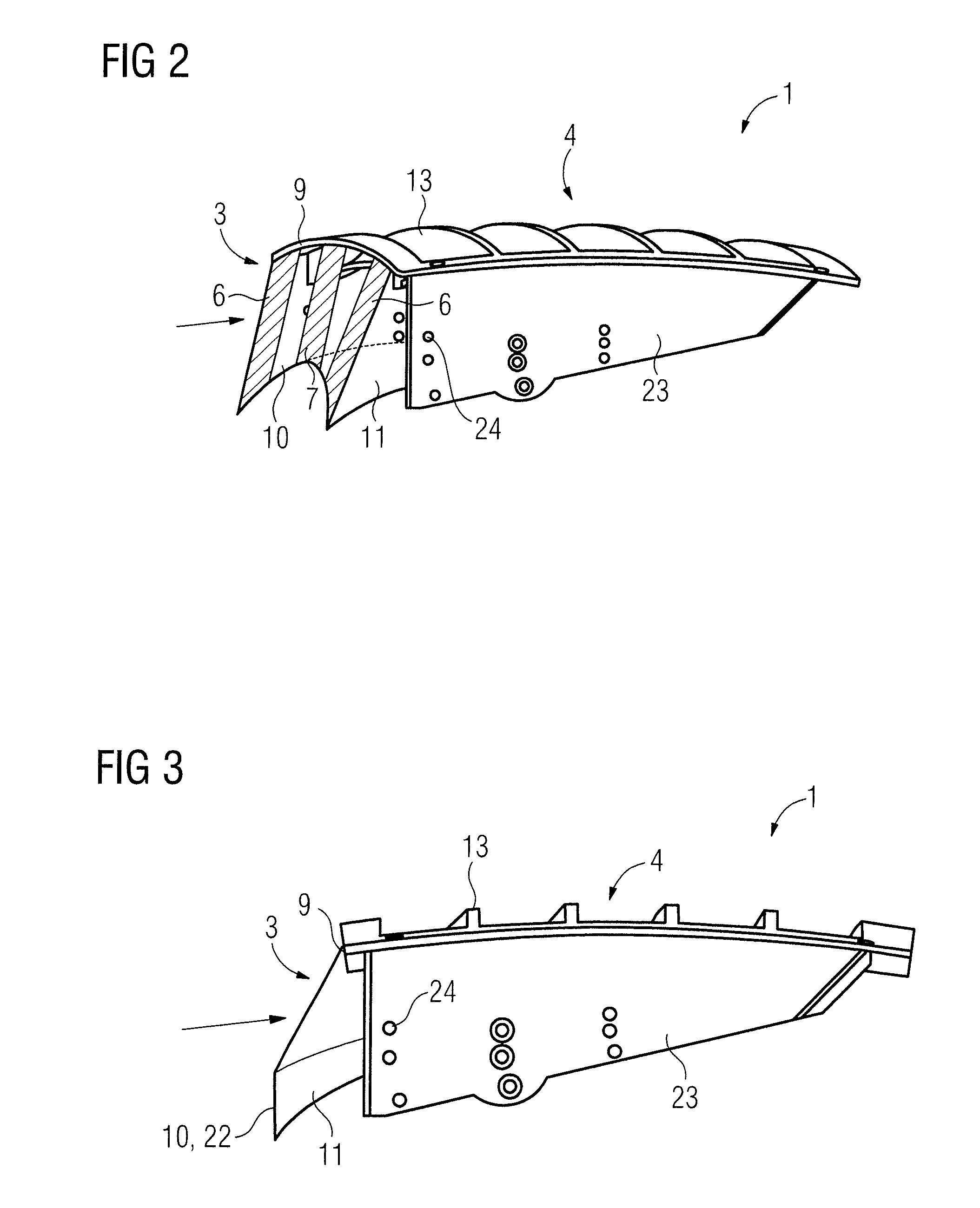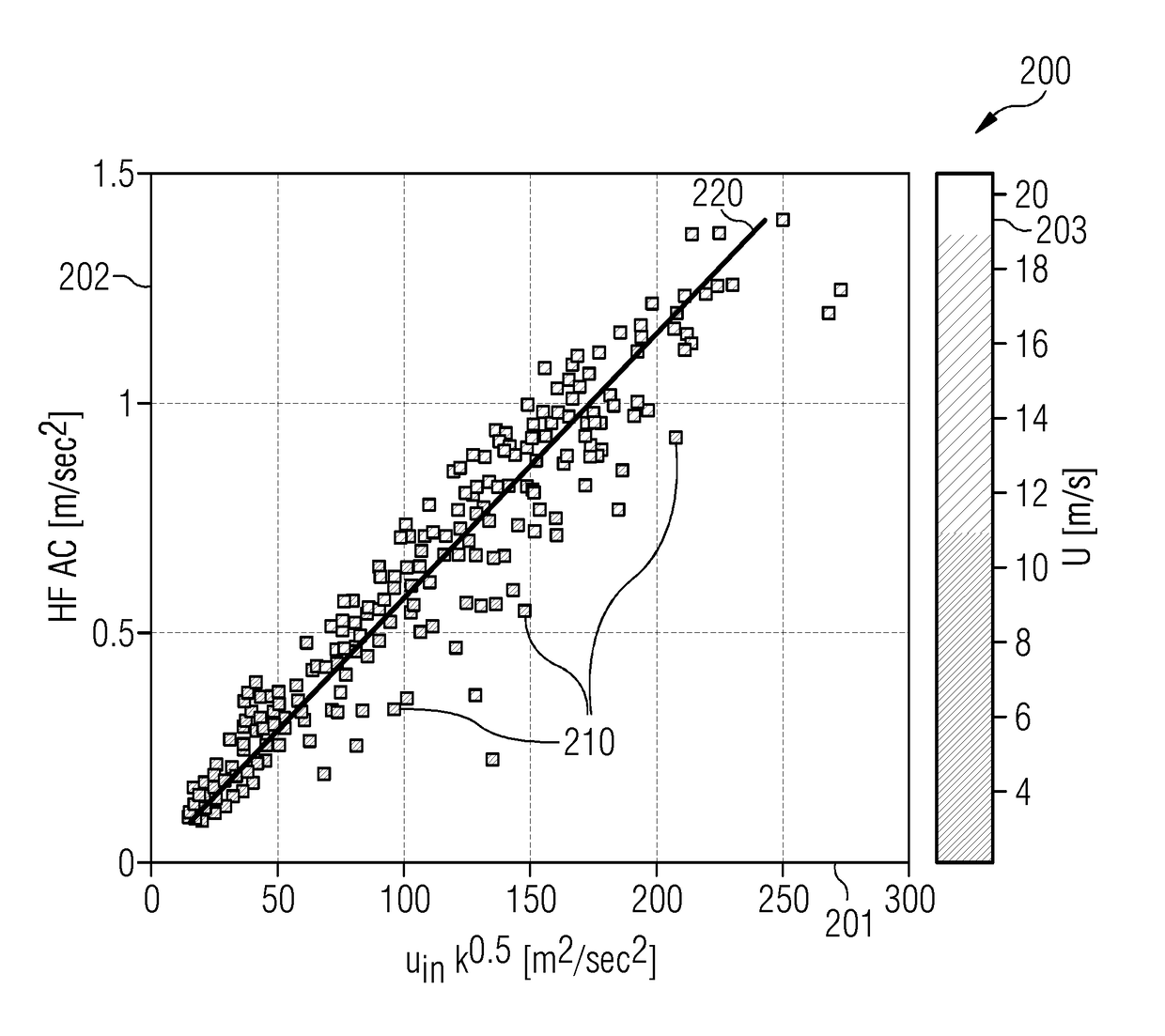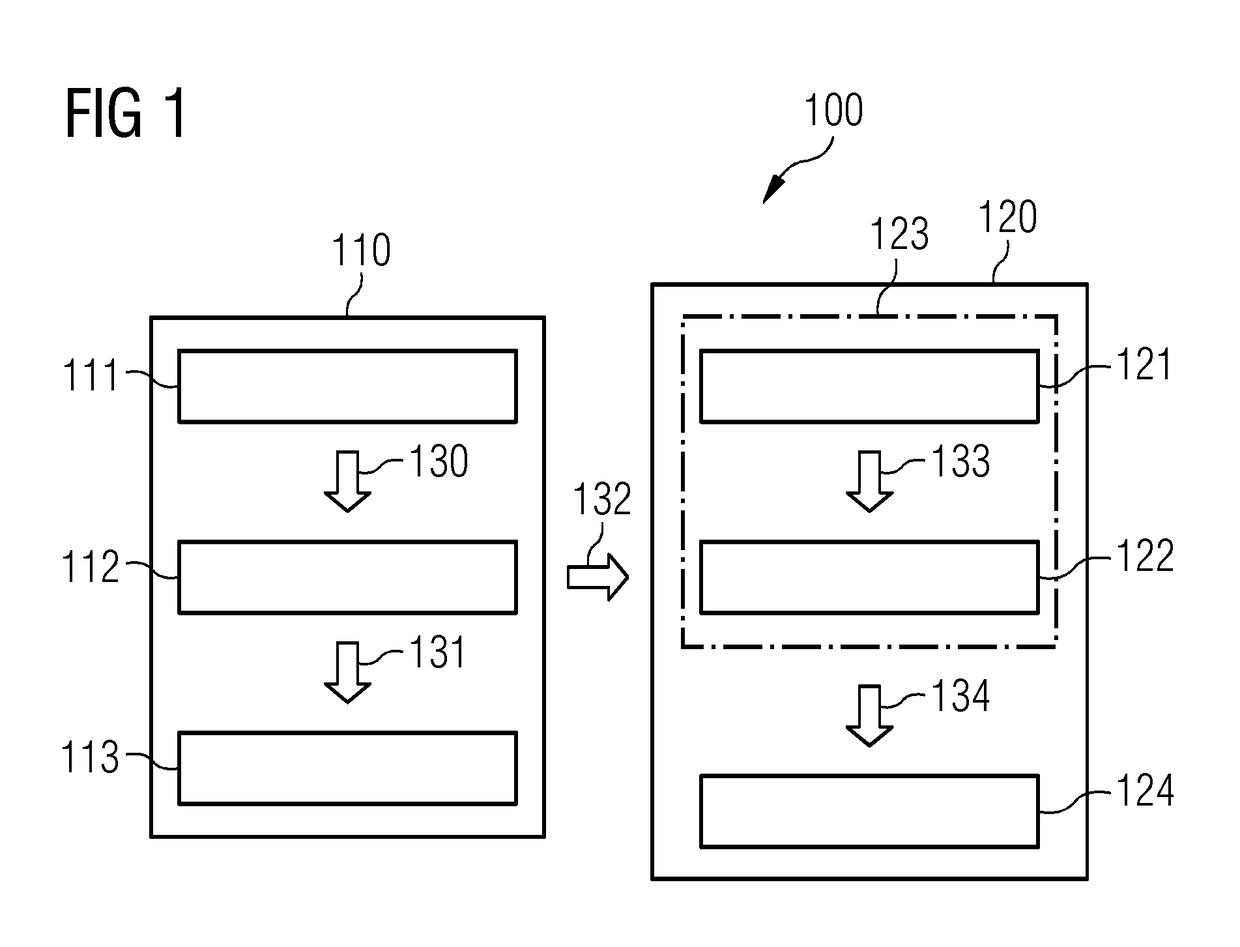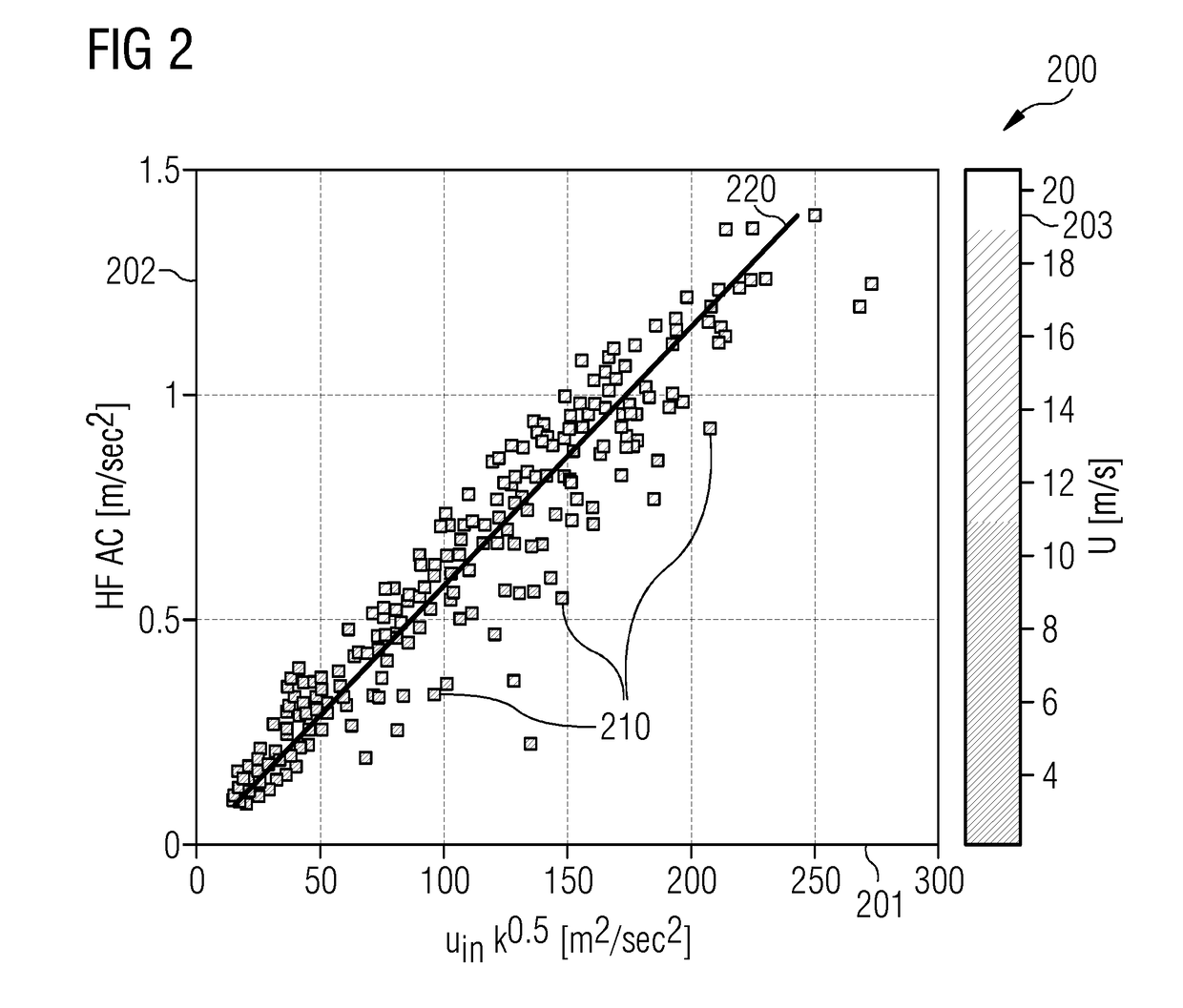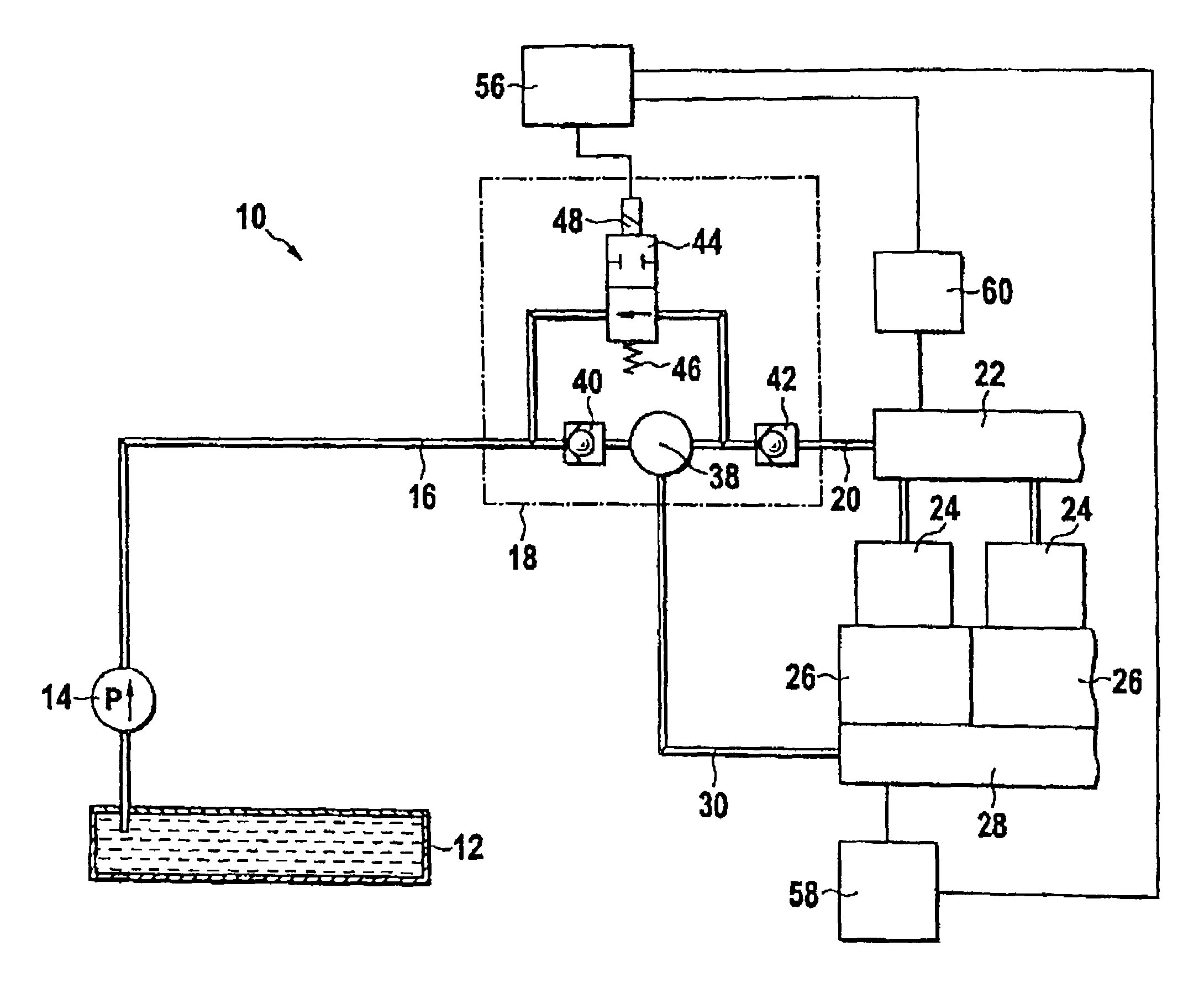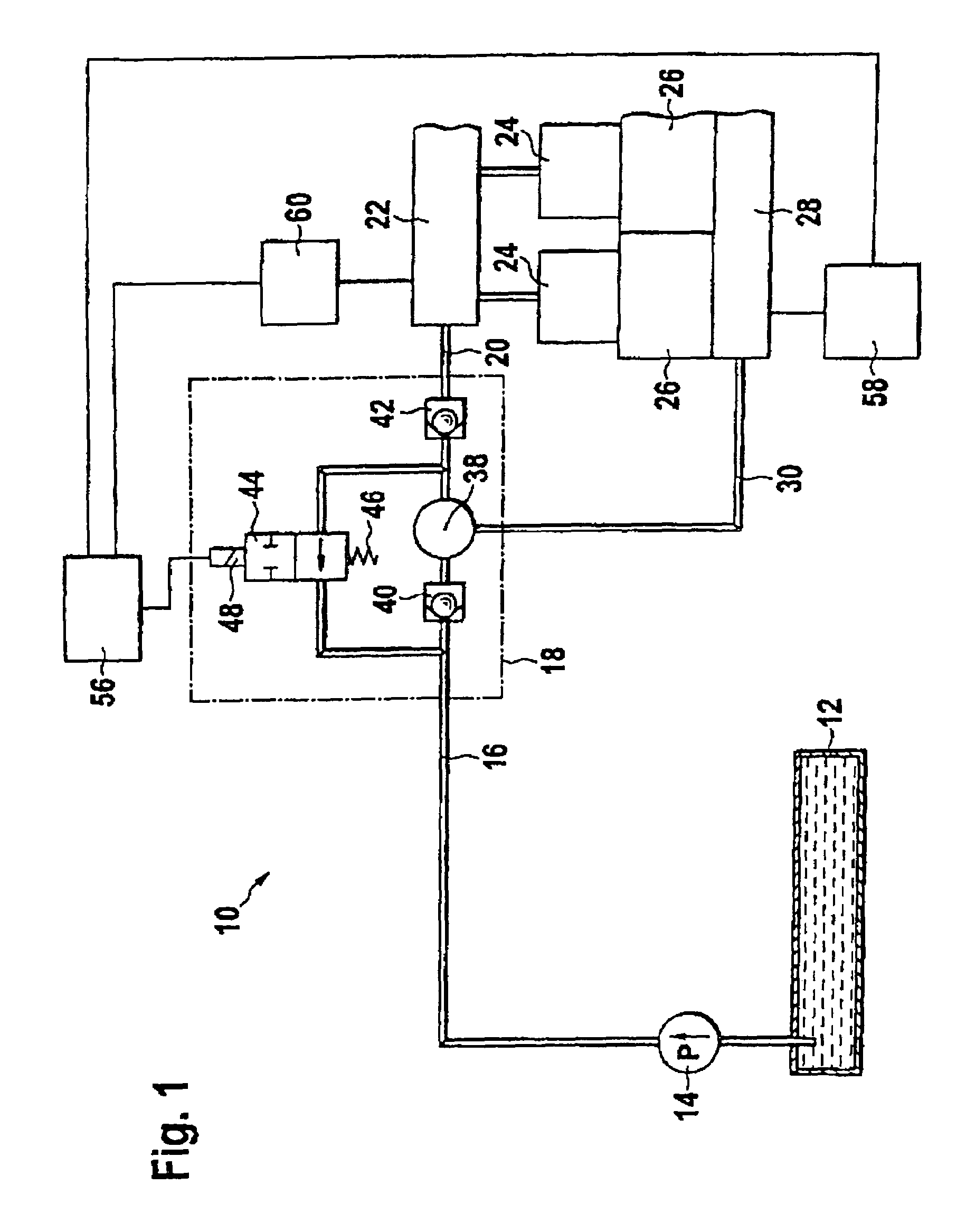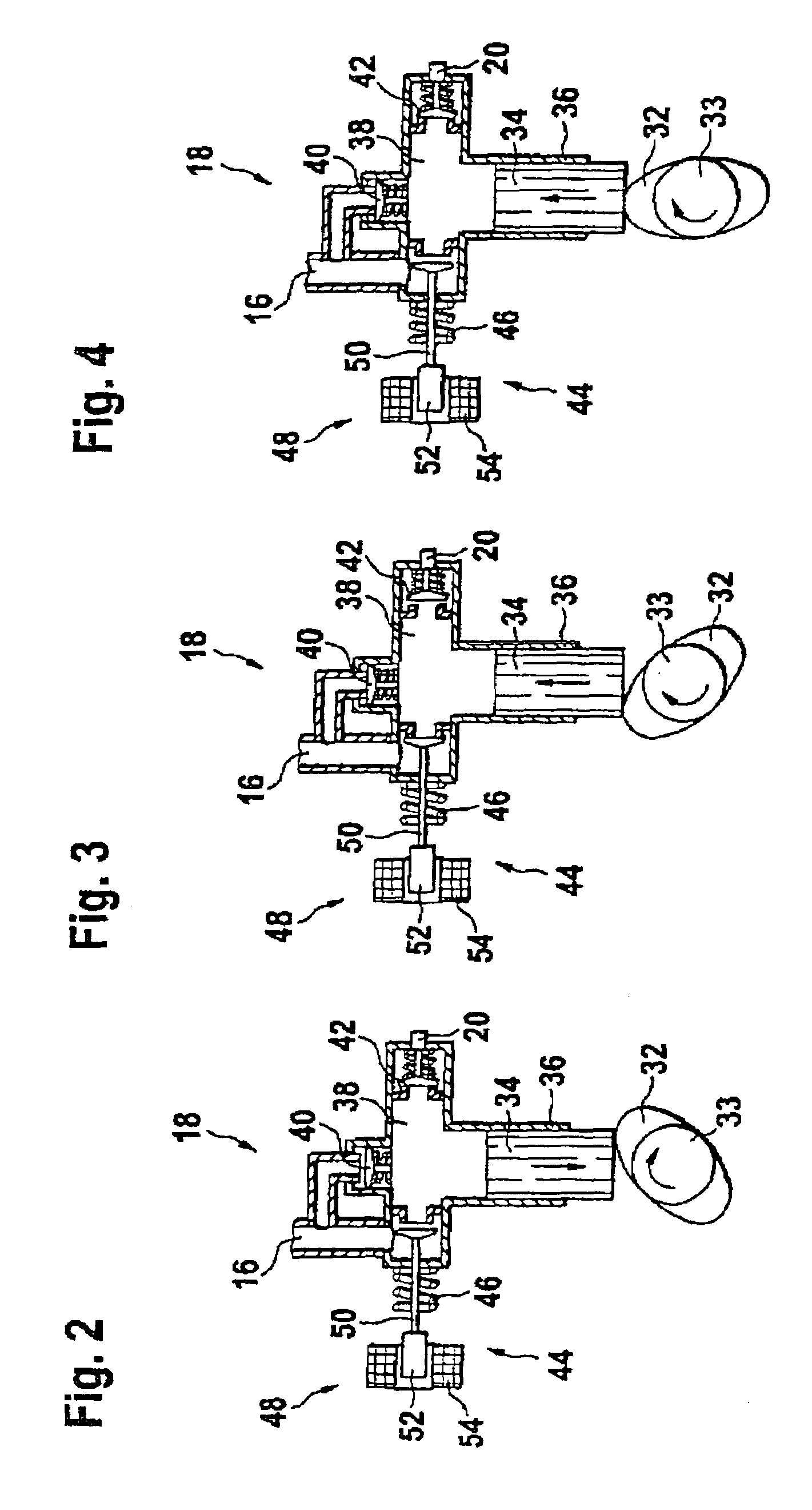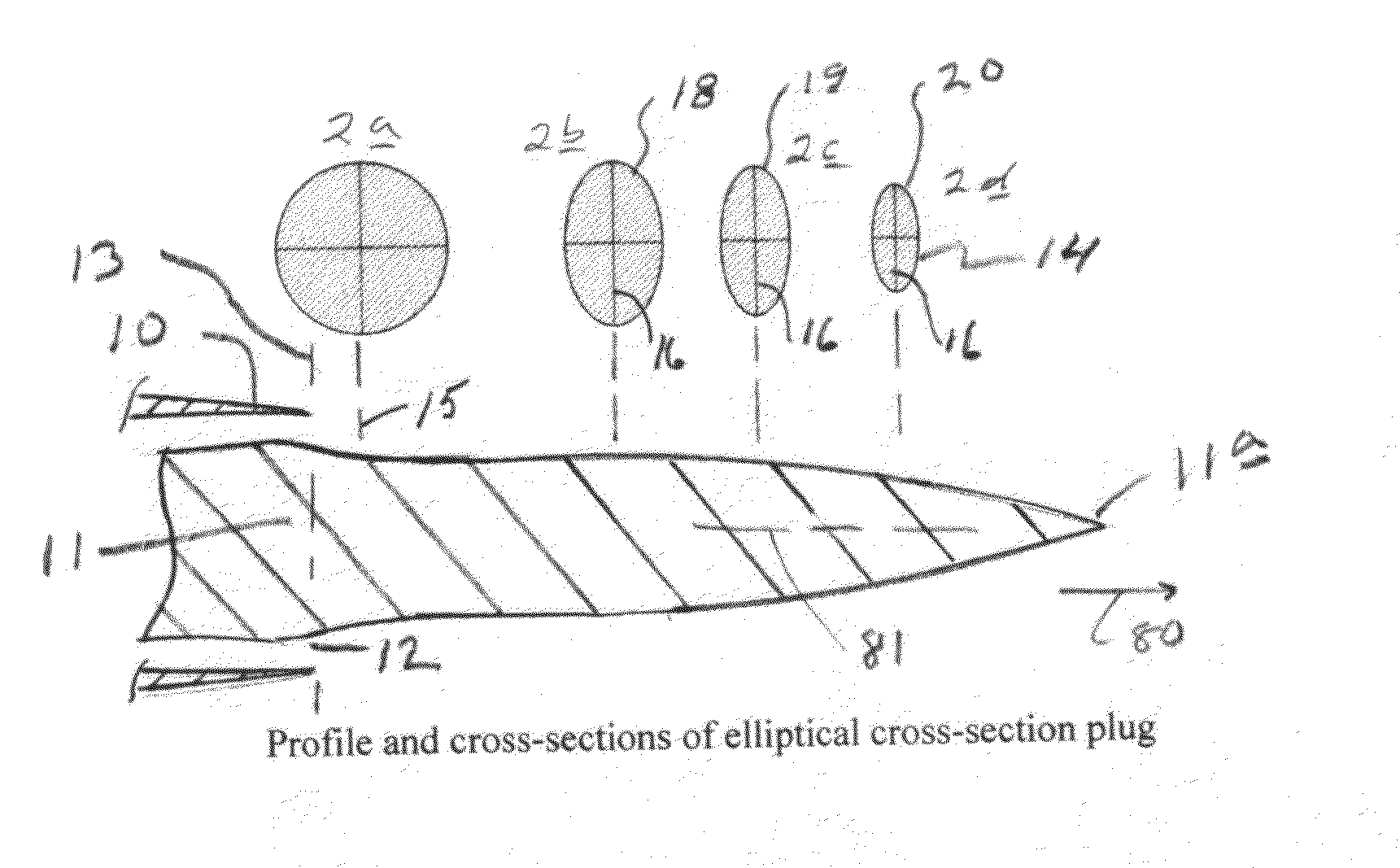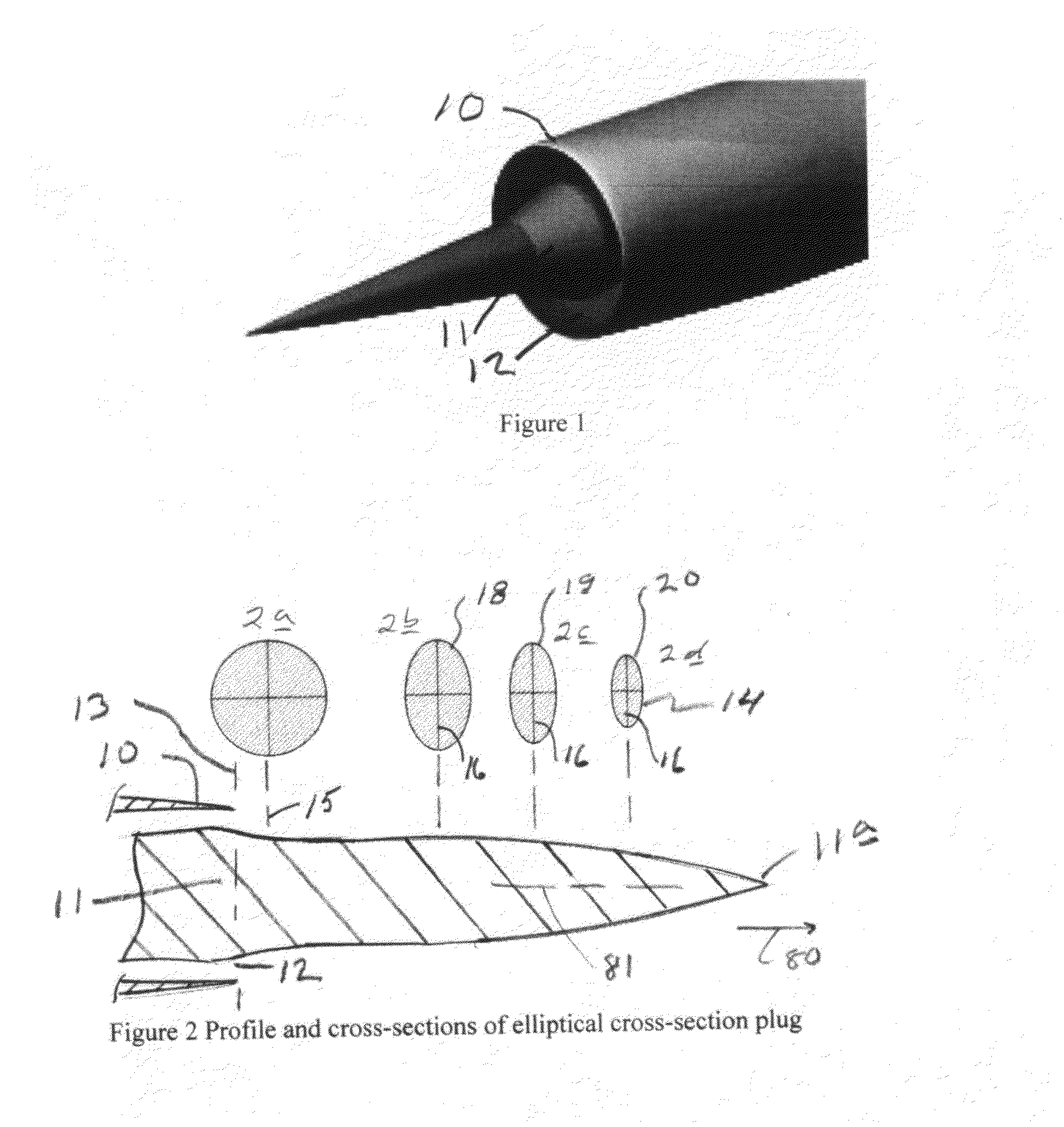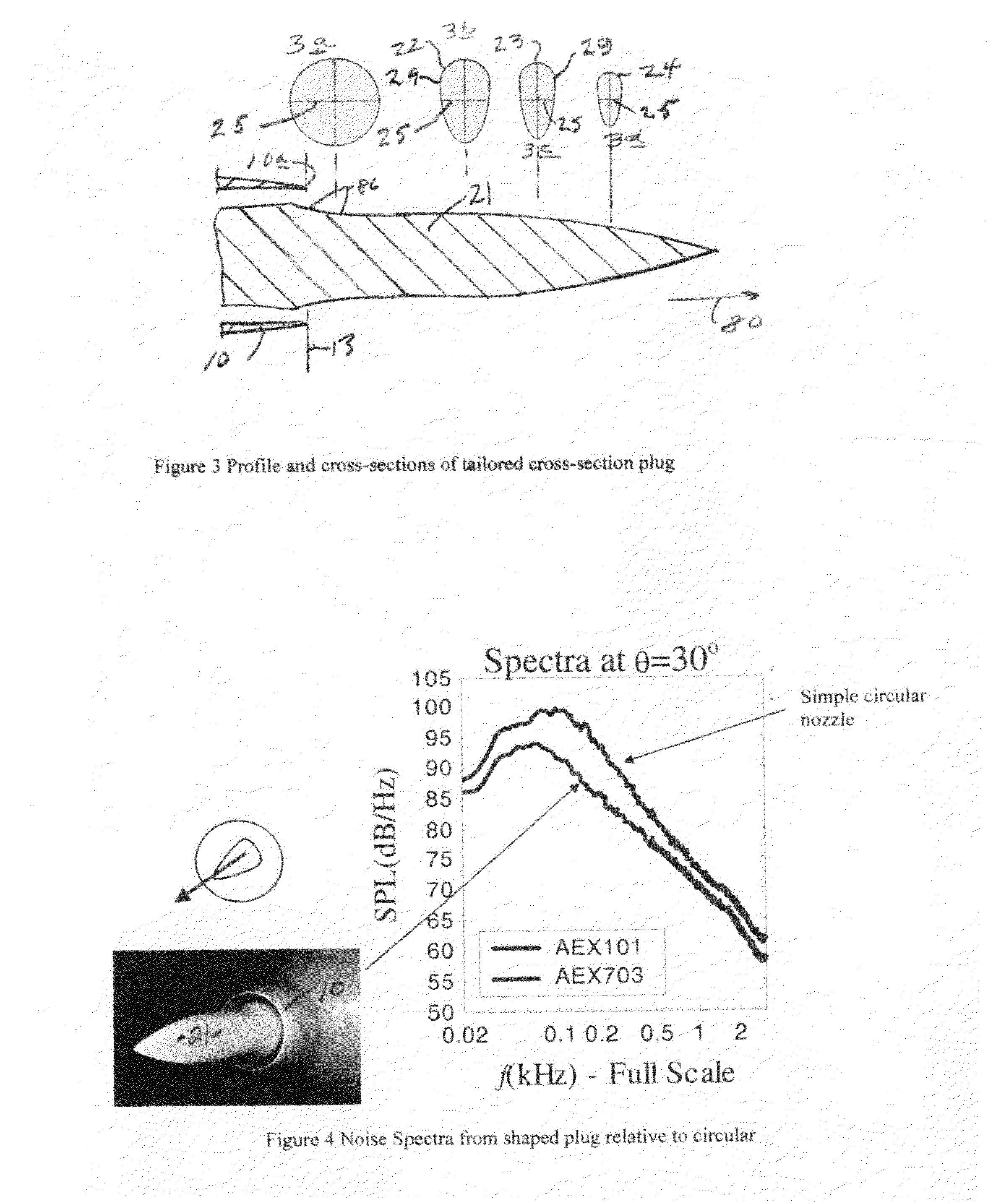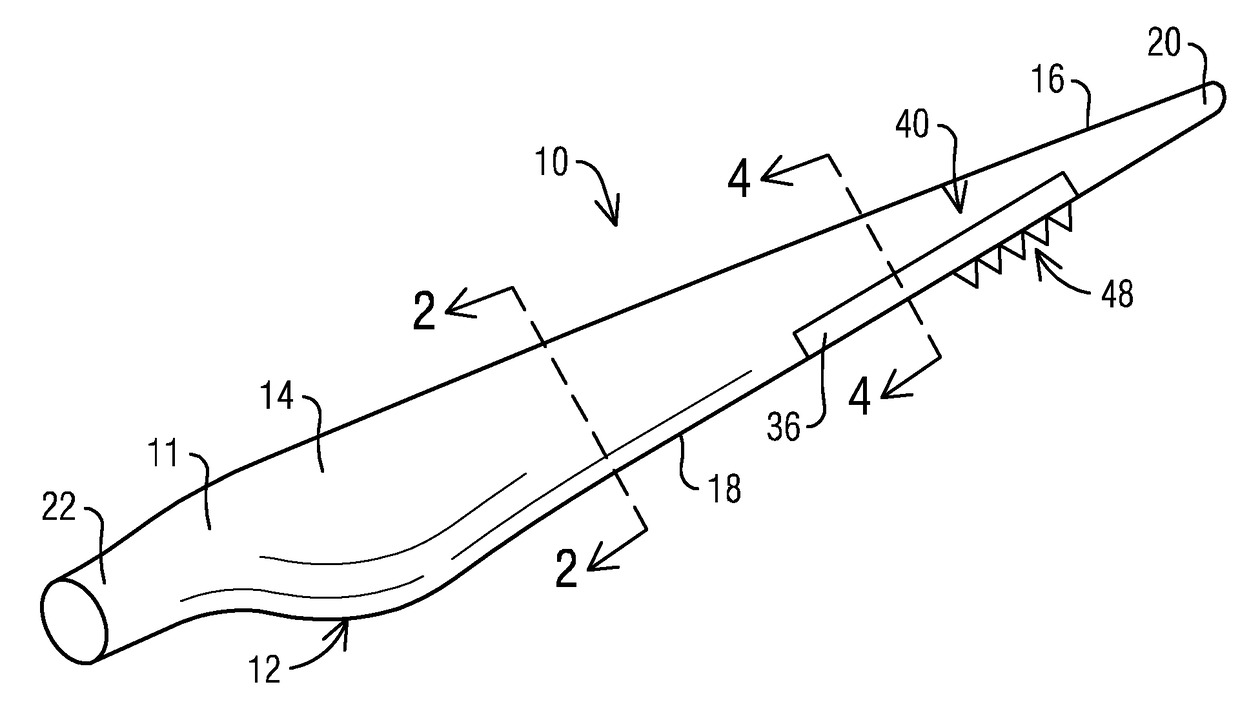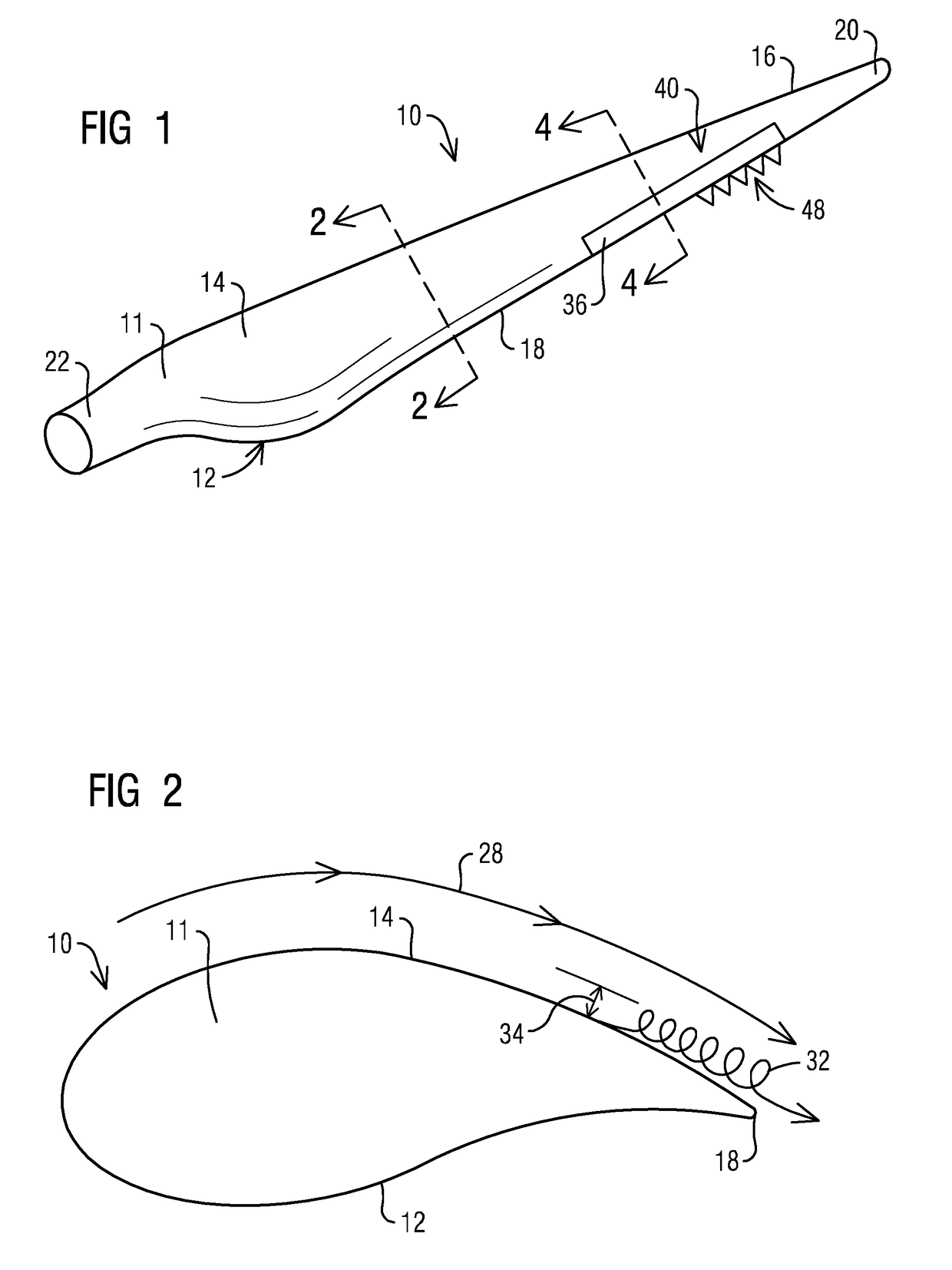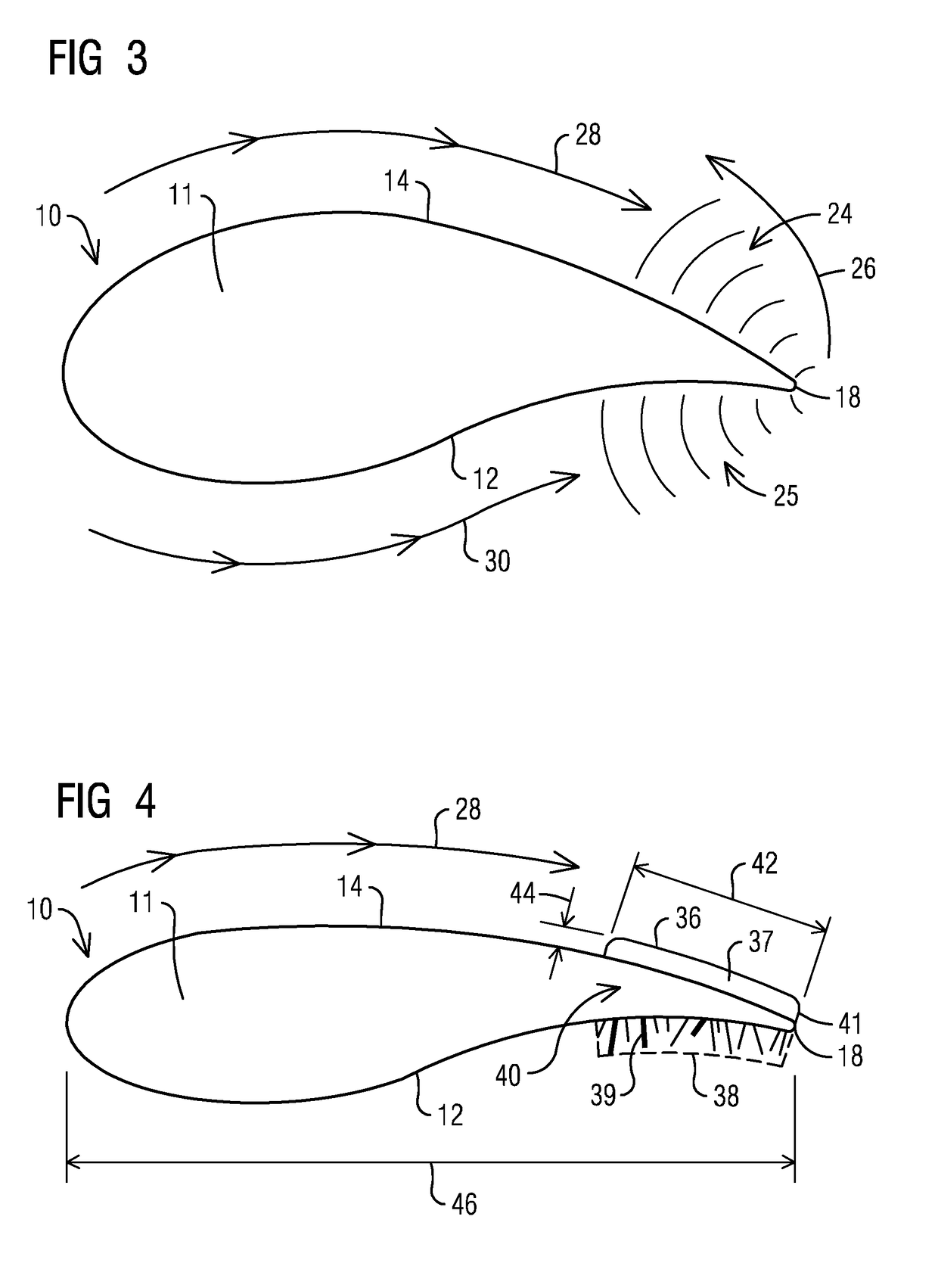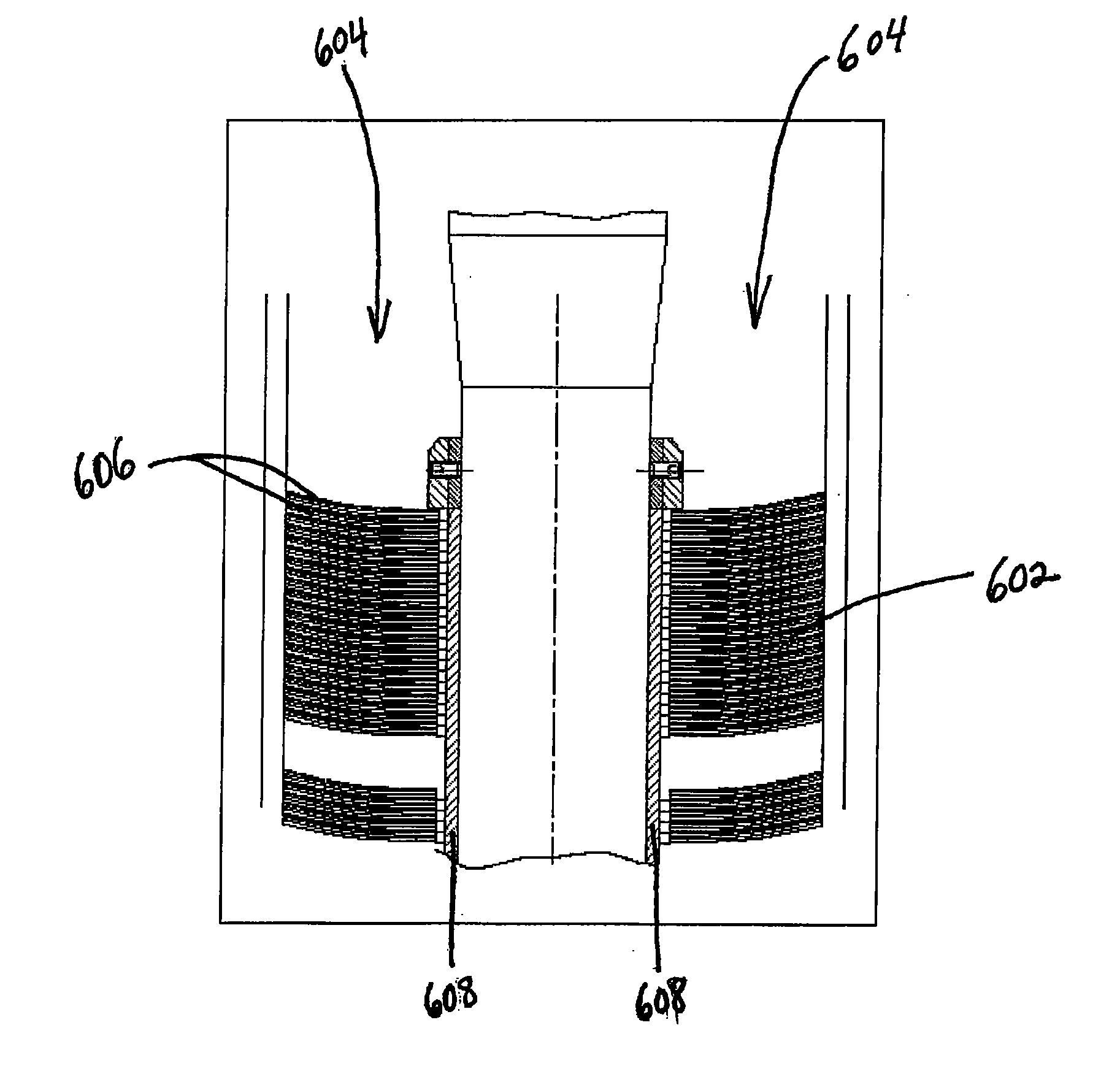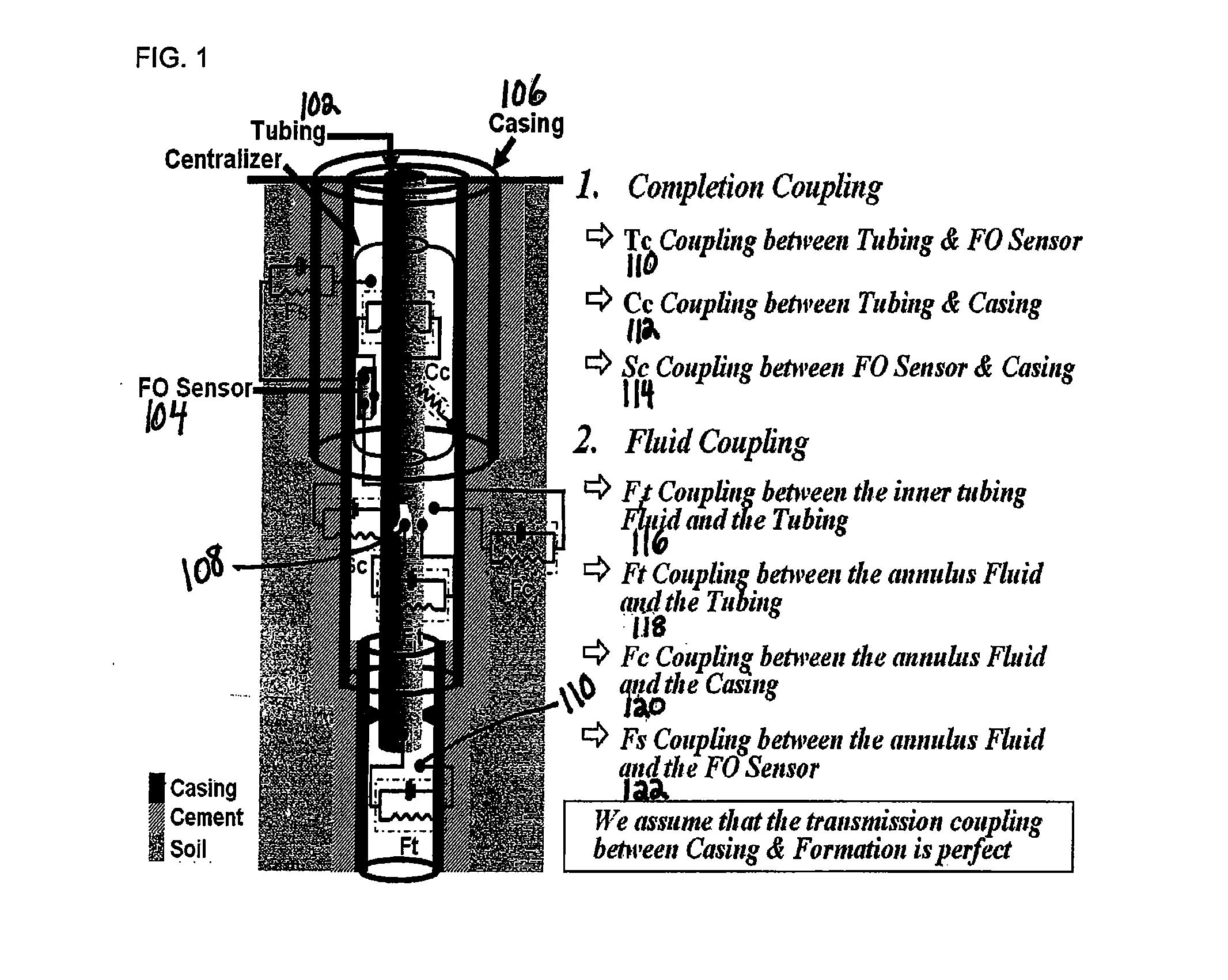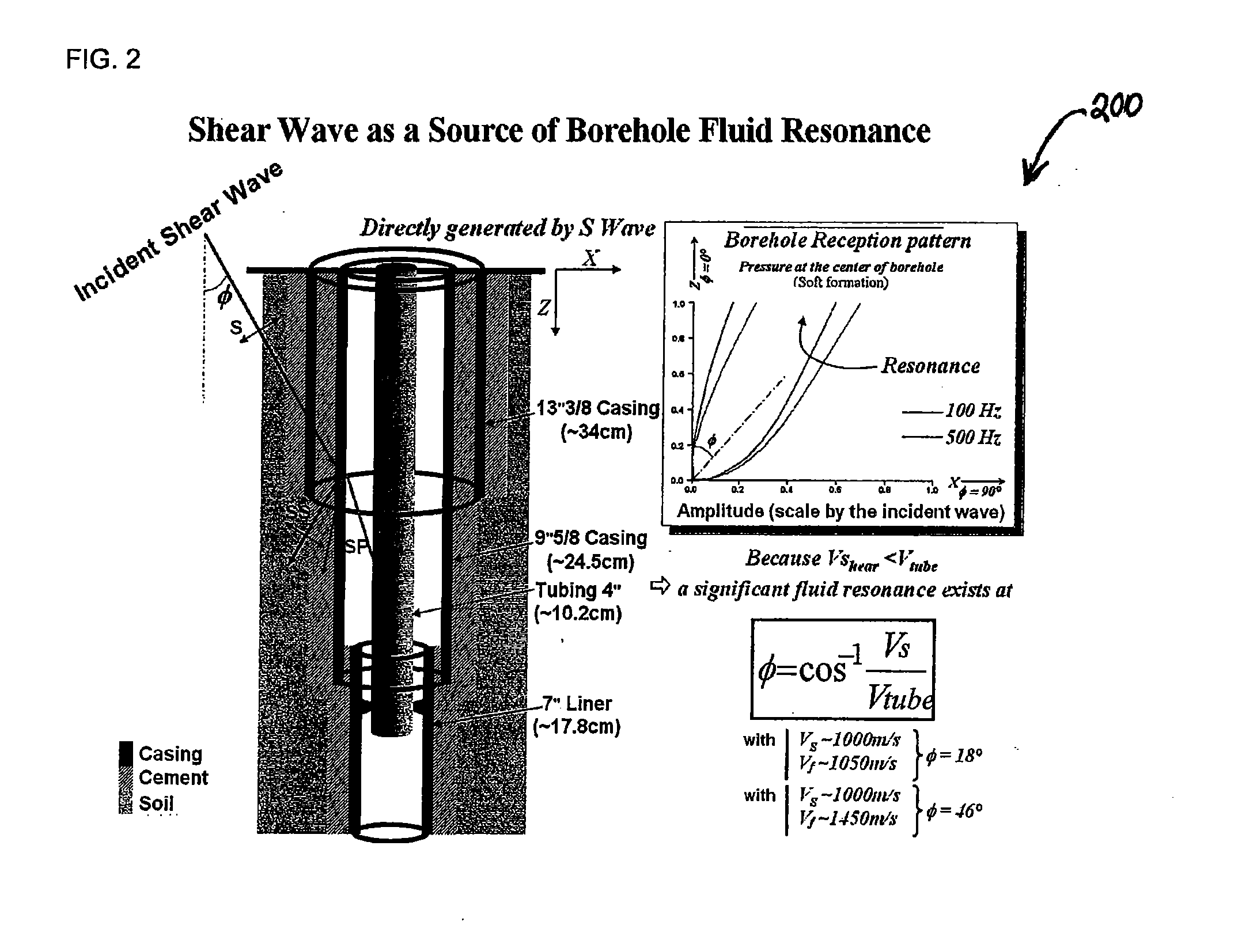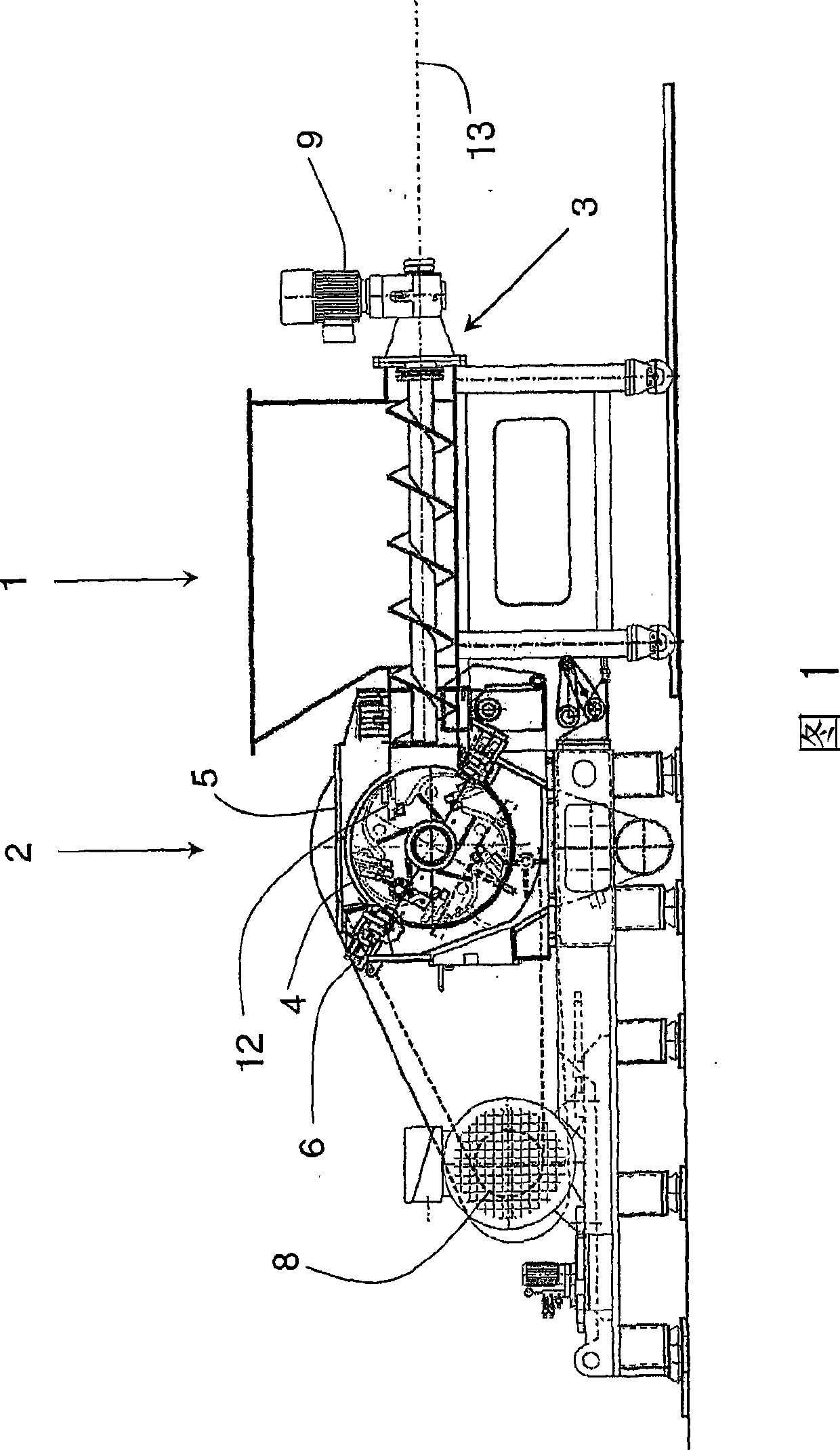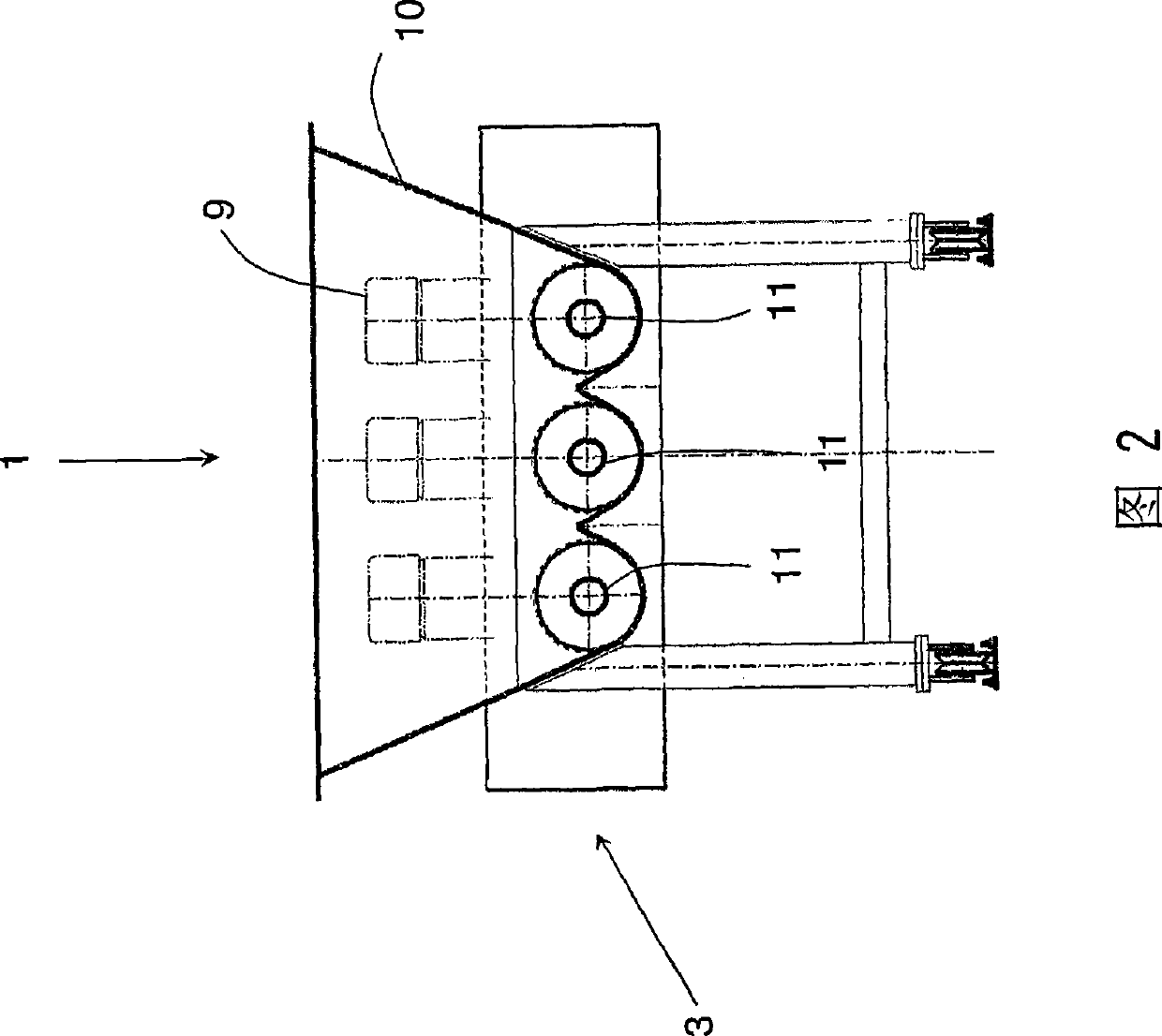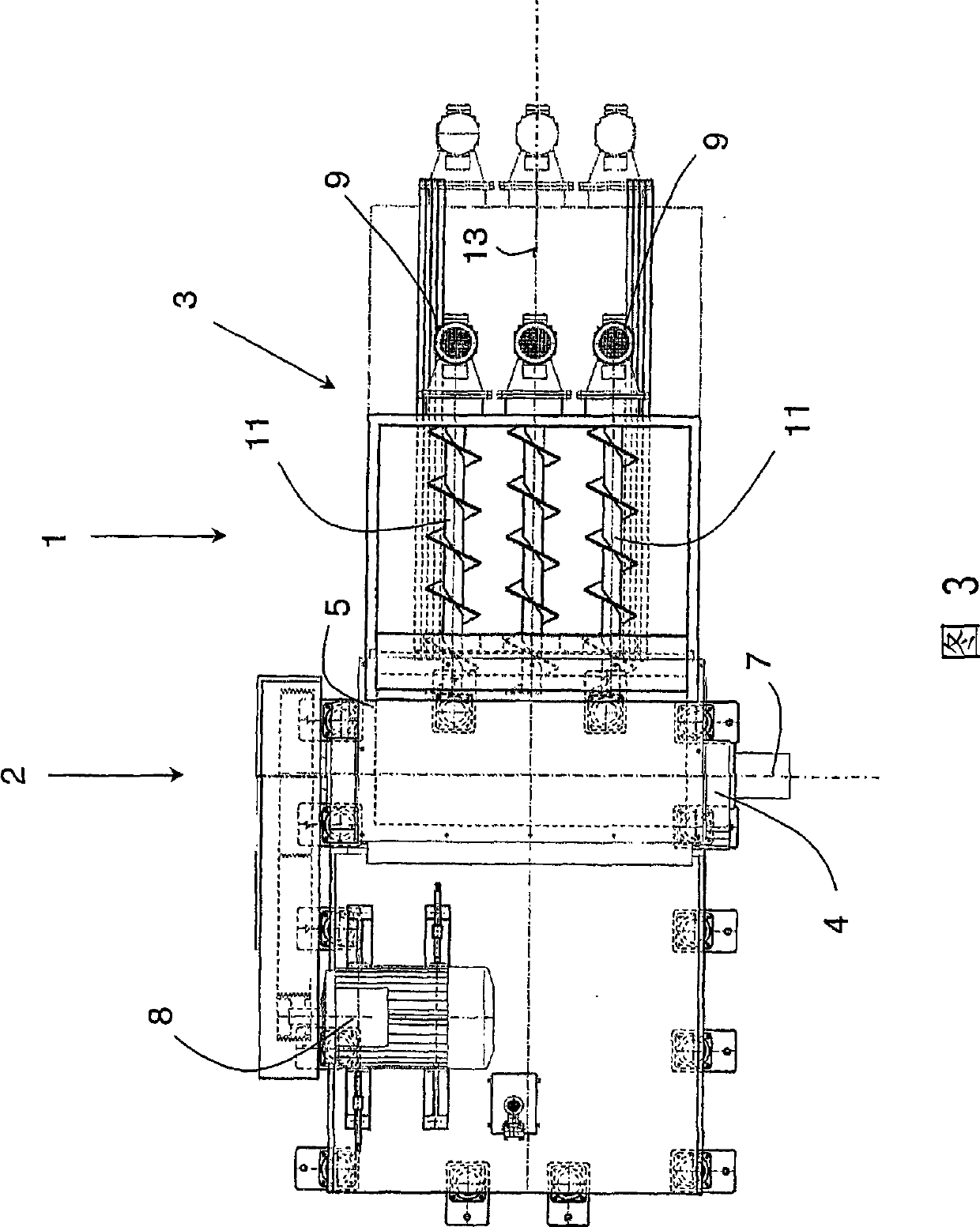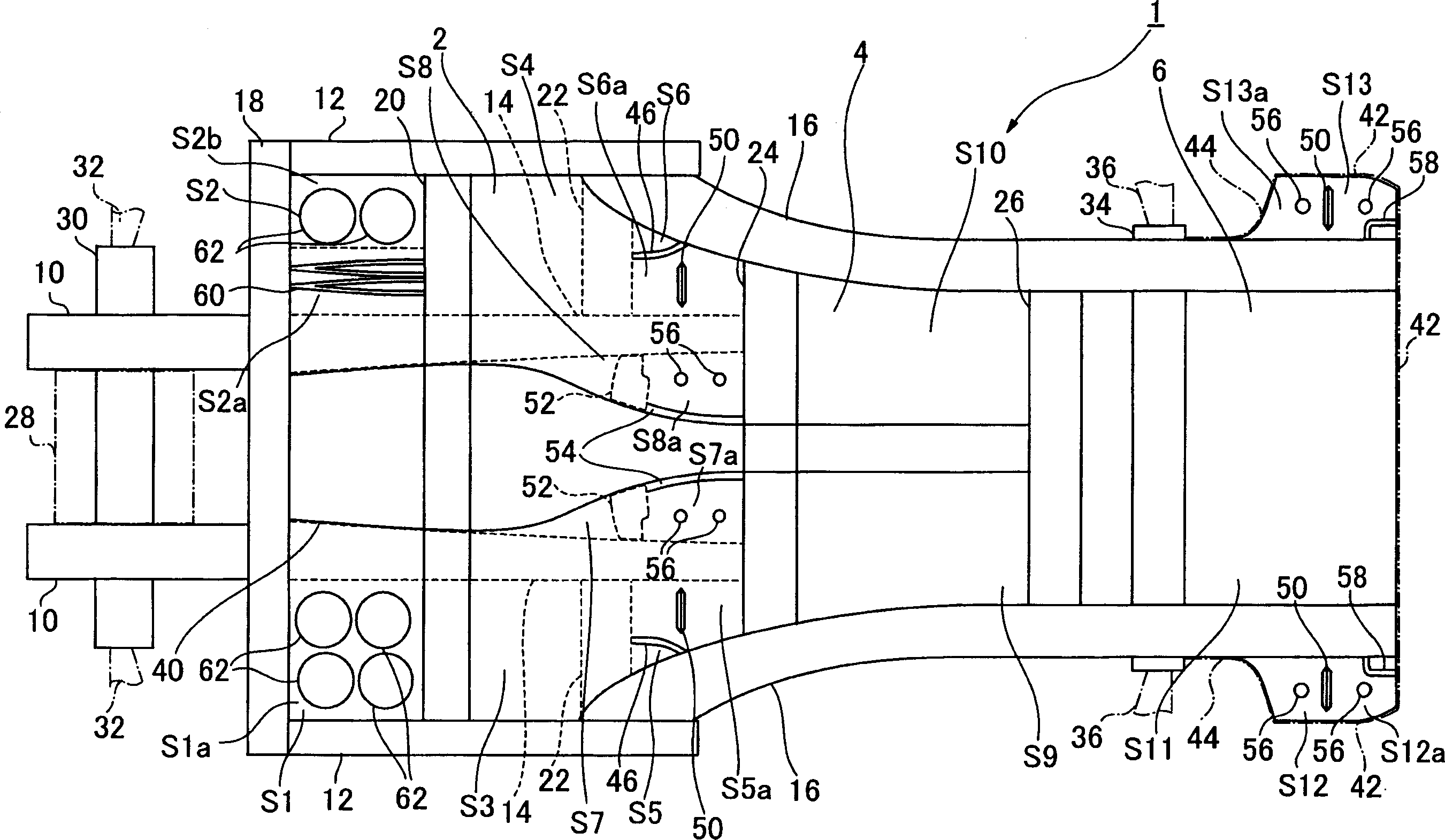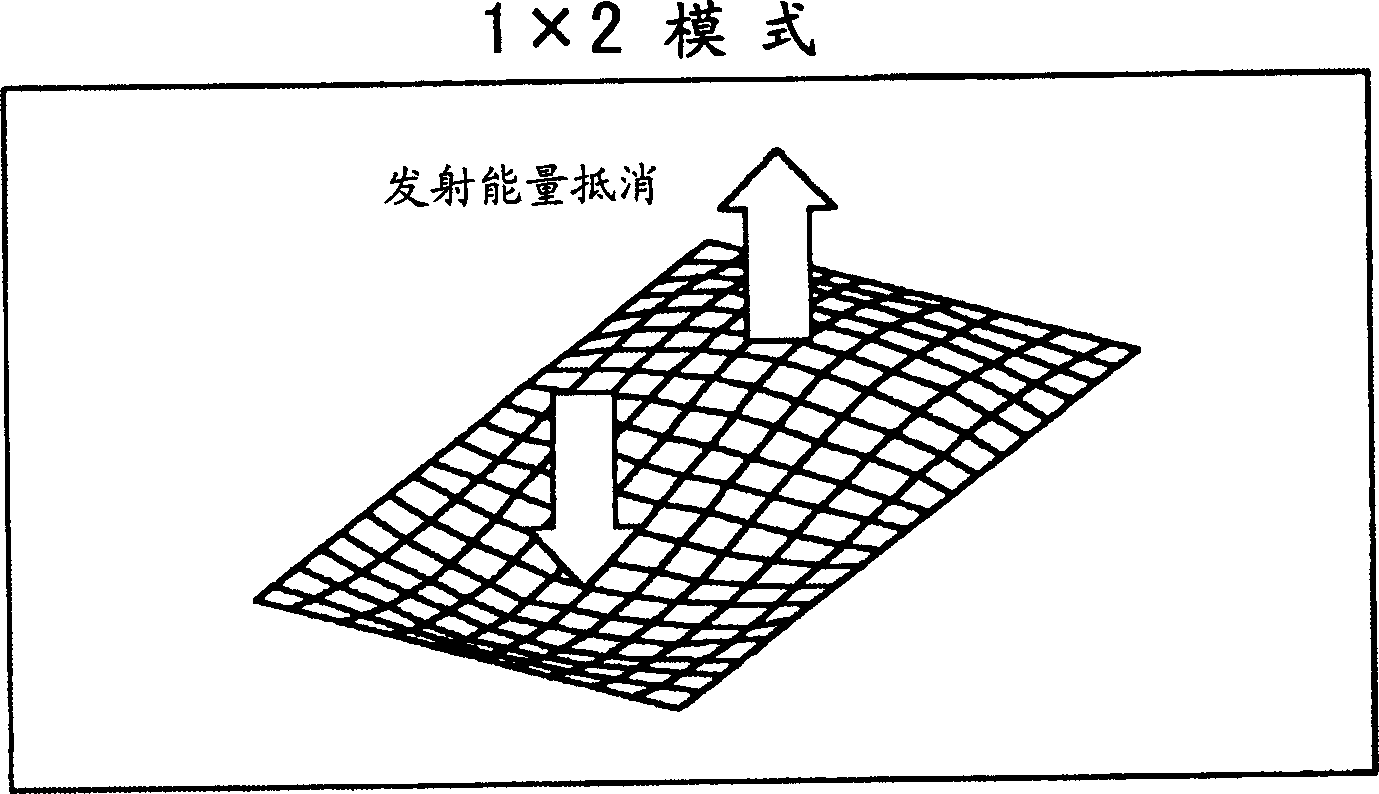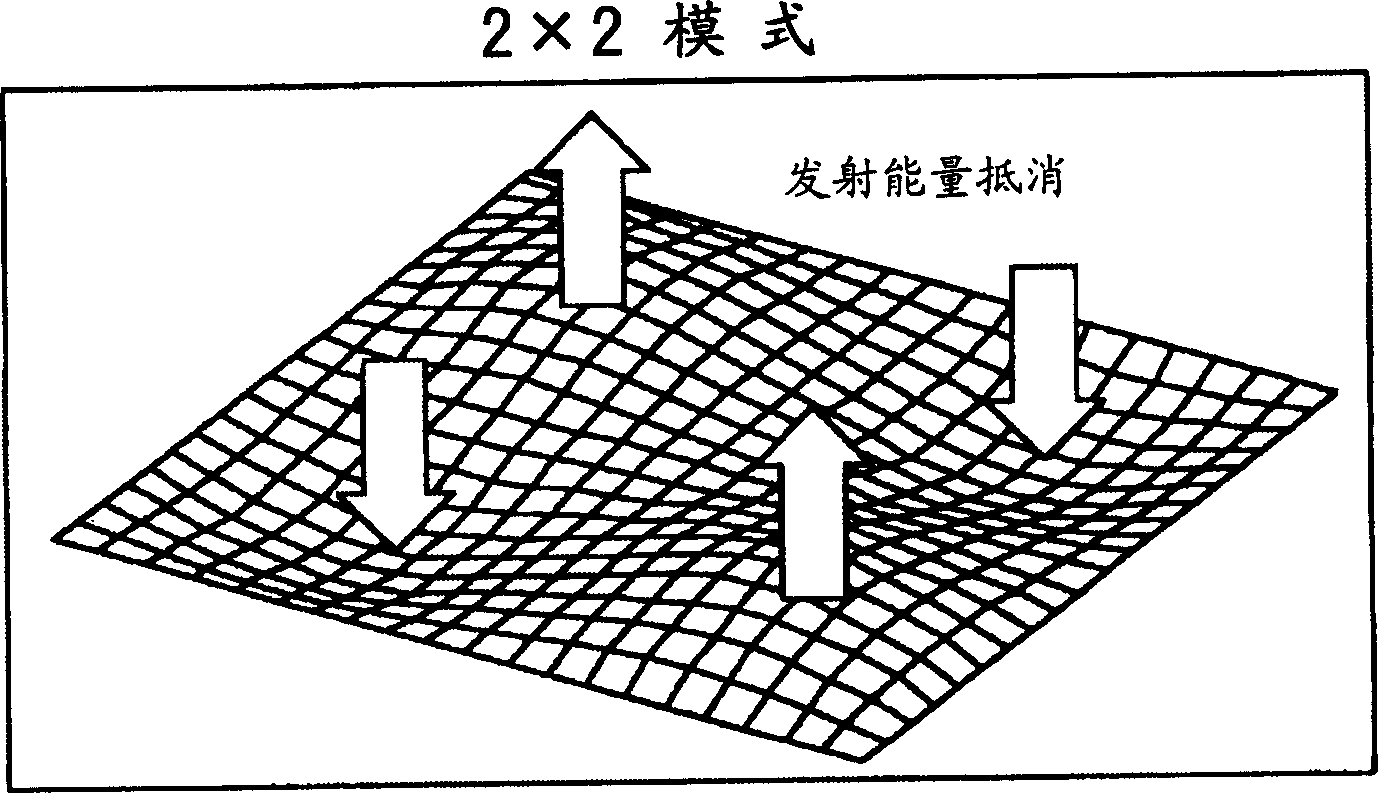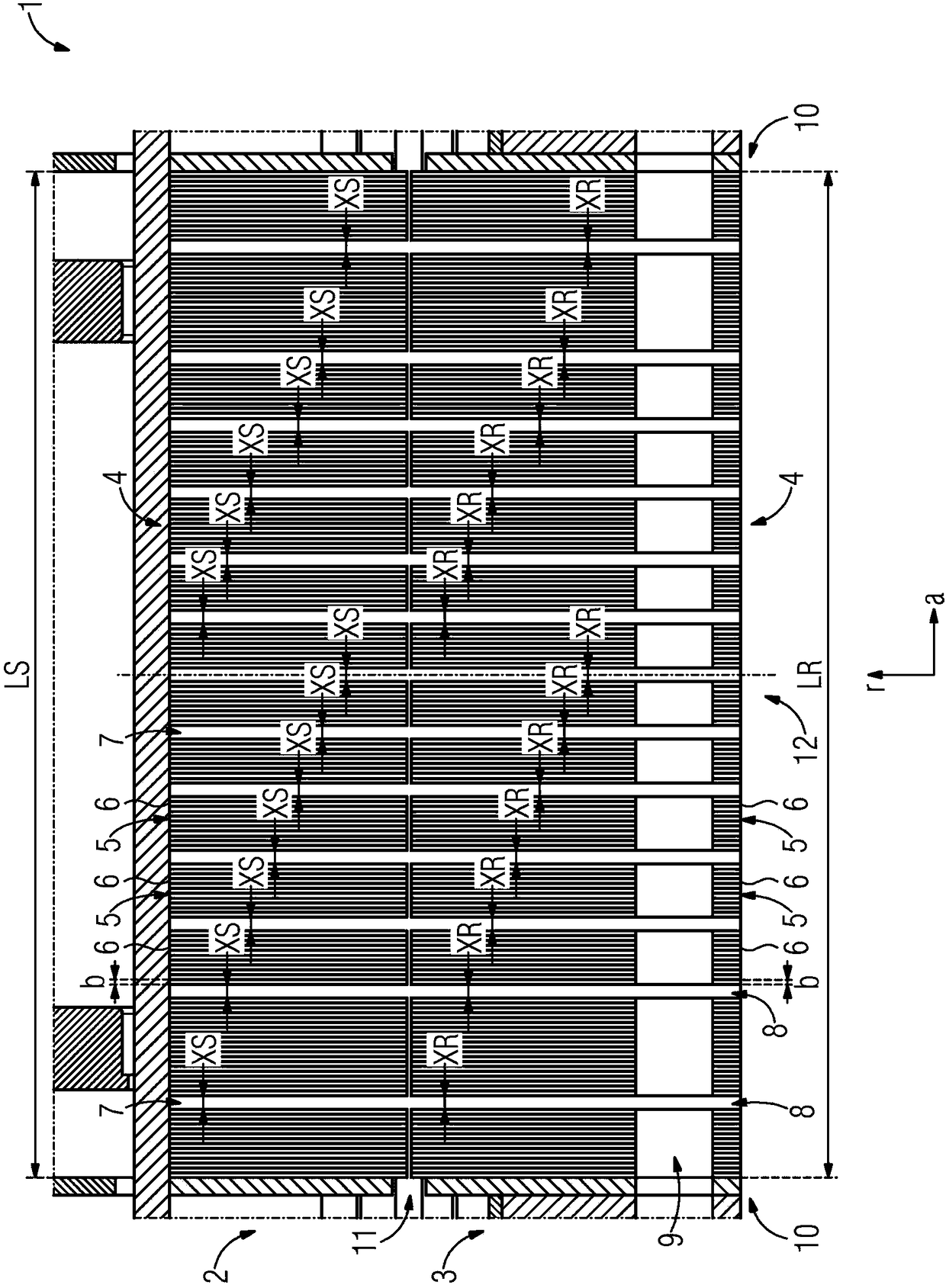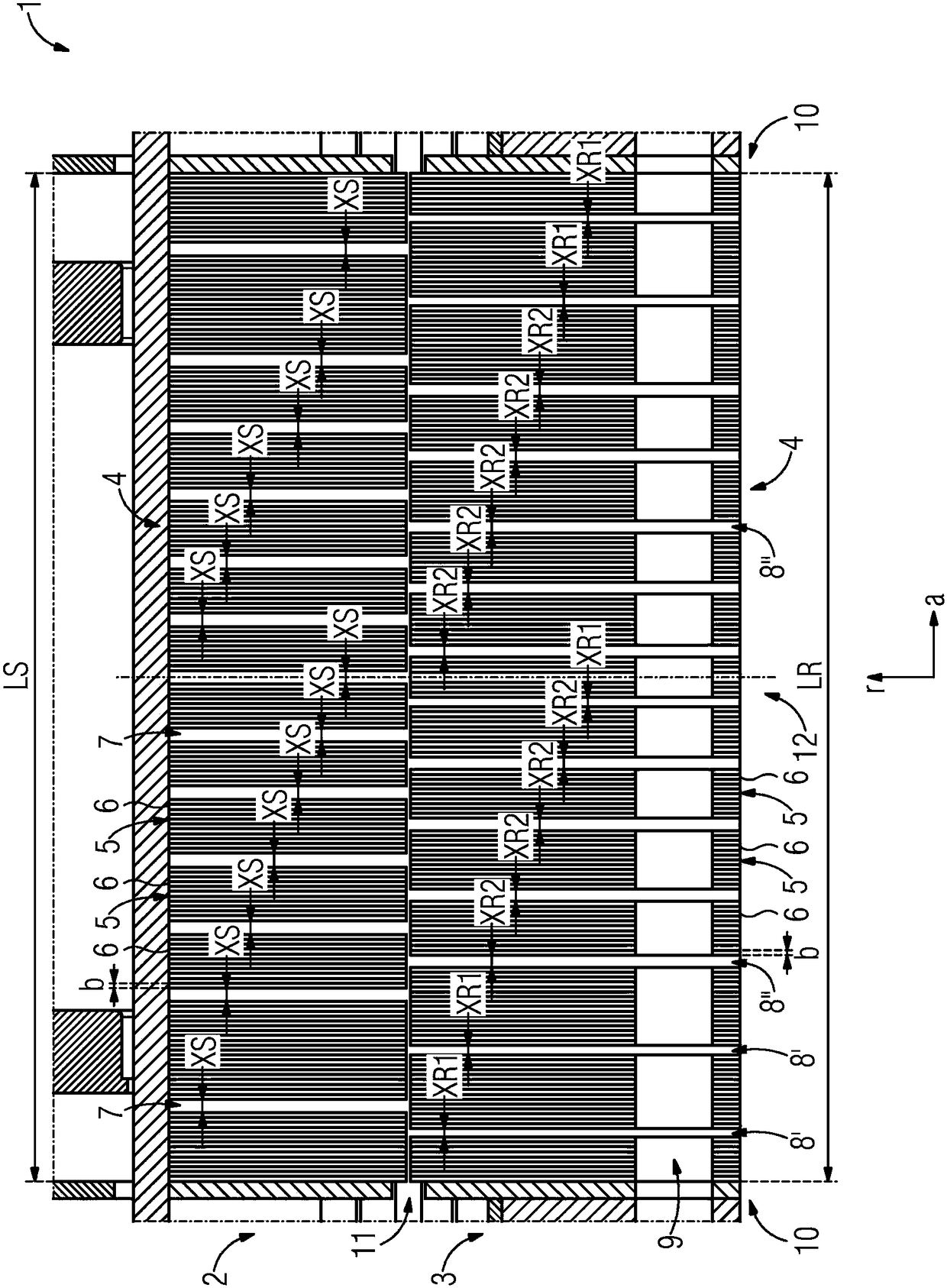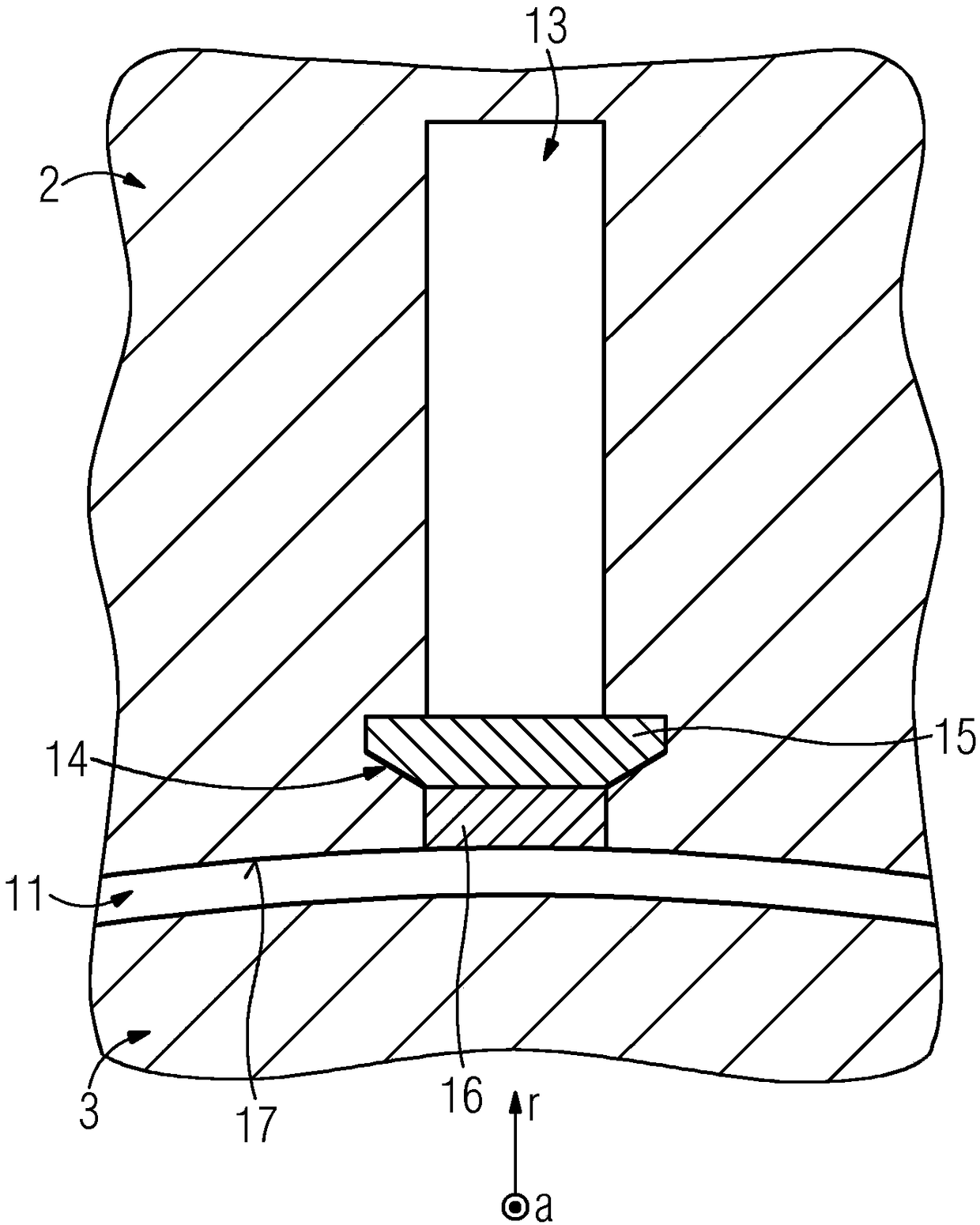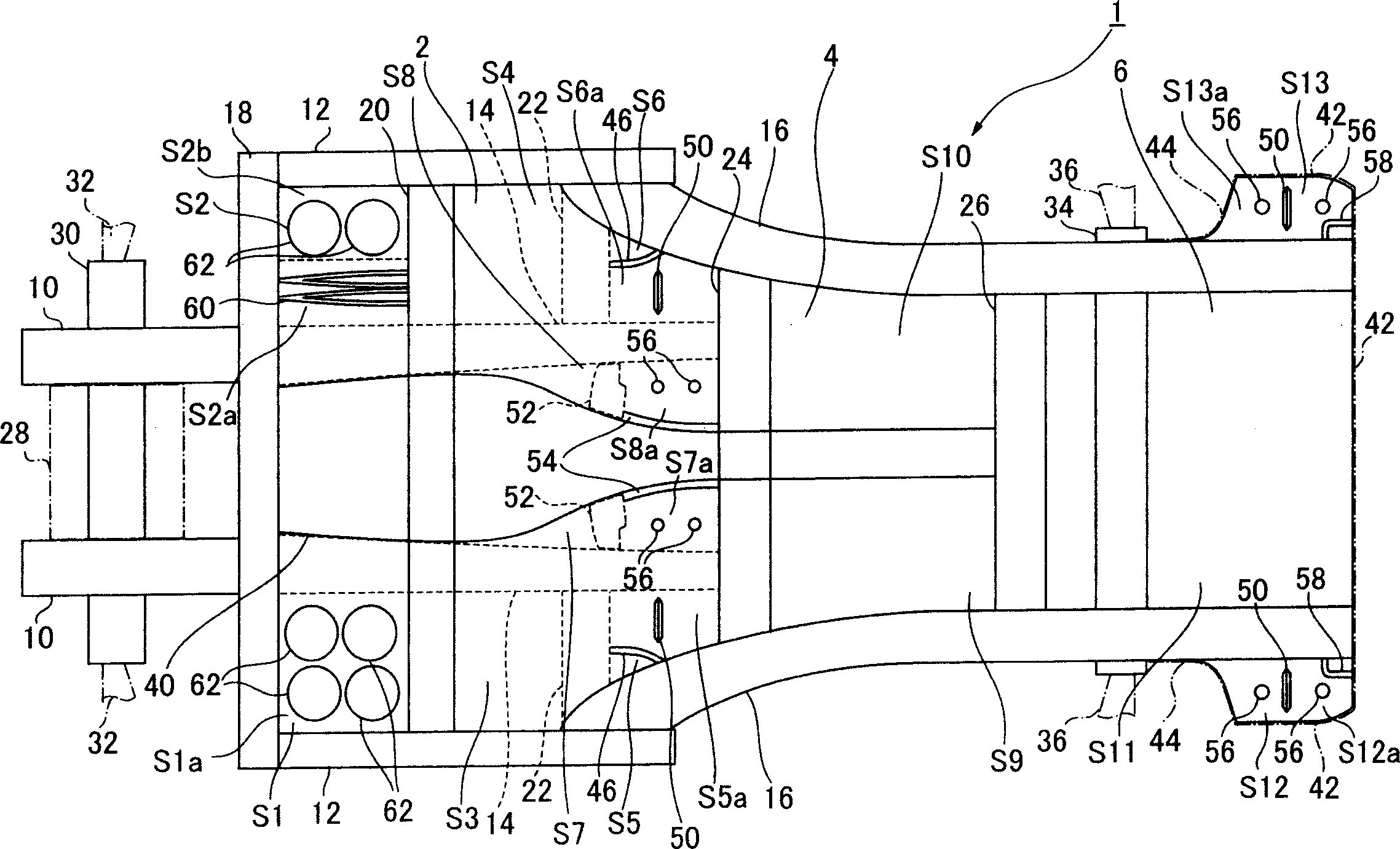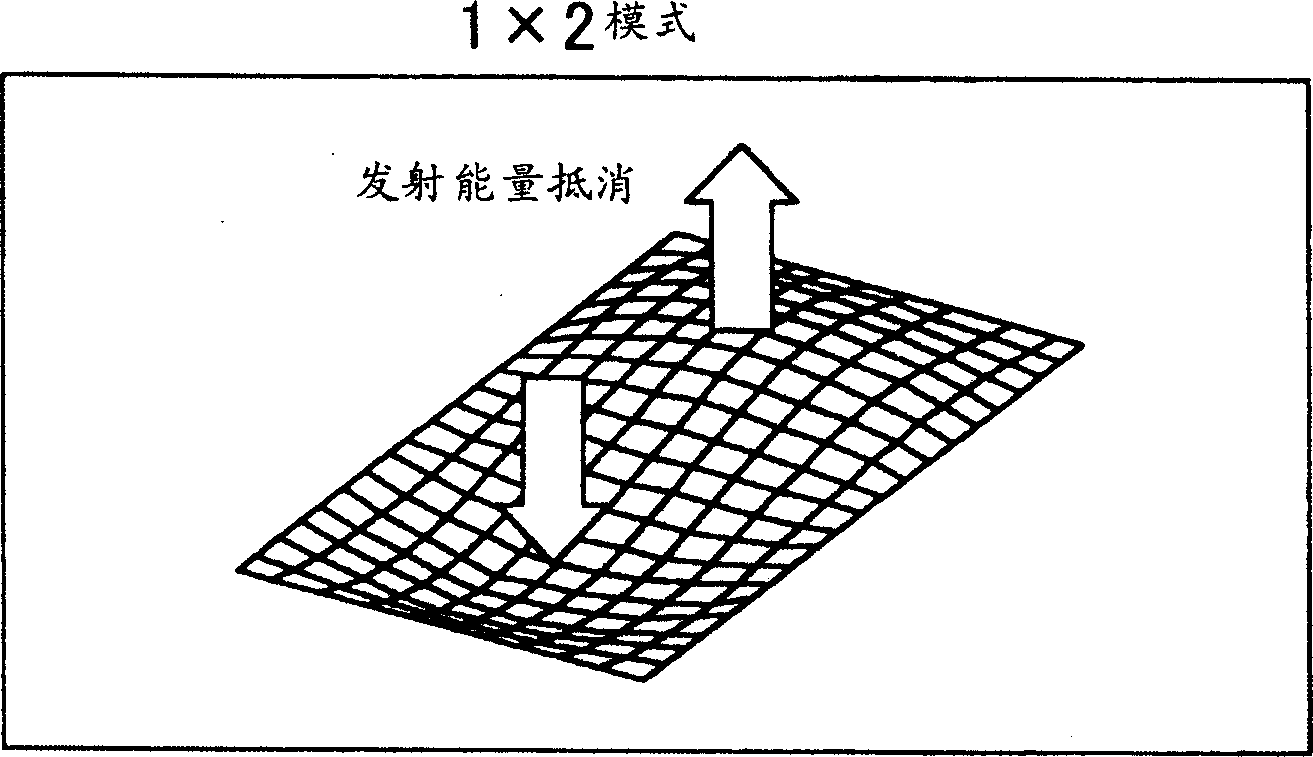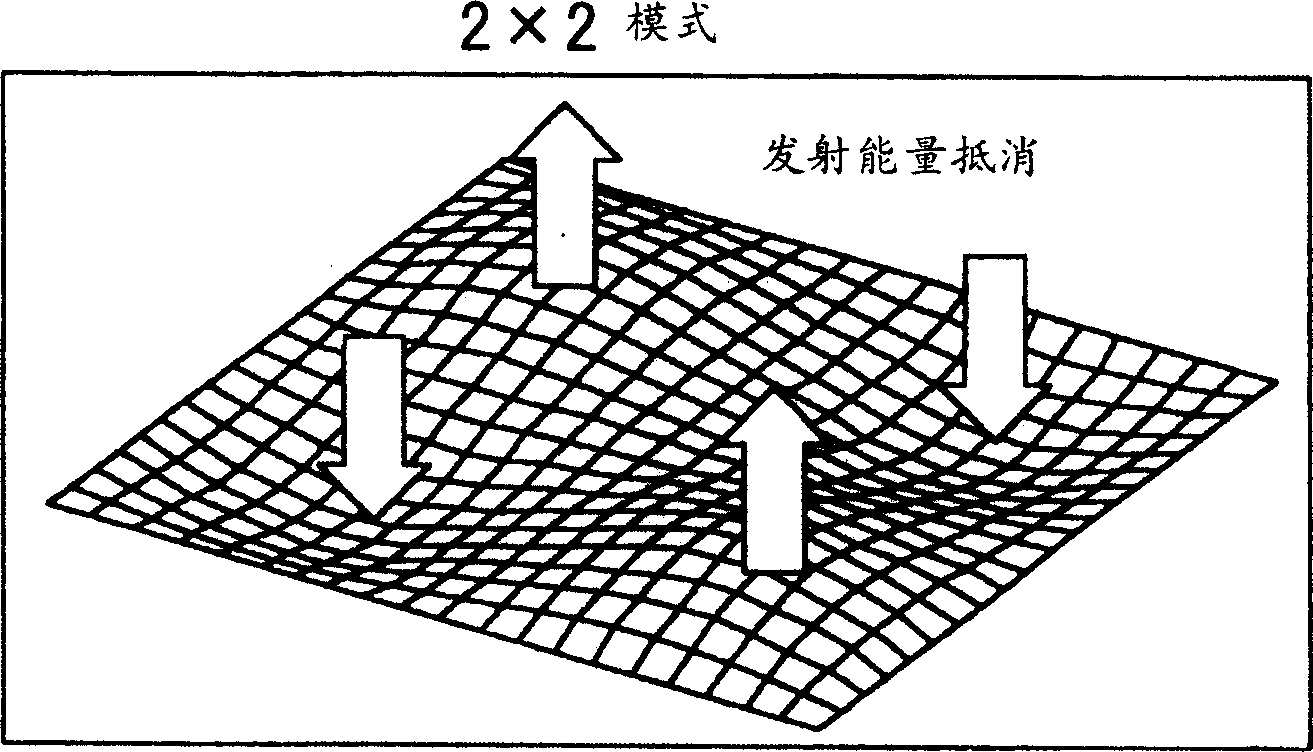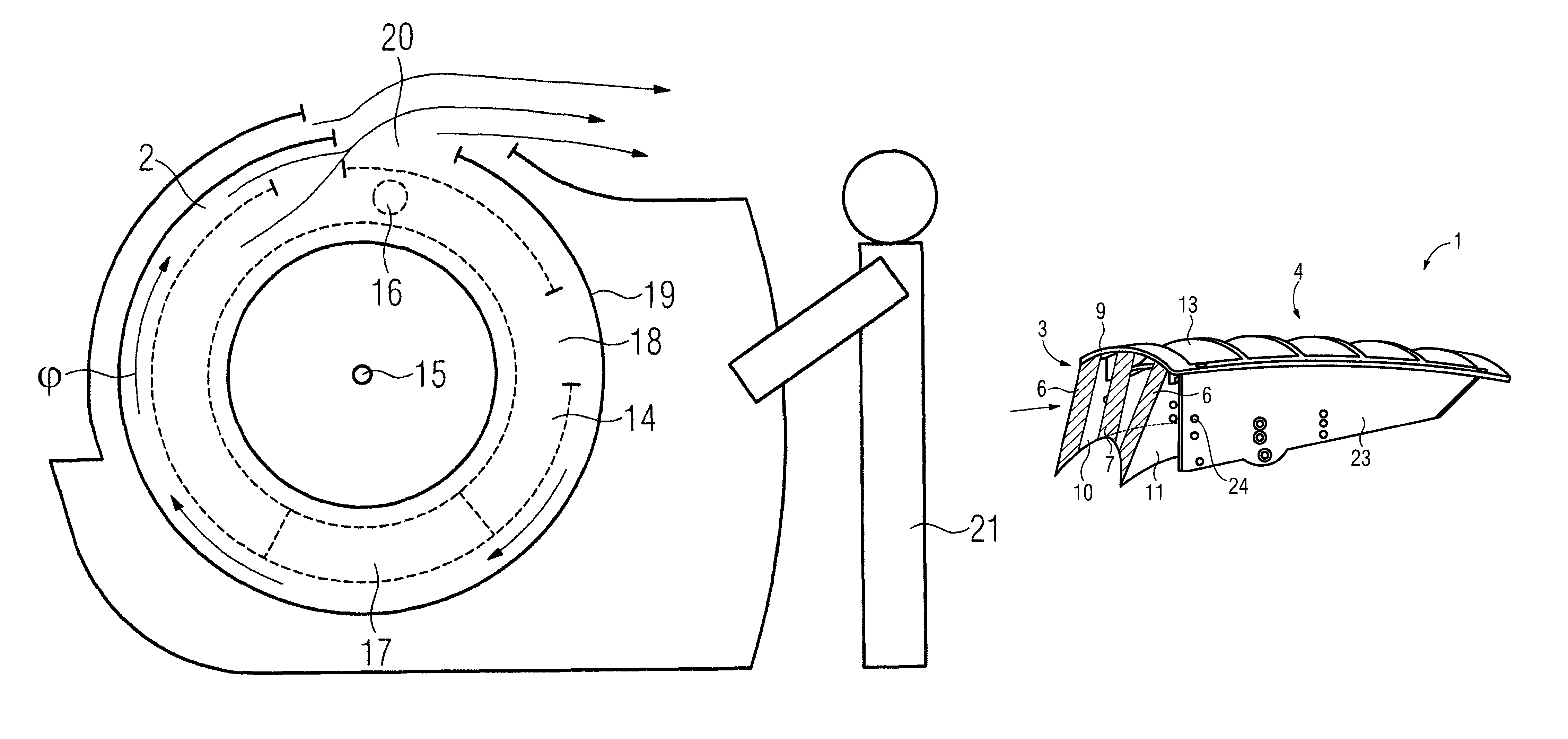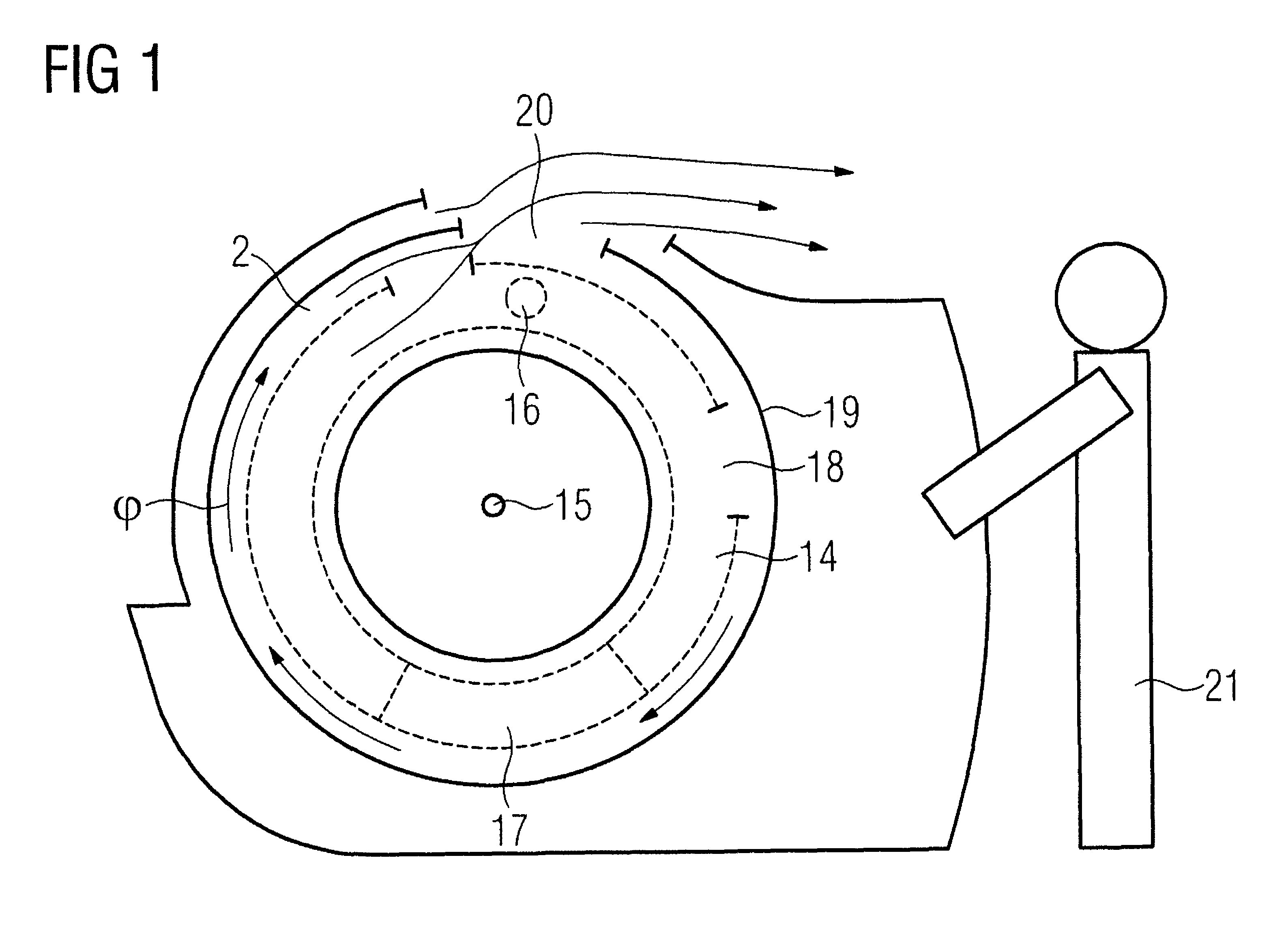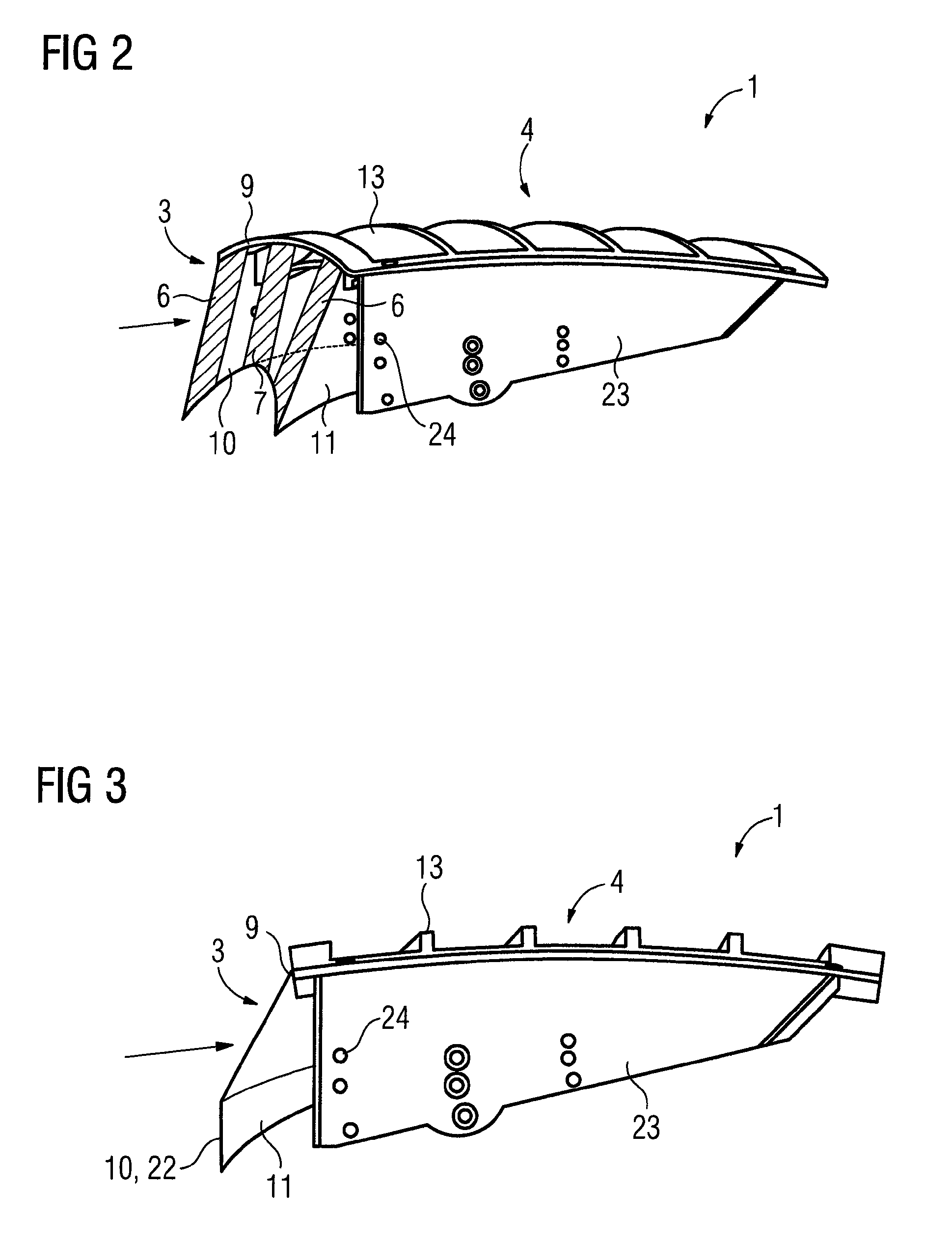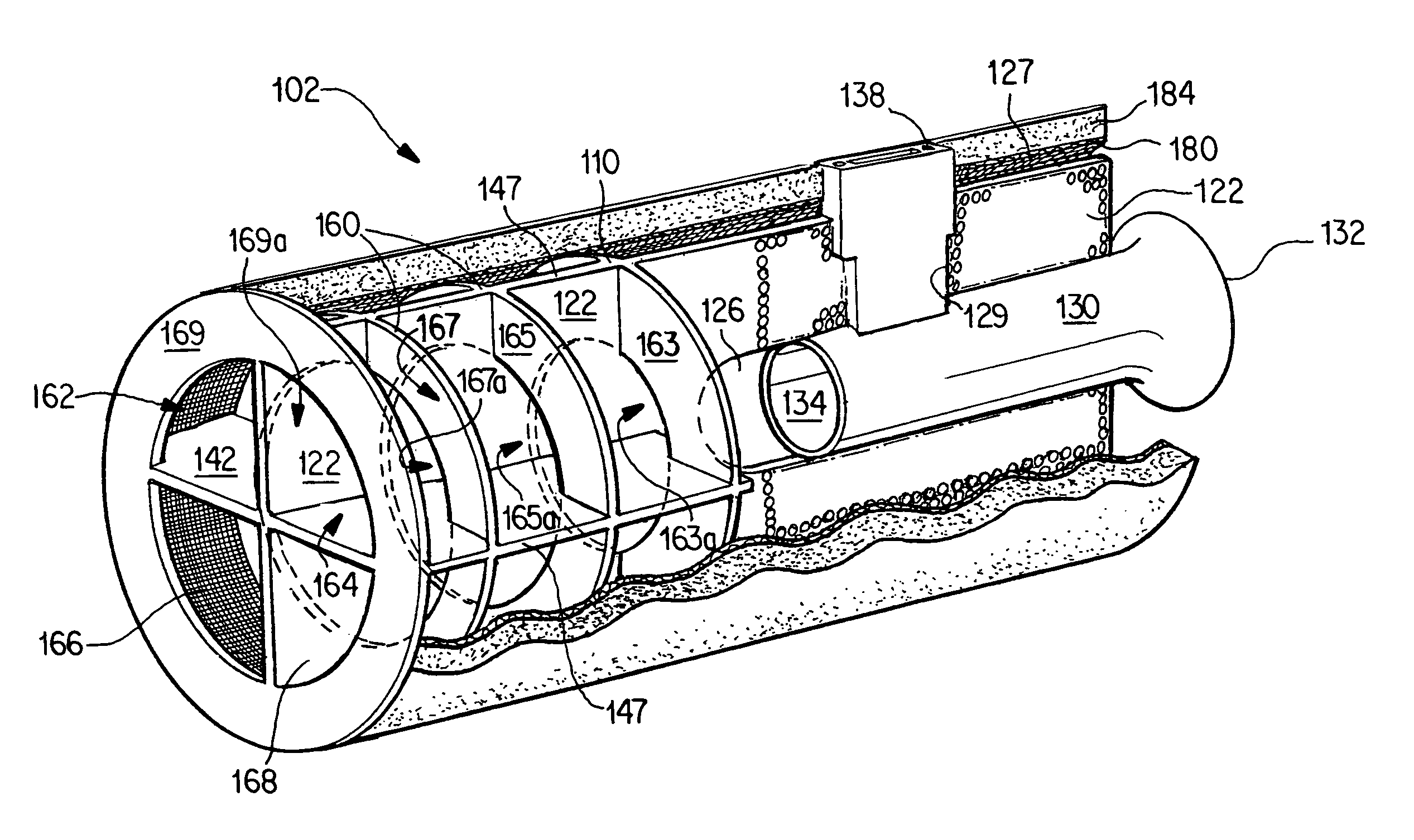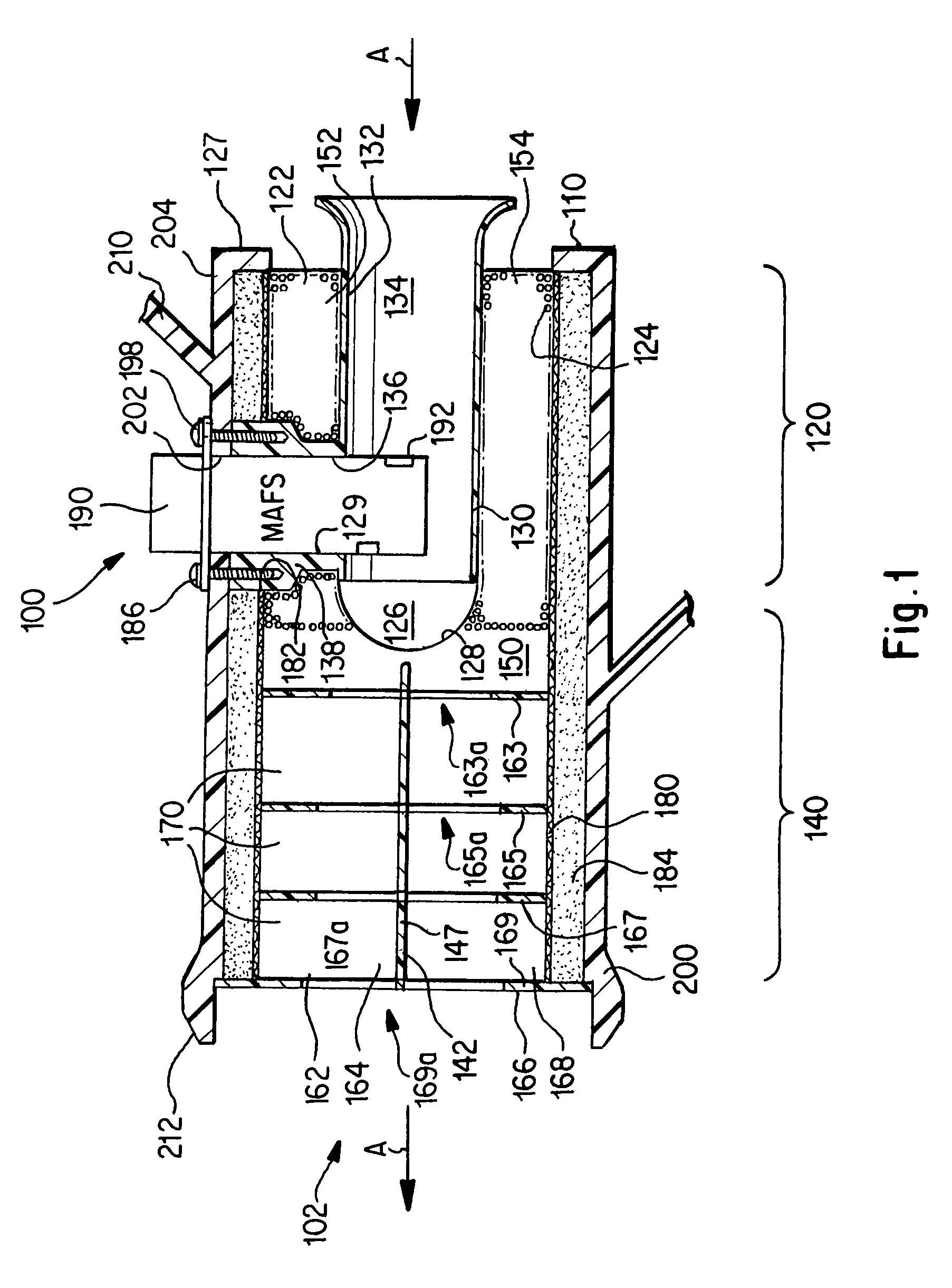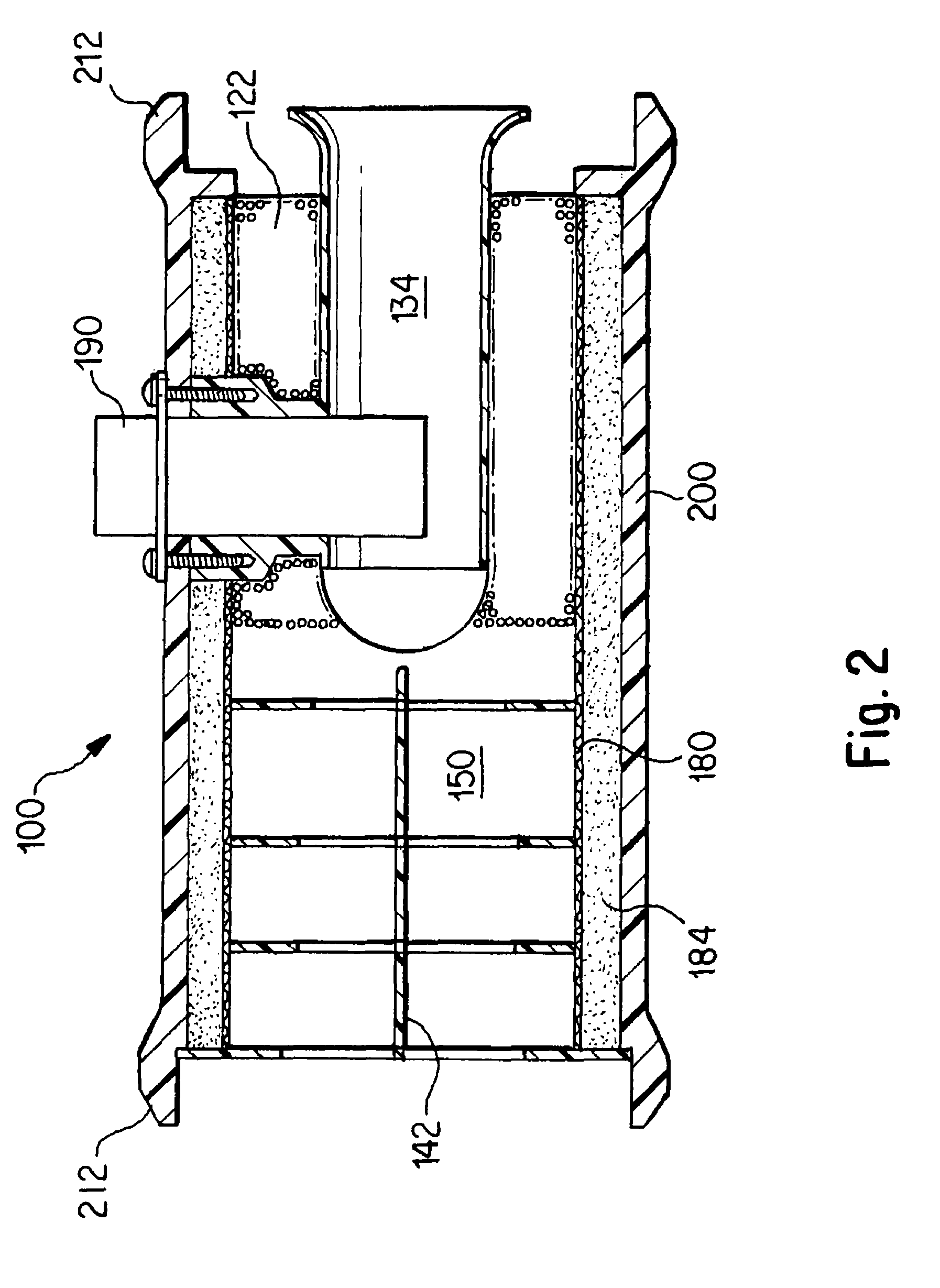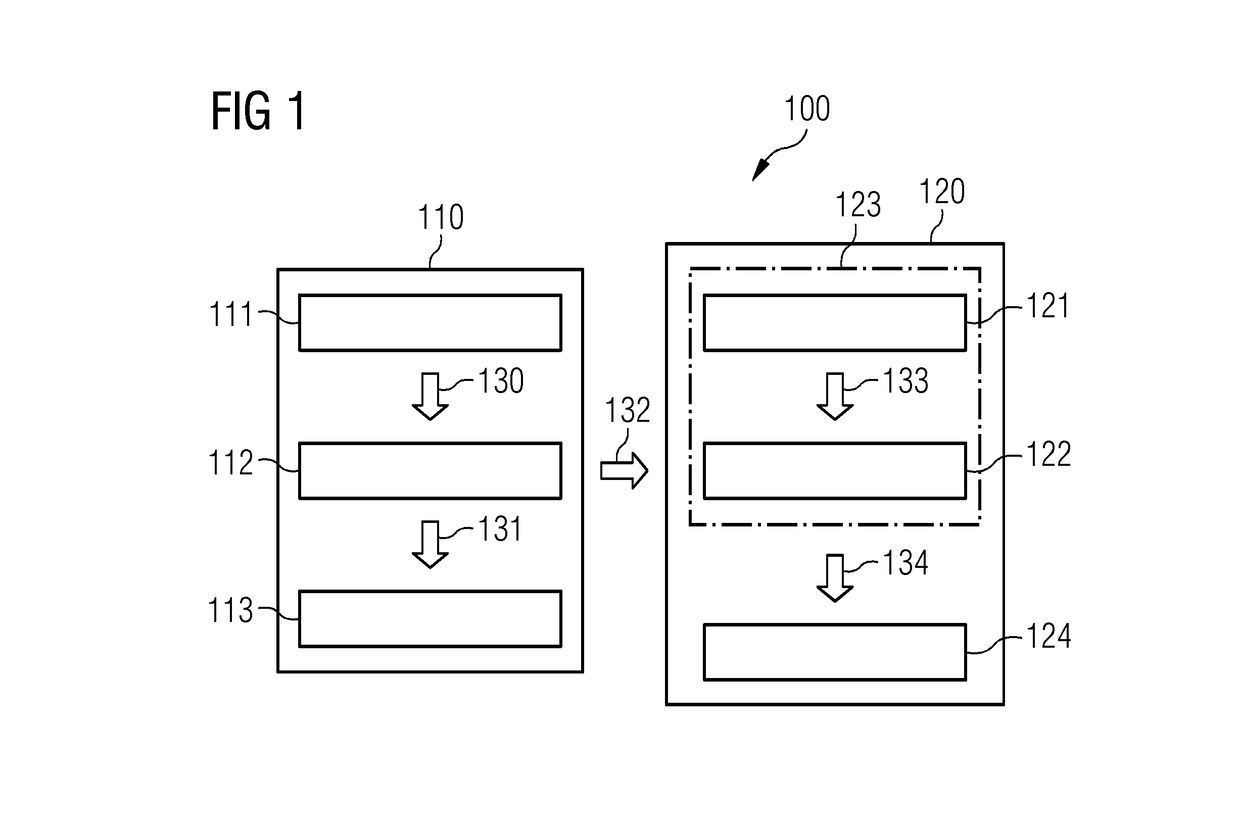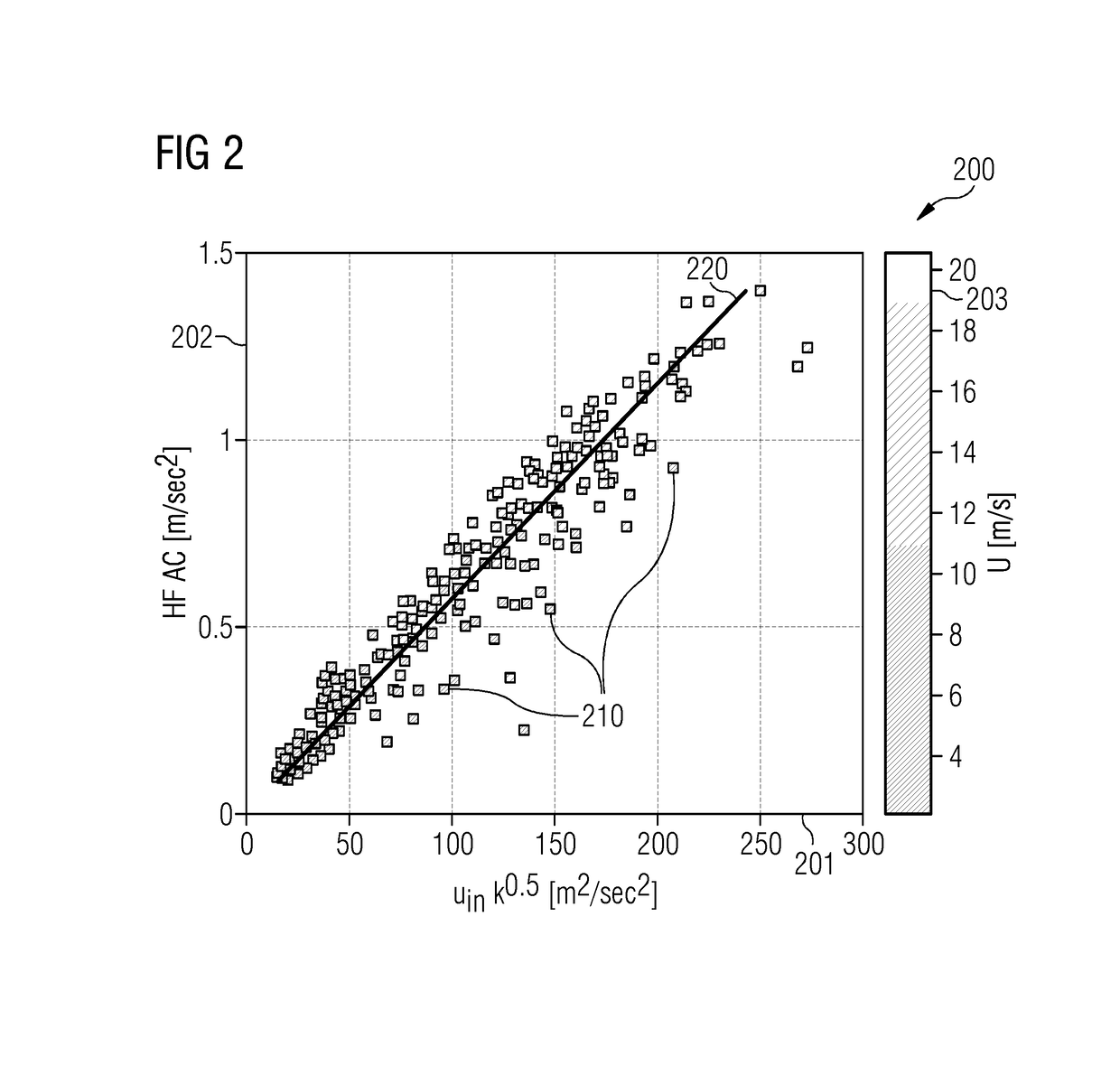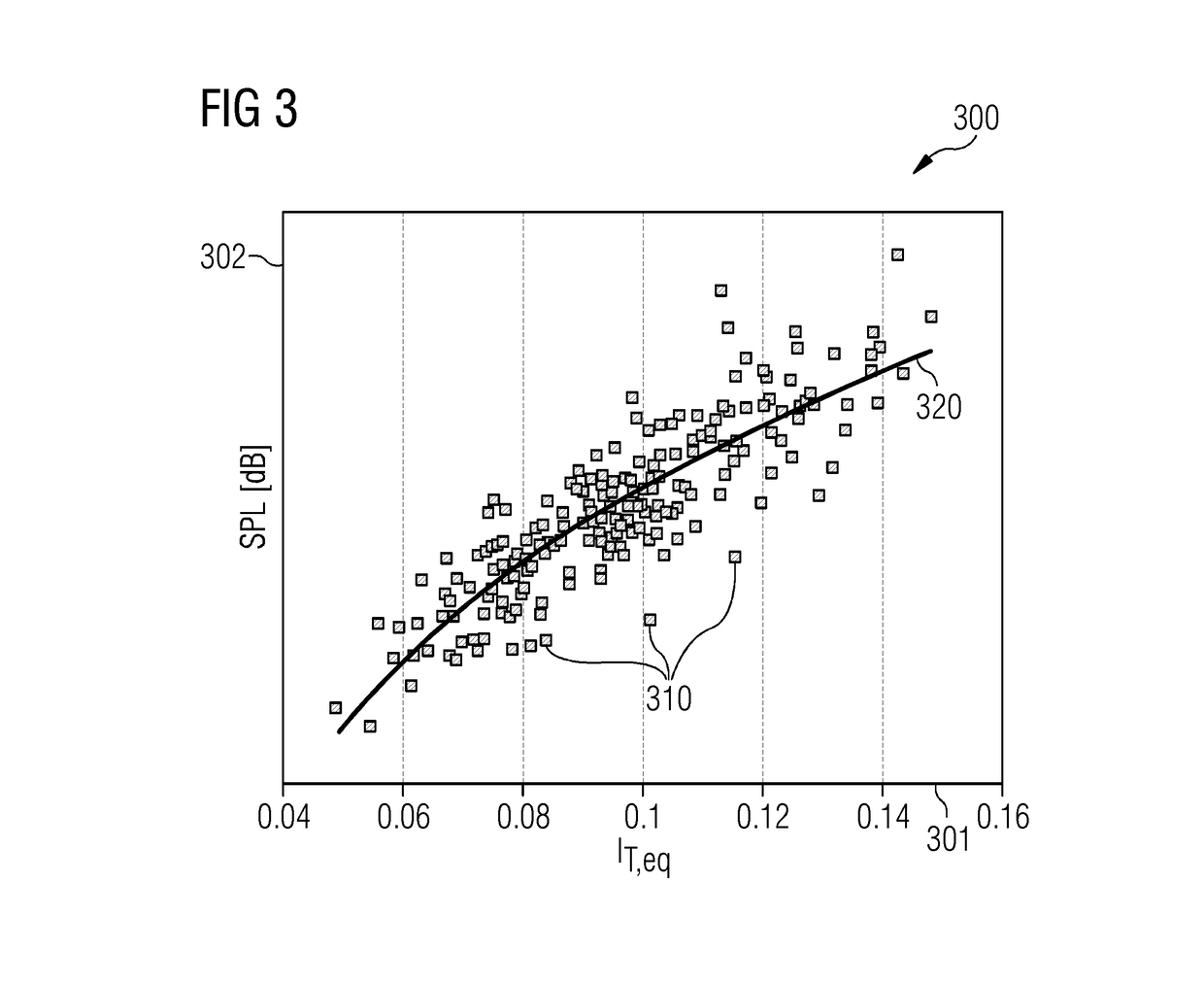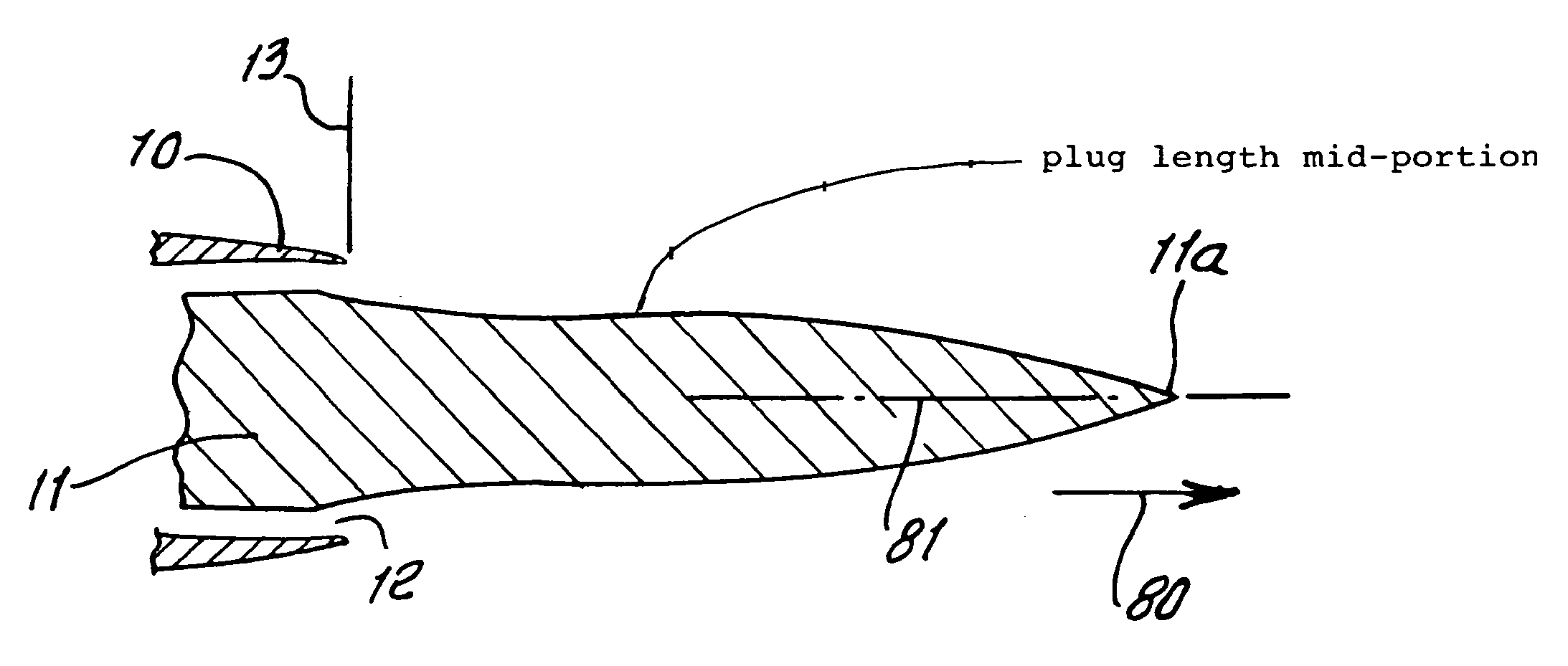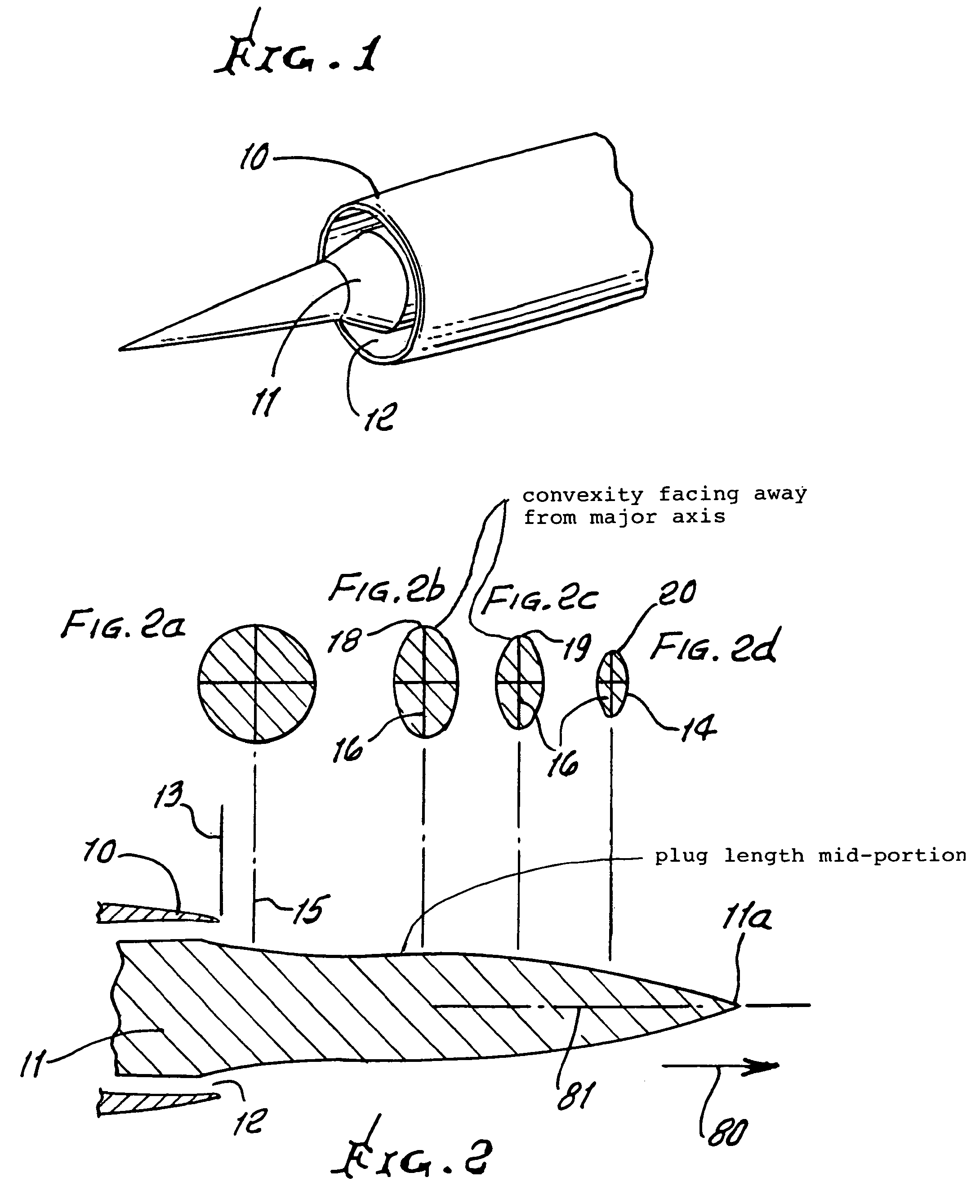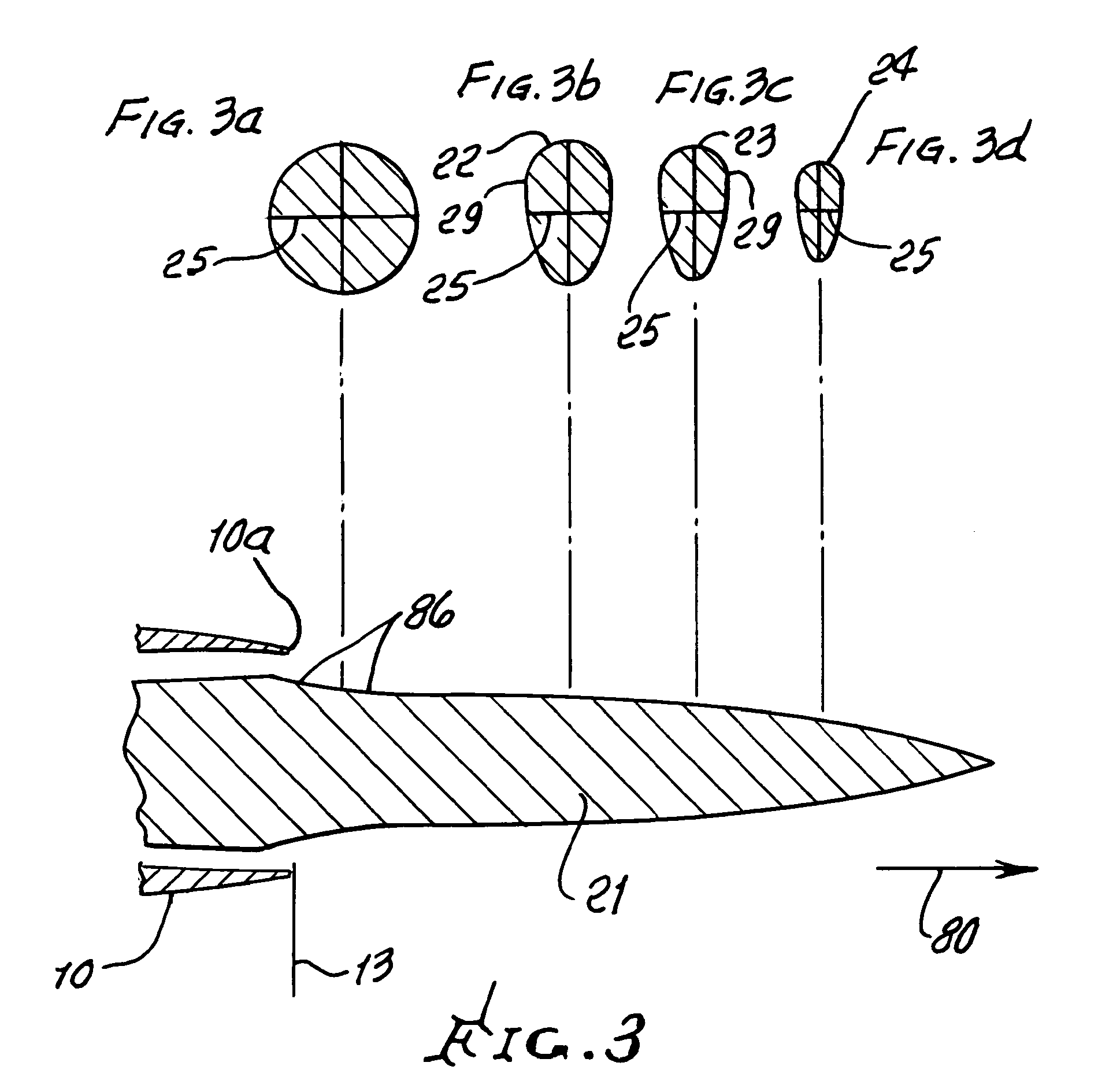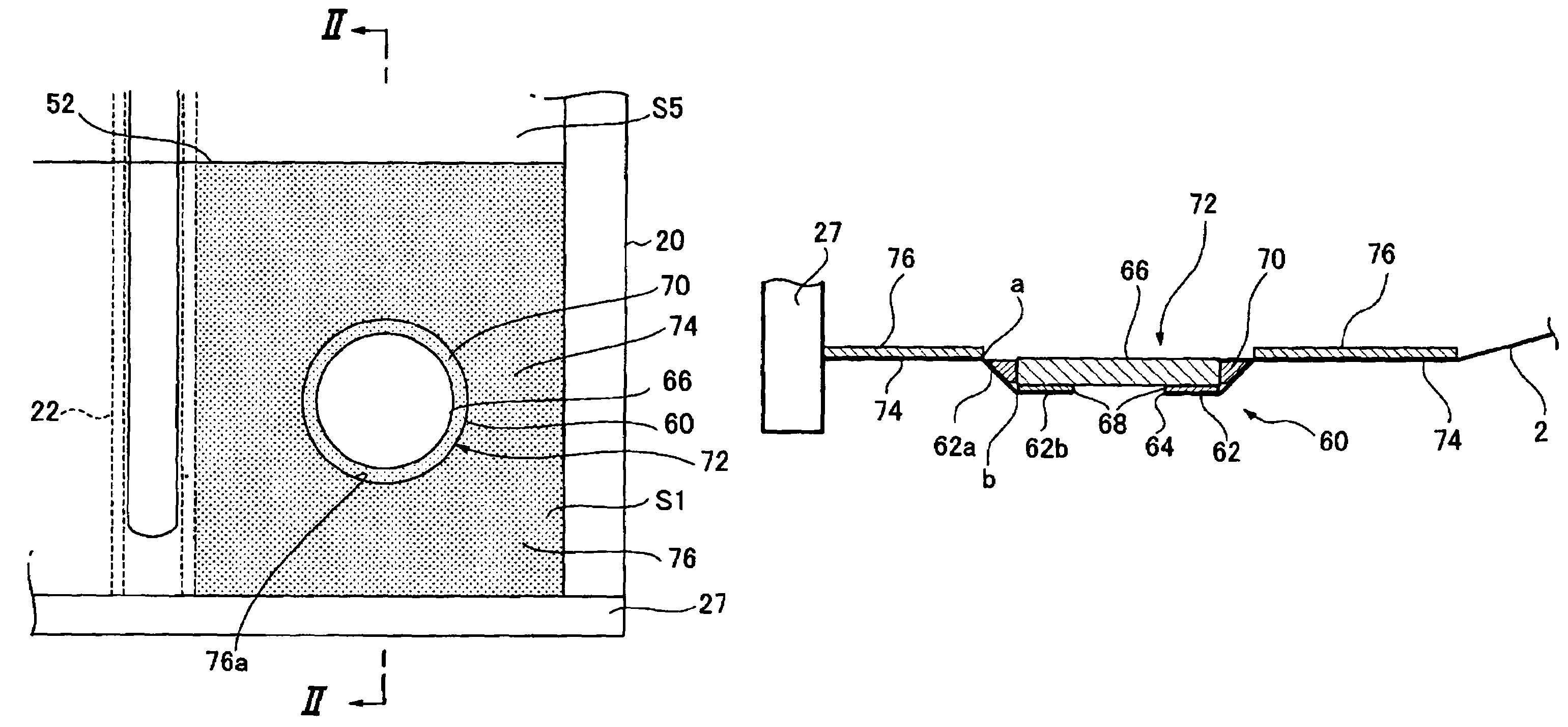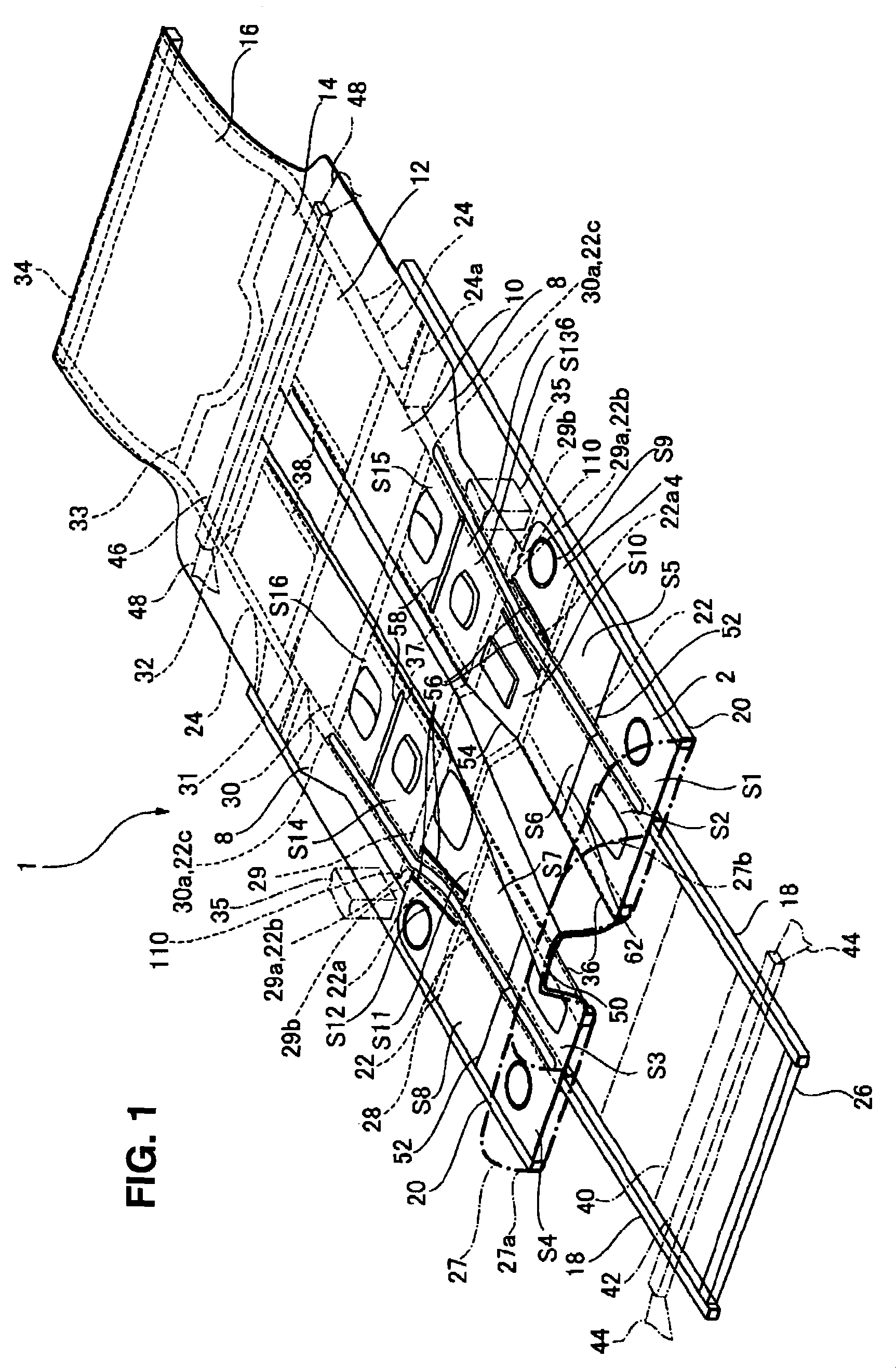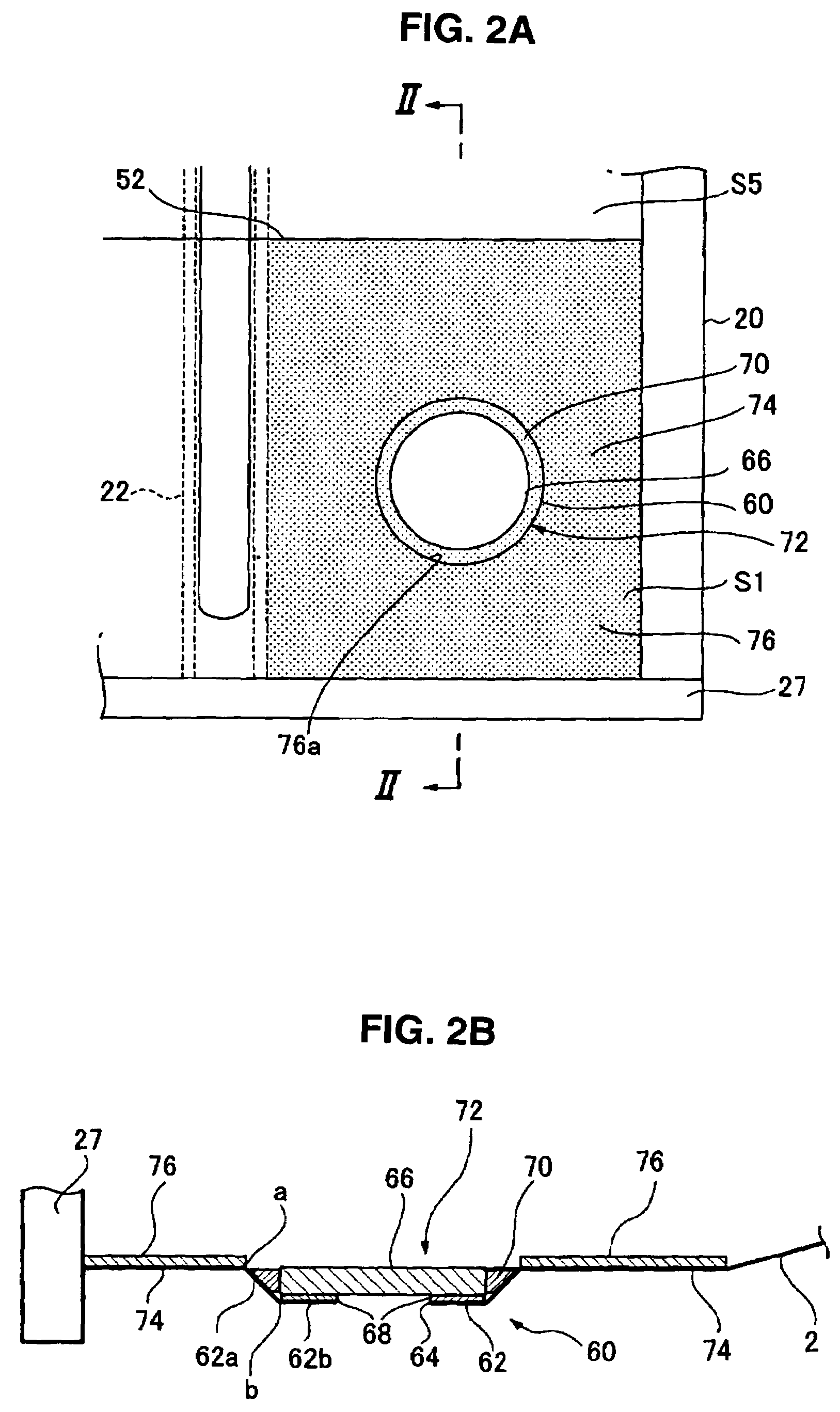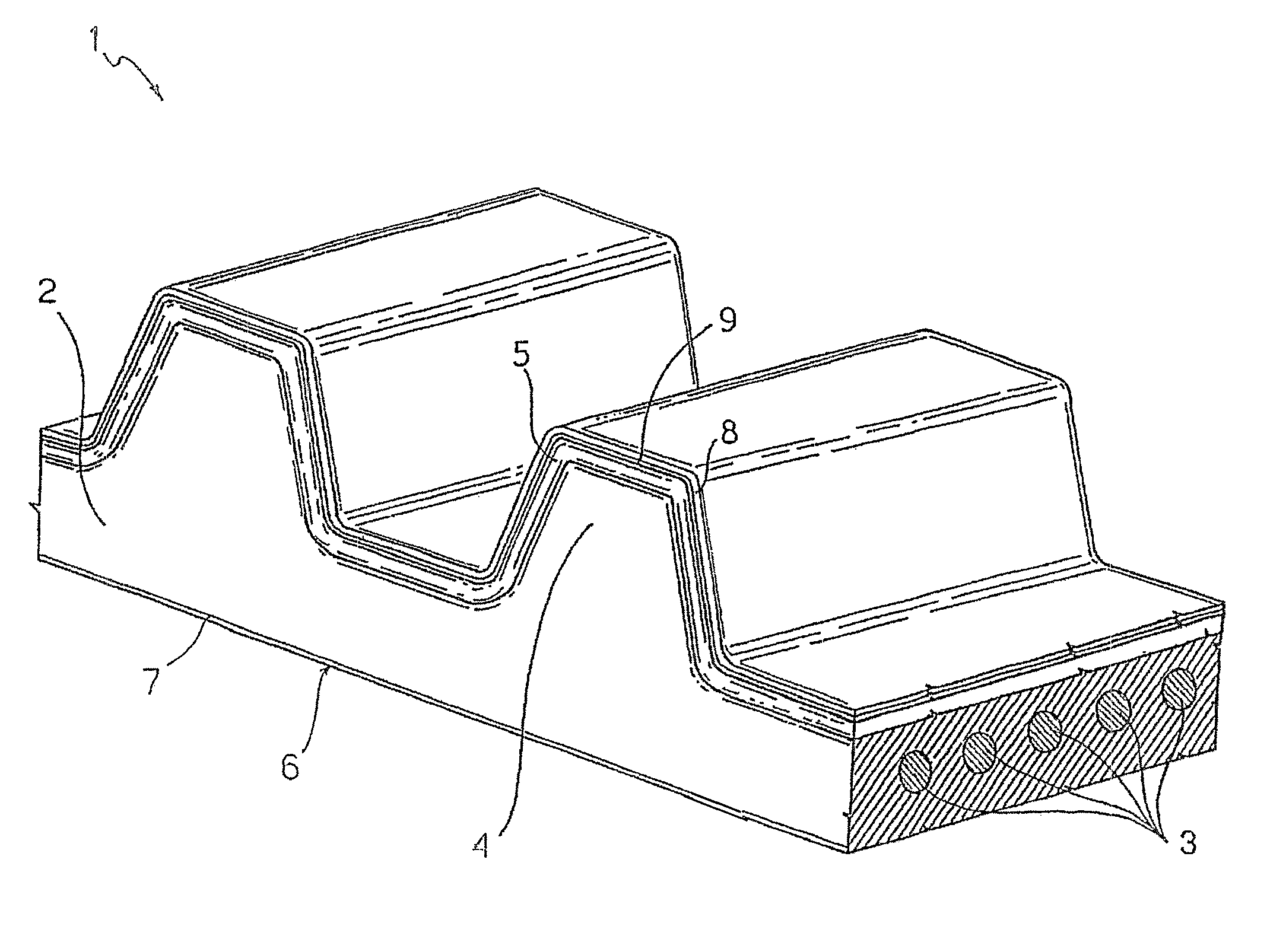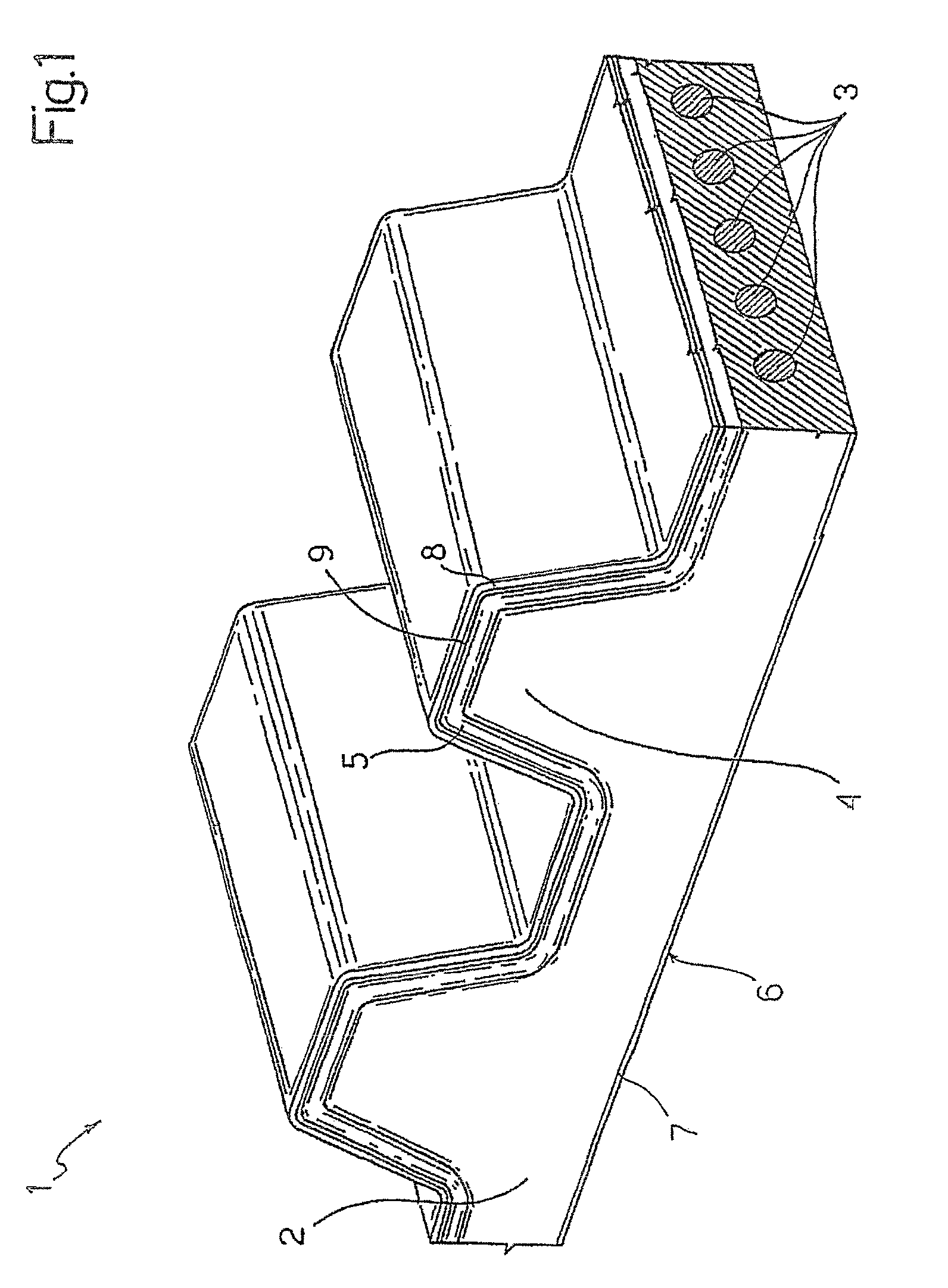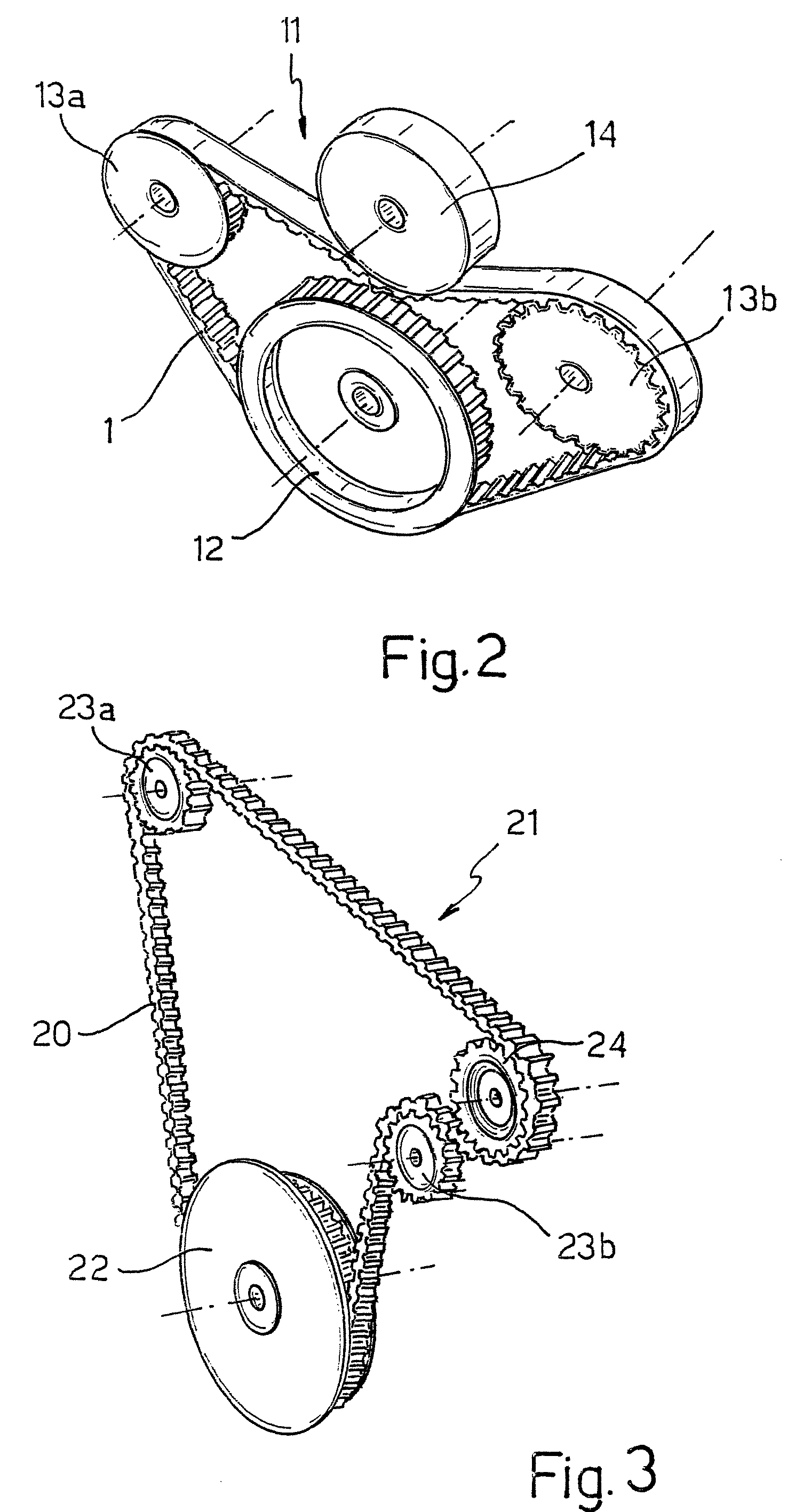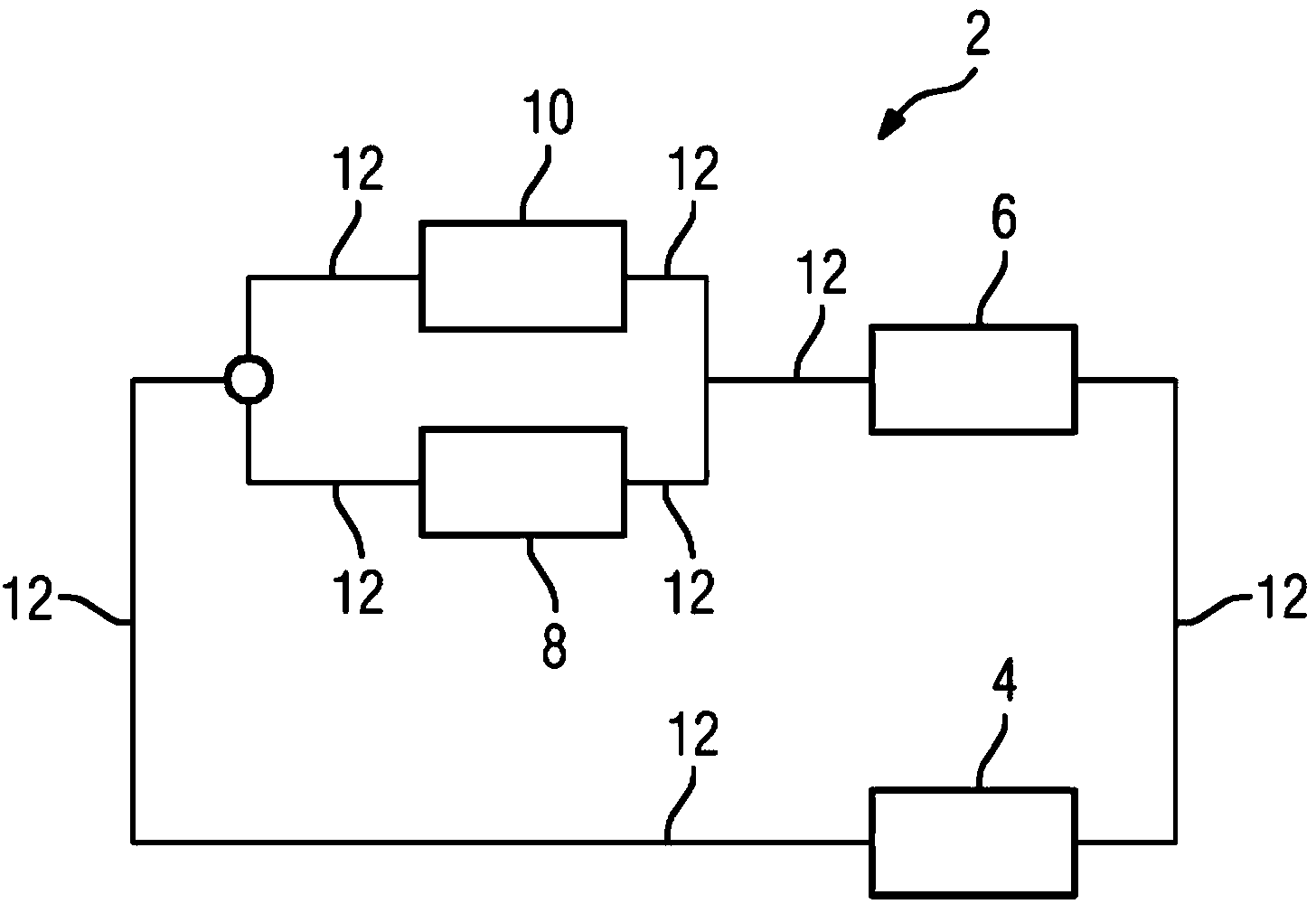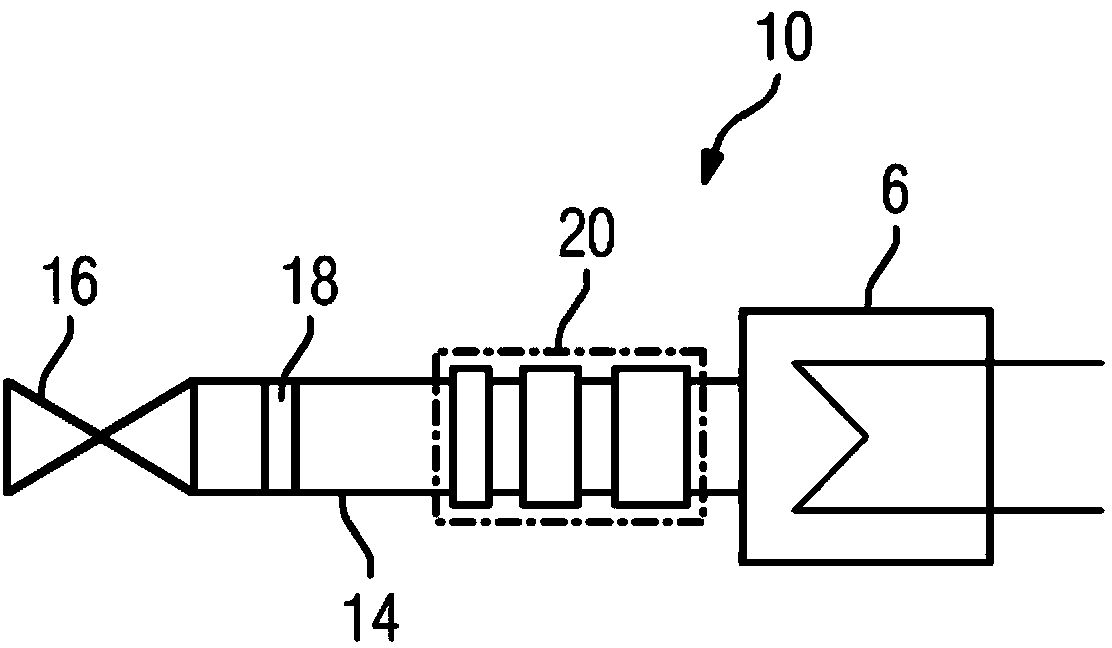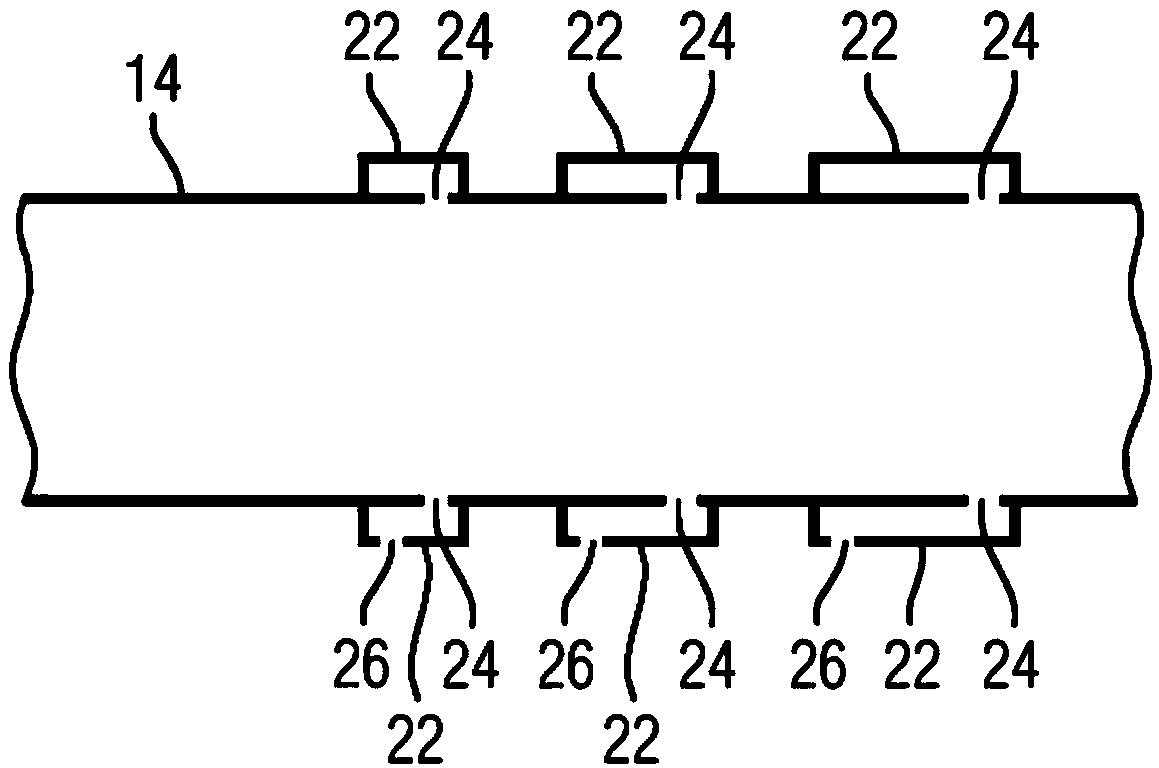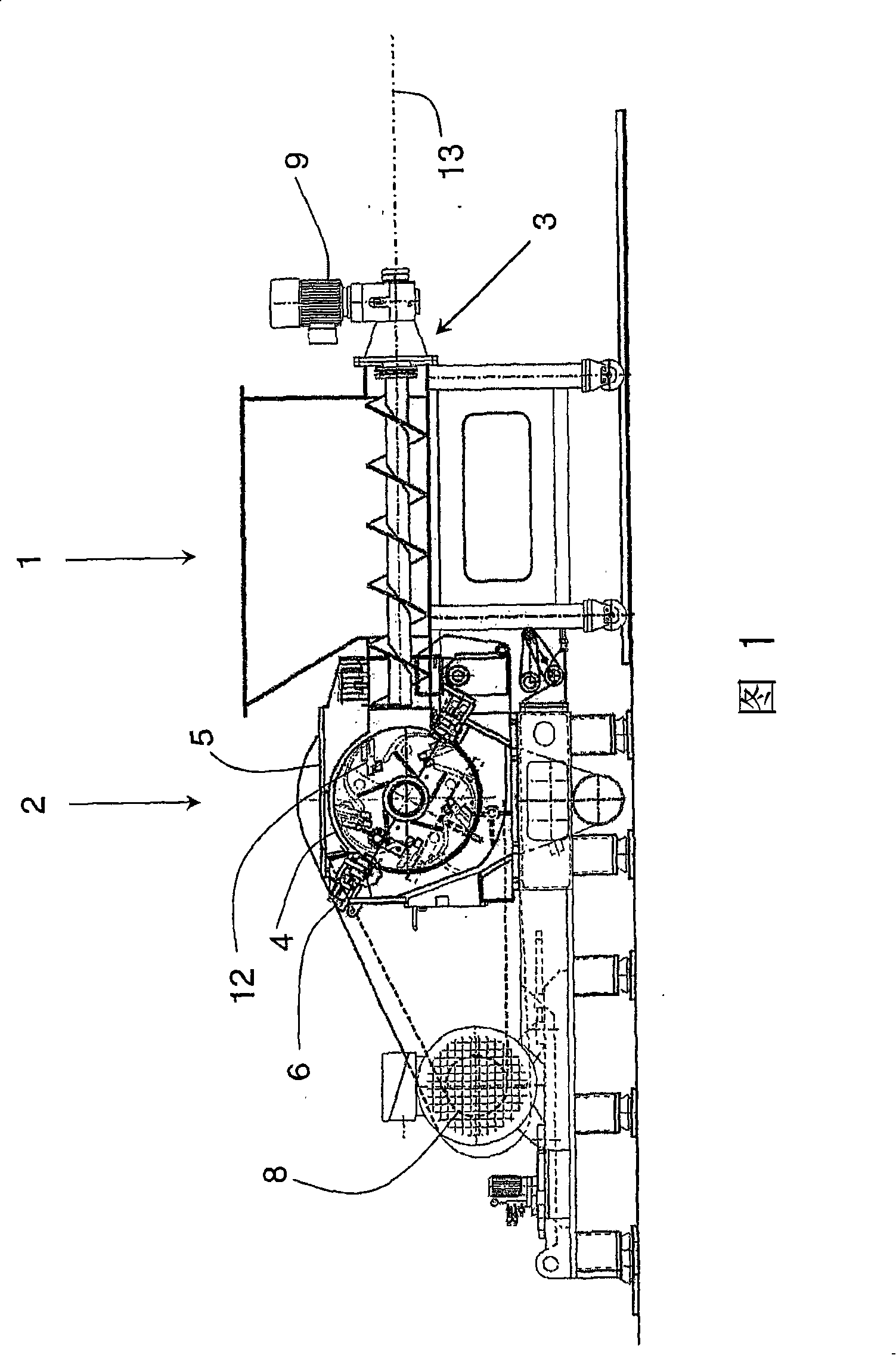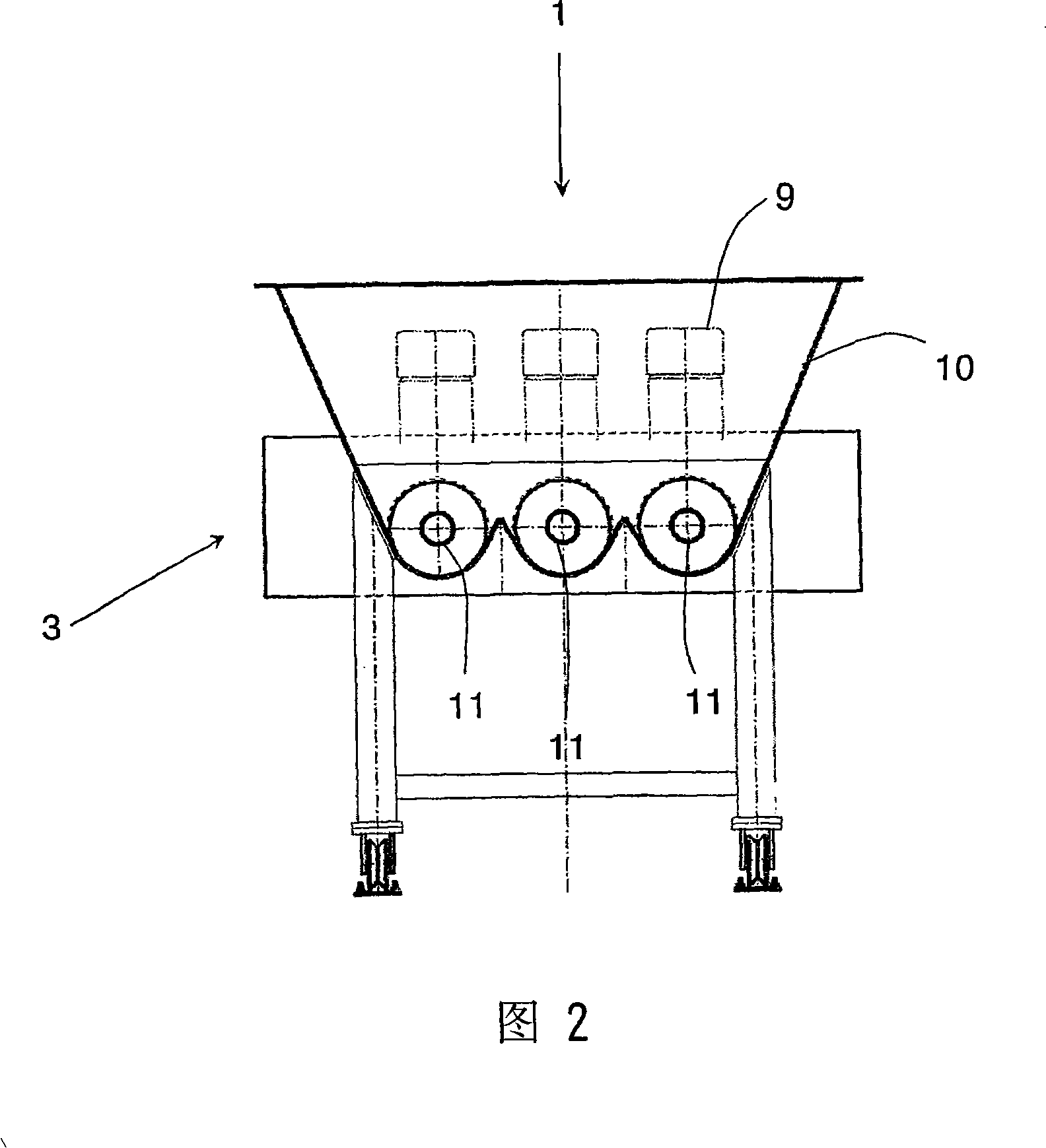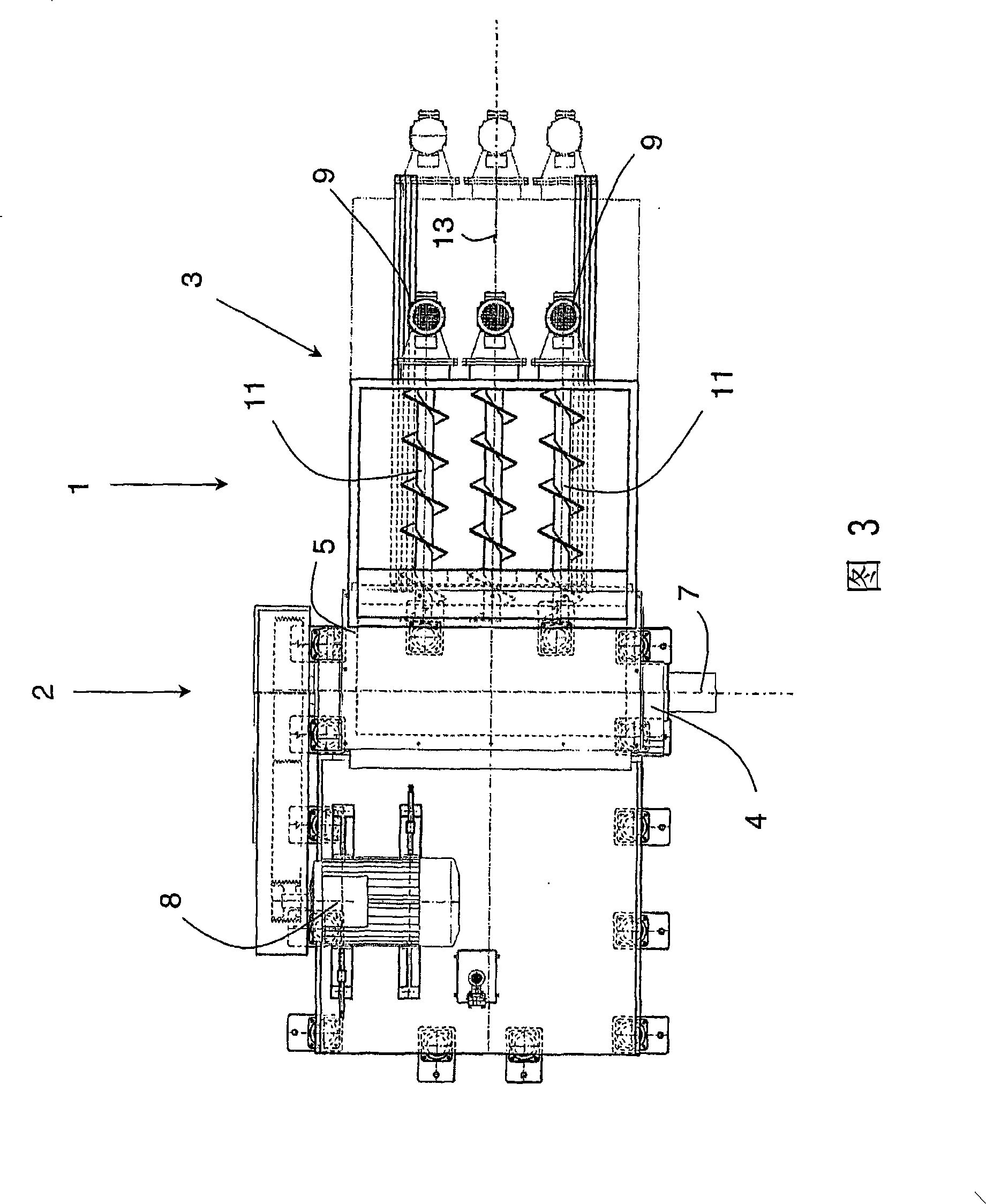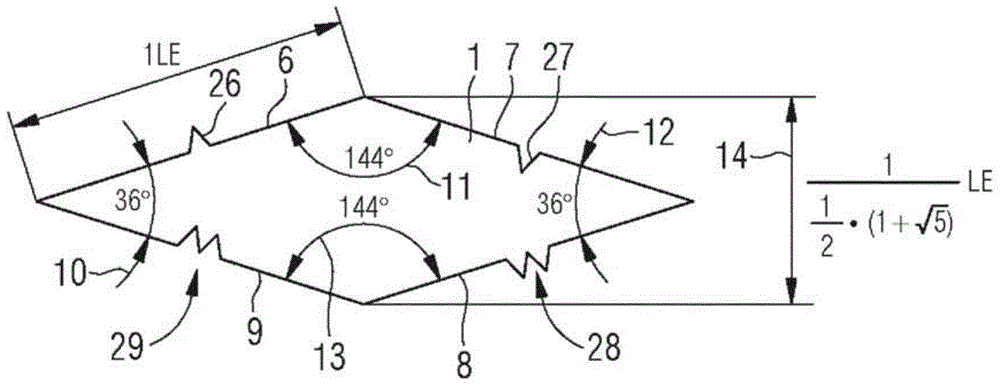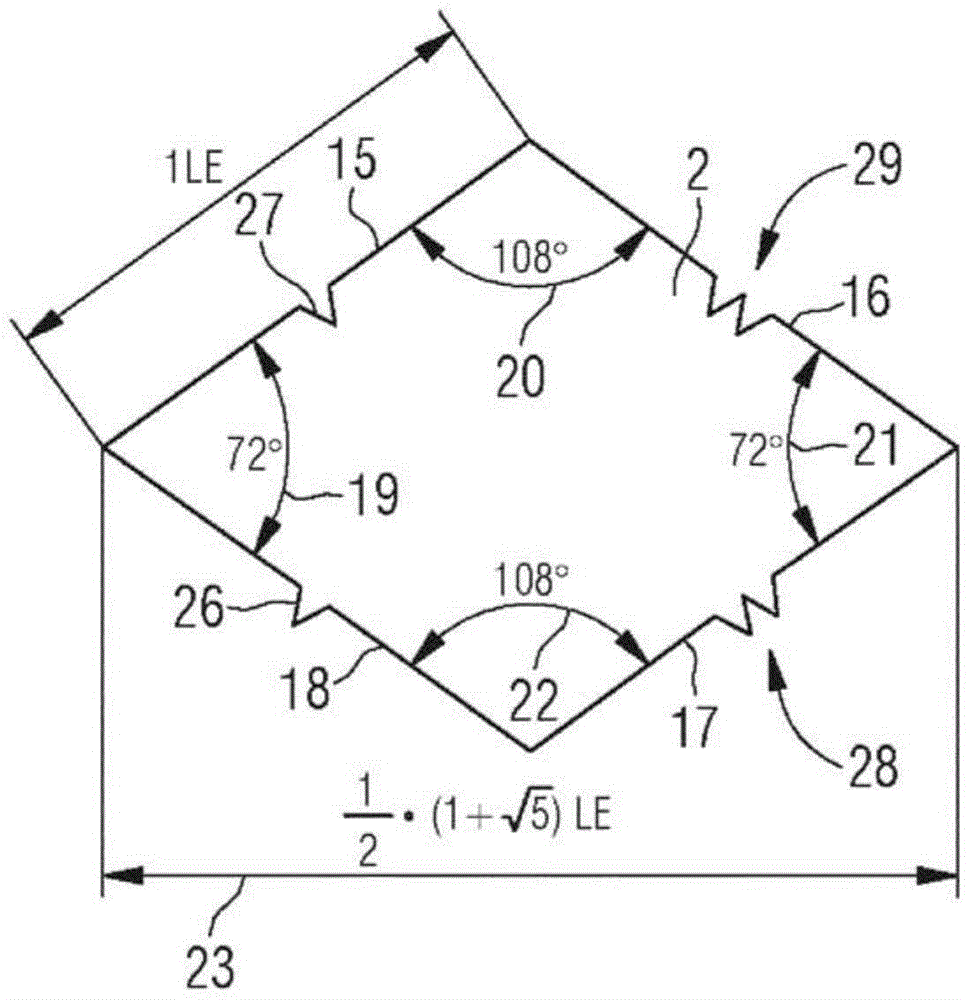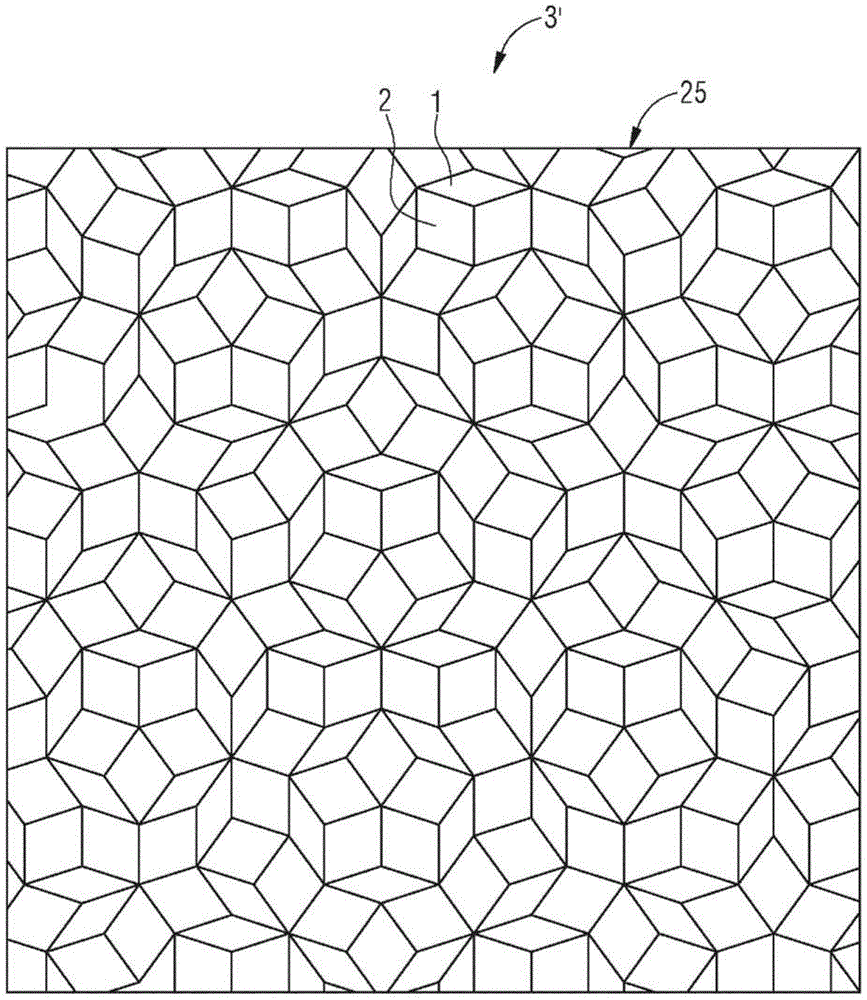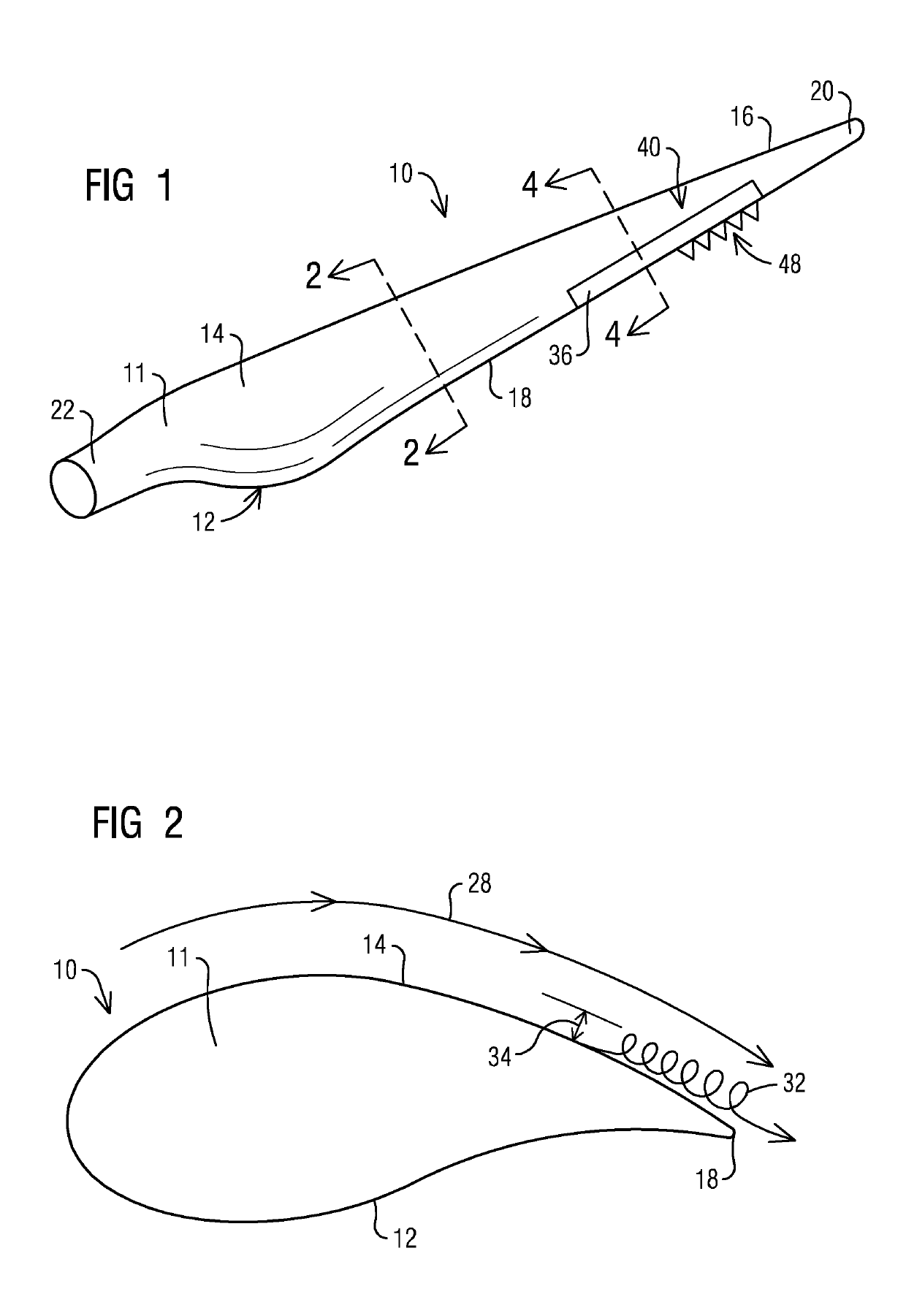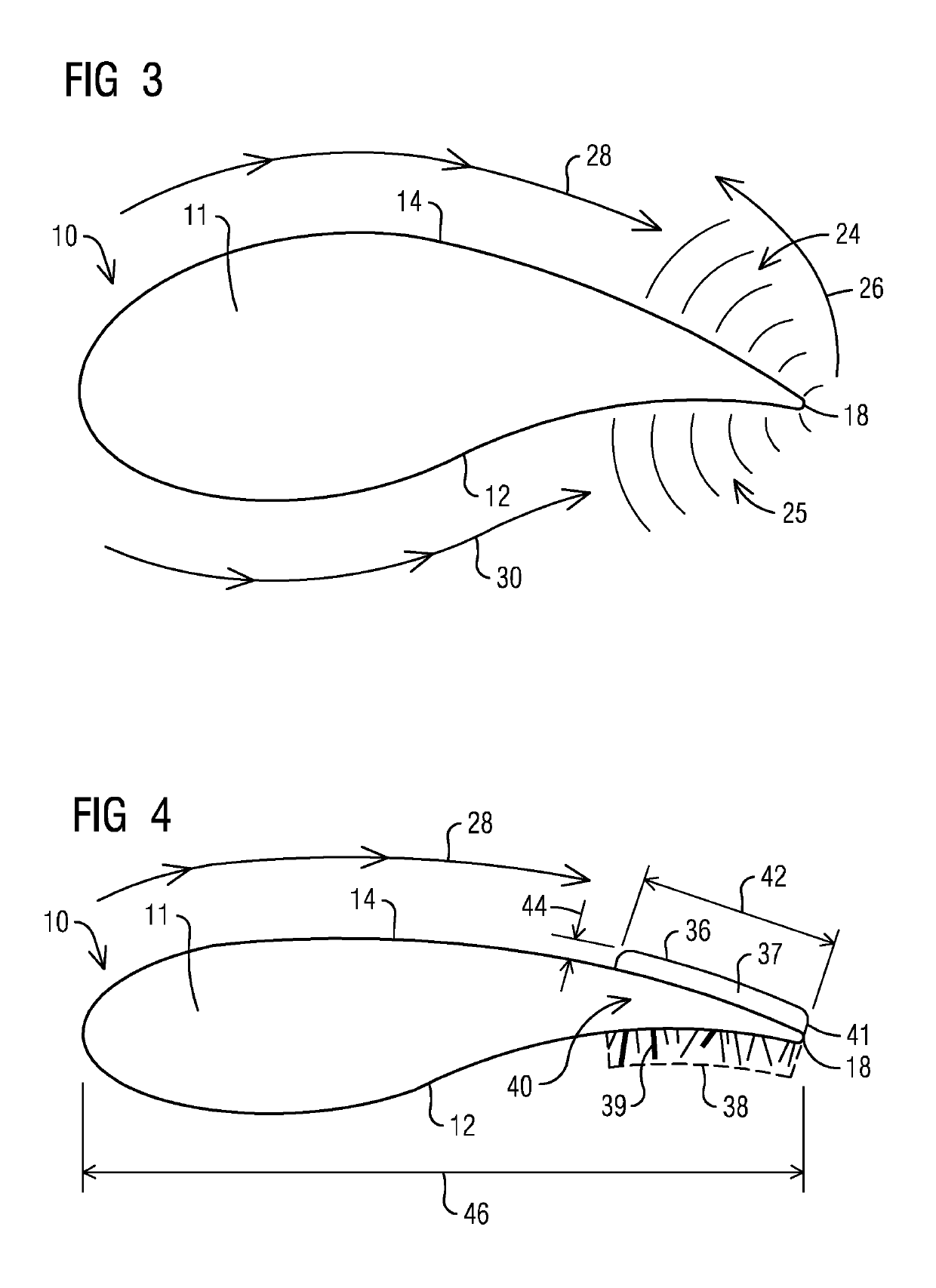Patents
Literature
34results about How to "Acoustic emission reduction" patented technology
Efficacy Topic
Property
Owner
Technical Advancement
Application Domain
Technology Topic
Technology Field Word
Patent Country/Region
Patent Type
Patent Status
Application Year
Inventor
Method and system for operating a wind turbine generator
ActiveUS20100098541A1Reduce acoustic emissionIncreased electrical powerPropellersPump componentsWind forceAerospace engineering
A method of operating a wind turbine generator having at least one wind turbine blade includes increasing a pitch angle of the at least one wind turbine blade as the at least one wind turbine blade rotates through a first range of blade azimuth values. Such increasing of the pitch angle reduces acoustic emissions generated by the wind turbine generator. The method also includes decreasing the pitch angle of the at least one wind turbine blade as the at least one wind turbine blade rotates through a second range of blade azimuth values. Such decreasing of the pitch angle increases electric power generated by the wind turbine generator.
Owner:GENERAL ELECTRIC CO
Integrated mass air flow sensor and broadband silencer
InactiveUS20070292816A1Reduce intensityAcoustic emission reductionElectrical controlExhaust apparatusInterior spaceAcoustic foam
An integrated mass air flow sensor / broadband silencer assembly comprises a molded body having a plurality of walls formed therein. The molded body is over-wrapped with a layer of acoustic foam that, together with the plurality of walls, define a plurality of chambers within an interior volume of the assembly. A mass air flow sensor can be inserted into one of the chambers. The chambers are sized and spaced to provide a uniform velocity, low turbulence air flow to the sensor, and a minimally-restricted air flow to an internal combustion engine located downstream of the assembly.
Owner:MANN HUMMEL GMBH
Centrifugal blower for air handling equipment
InactiveUS7591633B2Improve blower efficiencyAcoustic emission reductionPump componentsStatorsImpellerAirflow
An air handling blower for HVAC equipment includes a blower housing adapted to accommodate centrifugal impellers of selected inside and outside diameters of the impeller blades wherein the inside diameter of the largest diameter impeller accommodated by the housing is not less than the outside diameter of the smallest diameter impeller accommodated by the housing without loss of performance. The blower housing preferably has a continuously increasing cross-sectional airflow area for air being discharged from the blower and extending from a cutoff edge to an outlet.
Owner:TRANE INT INC
Disk drive having airflow adjusting mechanism and thin-plate member incorporated therein
InactiveUS7072140B2Acoustic emission reductionApparatus for flat record carriersUndesired vibrations/sounds insulation/absorptionThin slabEngineering
A disk drive 10 includes a thin-plate member 38 fixedly attached at a desired location to an inner wall surface 36 defining a recess 24 of a casing 12. The thin-plate member 38 includes a substrate layer having a major side on which a plurality of minute protrusions are formed and an adhesive layer attached fixedly on the back side of the substrate layer. The thin-plate member 38 is fixedly attached on the inner wall surface 36 of the casing 12 through the adhesive layer with the minute protrusions being exposed to the recess 24 of the casing 12. The thin-plate member 38 has a flexibility permitting it to follow the shape of the inner wall surface 36 of the casing 12. The thin-plate member 38 reduces an interfacial friction caused between the inner wall surface 36 of the casing and the airflow generated around the storage disk 16 in rotation.
Owner:3M INNOVATIVE PROPERTIES CO
Filter housing for a domestic appliance
InactiveUS7721385B2Equally distributedExtension of timeCleaning filter meansAuxillary pretreatmentAcoustic emissionWaste management
A filter housing includes an inlet for receiving an airflow, a cavity for receiving a filter and an airflow passage between the inlet and the cavity. At least one vane, positioned in the airflow passage, partitions the airflow passage into a plurality of ducts. The vanes lie adjacent to, or contact, the upstream surface of the filter such that each duct communicates with a separate portion of the upstream surface of the filter. The airflow passage extends in a direction which is inclined to the upstream surface of the filter. The vanes help to distribute the flow of air more evenly across the surface of the filter and also help to reduce acoustic emissions from the machine of which the filter housing forms a part.
Owner:DYSON TECH LTD
Apparatus and method for drying containers for beverages
InactiveUS20090178296A1Delivery pressureReduce transmission rateDrying using combination processesDrying solid materials without heatAirflowNozzle
An apparatus and a method for drying articles are disclosed. The apparatus includes a closed housing with at least one chamber equipped with air nozzles. The apparatus has an inlet opening and an outlet opening for the articles to be dried. An inner routing of air flow inside the housing generates a defined removal of air to the at least one air outlet opening. The inner routing of air flow is designed such that a flow of air is directed past the inlet opening and / or the outlet opening for the articles to be dried.
Owner:KRONES AG
Method and system for operating a wind turbine generator
ActiveUS7988414B2Increasing a pitch angleDecreasing pitch anglePropellersWind motor controlAcoustic emissionTurbine blade
A method of operating a wind turbine generator having at least one wind turbine blade includes increasing a pitch angle of the at least one wind turbine blade as the at least one wind turbine blade rotates through a first range of blade azimuth values. Such increasing of the pitch angle reduces acoustic emissions generated by the wind turbine generator. The method also includes decreasing the pitch angle of the at least one wind turbine blade as the at least one wind turbine blade rotates through a second range of blade azimuth values. Such decreasing of the pitch angle increases electric power generated by the wind turbine generator.
Owner:GE INFRASTRUCTURE TECH INT LLC
Floor panel structure of vehicle body
InactiveUS20050285432A1Reduce vibrational energyAcoustic emission reductionVehicle seatsSuperstructure subunitsAcoustic emissionEngineering
In a floor panel structure of a vehicle body in which a floor of an automotive vehicle is formed by a floor panel coupled to a plurality of frame members extending in substantially longitudinal and width directions of the vehicle, there are provided a panel area formed by being enclosed at least by the frame members, a heavy-weight area located at a substantially central portion of the panel area, and a peripheral area located substantially around the heavy-weight area, wherein the heavy-weight area is configured so as to be heavier than the peripheral area. Accordingly, the vibration energy transmitted from the frame members to the floor panel can be reduced and thereby the acoustic emission generated from the floor panel can be reduced.
Owner:MAZDA MOTOR CORP
Augmented propulsion system with boundary layer suction and wake blowing
ActiveUS9587585B1Improve performanceImprove efficiencyAircraft navigation controlBoundary layer controlsJet engineTrailing edge
A system to improve jet engine powered aircraft performance and efficiency includes a jet engine having a pressurized air port configured to convey a pressurized airflow from a compressor or a bypass fan disposed in the jet engine. A primary airfoil has a trailing edge, a top surface, and a boundary region. The system further includes a secondary airfoil disposed at a distance from the top surface of the primary airfoil. The secondary airfoil has a bottom surface and a trailing edge. An exhaust region is formed by the trailing edge of the primary airfoil and the trailing edge of the secondary airfoil. A primary airfoil ejector port and a secondary airfoil ejector port are pneumatically coupled to the pressurized air port. The primary airfoil ejector port is disposed proximate the boundary region and the secondary airfoil ejector port is disposed on the bottom surface.
Owner:THE UNITED STATES OF AMERICA AS REPRESETNED BY THE SEC OF THE AIR FORCE
Tomography apparatus with an annular airflow channel with an air-diverting ventilation element
InactiveUS20100322374A1Acoustic emission reductionAcoustic emissions during operationMaterial analysis using wave/particle radiationRadiation/particle handlingAcoustic emissionCooling effect
A tomography apparatus has an annular channel and at least one ventilation element for the purpose of drawing off an air current flowing through the annular channel. The ventilation element contains an intake window that is located in the annular channel for the purpose of drawing off at least a portion of the air current. In order to obtain an even flow profile at an output window of the ventilation element, the intake window has a greater effective intake cross-section at both sides than at the middle. By such evening the flow profile at the output window, turbulence and air current interruptions of the air can be generally avoided, such that when operating the tomography apparatus, disrupting acoustic emissions may be reduced, or a higher air flow and thereby a greater cooling effect may be obtained.
Owner:SIEMENS AG
Operating a wind turbine
ActiveUS20170175714A1Improve the level ofMaximize power outputWind motor controlEngine fuctionsTurbineWind force
A method is proposed for operating a wind turbine, including the following steps: deriving at least one turbulence characteristic of atmosphere hitting the wind turbine, determining at least one wind turbine specific parameter based on the at least one derived turbulence characteristic, and operating the wind turbine according to the at least one determined turbine specific parameter is provided. Further, a wind turbine and a device as well as a computer program product and a computer readable medium are also provided.
Owner:SIEMENS GAMESA RENEWABLE ENERGY AS
Two-point control of a high-pressure pump for direct-injecting gasoline engines
InactiveUS7536997B2Limitation on frequencyAcoustic emission reductionDigital data processing detailsAutomatic initiationsDrive shaftAcoustic emission
In a method for operating an internal combustion engine (10) equipped with a piston pump as a high-pressure pump (18), which is driven by a drive shaft (28) of the engine (10), in which the high-pressure pump (18) delivers fuel from a low-pressure region (16) to a high-pressure side (38) and a quantity control valve (44) sets the quantity of fuel delivered by the high-pressure pump (18), the acoustic emission of the high-pressure pump is reduced by virtue of the fact that the high-pressure pump (18) functions in a two-point operation, alternating between full delivery for individual or successive piston strokes and idle delivery for individual or successive piston strokes and, when the pressure falls below a lower pressure threshold, the full delivery is activated until an upper pressure threshold is reached.
Owner:AGFA INC +1
Jet nozzle plug with varying, non-circular cross sections
ActiveUS20100139284A1Acoustic emission reductionAircraft navigation controlPower plant exhaust arrangementsPlug nozzleExit plane
In a jet engine having a plug nozzle and a plug extending rearwardly from the nozzle exit, the improvement comprising a plug having successive cross sections spaced apart rearwardly of the nozzle exit, the cross sections transitioning from circular or near circular at the exit plane defined at the nozzle exit, to progressively non-circular, rearwardly.
Owner:AERION INTPROP MANAGEMENT CORP
Noise reducer for a wind turbine blade
ActiveUS20170107971A1Reduce noiseAcoustic emission reductionEngine fuctionsMachines/enginesLeading edgeSuction stress
A noise reducing wind turbine blade is disclosed. The wind turbine blade includes a blade body having a leading edge, a trailing edge, a suction side, and a pressure side. The wind turbine blade further includes a noise reducer disposed on a portion of the blade body extending partially upstream from the trailing edge for modifying airflow over the blade body effective to reduce acoustic emission.
Owner:SIEMENS GAMESA RENEWABLE ENERGY AS
Performance of permanently installed tubing conveyed seismic arrays using passive acoustic absorbers
InactiveUS20100230093A1Reduce the impactReduce impactSurveyCleaning apparatusEngineeringProduction tubing
Methods and apparatus for reducing the impact of guided (or “tube”) waves in permanently installed seismic systems are provided. By utilizing passive acoustic absorbers, the impact of tube waves may be reduced, leading to improved performance of permanently installed seismic systems that are installed onto production tubing when the well is completed.
Owner:WEATHERFORD TECH HLDG LLC
Device for comminuting all types of parts
The invention relates to a device for comminuting all types of parts, in particular plastics, preferably hollow plastic bodies, such as for example plastic bottles. Said device comprises a feeding device (1), and a comminuting unit (2), the feeding device having at least one transport unit (3) and the comminuting unit (2) having a rotor (4), which is provided with tools and rotates in a housing (5). The device is characterised in that the transport unit (3) transports the parts at an angle of between 45 DEG and 90 DEG to the rotor axis (7), at least in the region lying directly in front of the rotor (4).
Owner:赫波德梅克斯海姆有限公司
Automotive floor panel structure
InactiveCN1583489AReduce noise2×1 mode vibration is reliableUnderstructuresSuperstructure subunitsVibration amplitudeVehicle frame
The present invention is a floor panel structure of a car body where an automobile floor comprises a floor panel that is connected to the frame members of the car body and also has a vibration mode adjusting structure that suppresses the generation of acoustic emission by generating 2x1 mode vibration in a predetermined frequency band. The floor panel has a non-rectangular vibration region and the vibration mode adjusting structure of the floor panels the vibration mode adjusting structure of the floor panel comprises a vibration adjusting part that defines the vibration distribution and vibration amplitude of the antinodes of 2x 1 mode vibration, and the vibration adjusting part is disposed within the a non-rectangular vibration region so as to make the vibration volumes of two antinodes of vibration in 2x1 mode nearly the same.
Owner:MAZDA MOTOR CORP
Electrical machine comprising radial cooling slots, and wind power generation facility
InactiveCN108141066AImprove cooling effectReduce friction lossMagnetic circuit rotating partsMagnetic circuit stationary partsElectric machineEngineering
The invention relates to an electrical machine (1) comprising a first active part (2) and a second active part (3), both the first active part (2) and the second active part (3) having a plurality oflaminated sub-cores (5) and each laminated sub-core (5) having a plurality of individual laminations (6), each comprising an axial width (b). The laminated sub-cores (5) are mutually spaced in an axial direction (a) such that a respective radial cooling slot (7, 8', 8'') is formed between two adjacent laminated sub-cores (5). The radial cooling slots (7) in the first active part (2) are offset inthe axial direction (a) in relation to one another in comparison to the radial cooling slots (8', 8'') in the second active part (3), and the sum of the axial widths (b) of all individual laminations(6) in the first active part (2) corresponds to the sum of the axial widths (b) of all individual laminations (6) in the second active part (3).
Owner:FLENDER GMBH
Automotive floor panel structure
InactiveCN1583490AAcoustic emission reductionReduce noiseUnderstructuresSuperstructure subunitsVehicle frameAcoustic emission
The present invention discloses a floor panel structure of a vehicle body, wherein the automobile floor includes a floor panel connected to a frame element of a vehicle body and also has a vibration mode adjustment structure capable of producing a 2×1 vibration mode within a predetermined frequency band. mode vibration to suppress the generation of acoustic emission. The floor panel has a non-rectangular vibration area, and the vibration mode adjustment structure of the floor panel has a vibration adjustment member defining a position of a node of 2×1 mode vibration, and the vibration adjustment member is disposed in the above-mentioned non-rectangular vibration area , so as not to be in contact with the frame member, and to form two areas where the vibration amounts of the two antinodes vibrating in the 2×1 mode are almost the same.
Owner:MAZDA MOTOR CORP
Tomography apparatus with an annular airflow channel with an air-diverting ventilation element
InactiveUS8197136B2Acoustic emissions during operationAir cooled tomography apparatus are further reducedMaterial analysis using wave/particle radiationRadiation/particle handlingAcoustic emissionCooling effect
A tomography apparatus has an annular channel and at least one ventilation element for the purpose of drawing off an air current flowing through the annular channel. The ventilation element contains an intake window that is located in the annular channel for the purpose of drawing off at least a portion of the air current. In order to obtain an even flow profile at an output window of the ventilation element, the intake window has a greater effective intake cross-section at both sides than at the middle. By such evening the flow profile at the output window, turbulence and air current interruptions of the air can be generally avoided, such that when operating the tomography apparatus, disrupting acoustic emissions may be reduced, or a higher air flow and thereby a greater cooling effect may be obtained.
Owner:SIEMENS AG
Integrated mass air flow sensor and broadband silencer
InactiveUS8360199B2Acoustic emission reductionCompact designElectrical controlExhaust apparatusInterior spaceAcoustic foam
An integrated mass air flow sensor / broadband silencer assembly comprises a molded body having a plurality of walls formed therein. The molded body is over-wrapped with a layer of acoustic foam that, together with the plurality of walls, define a plurality of chambers within an interior volume of the assembly. A mass air flow sensor can be inserted into one of the chambers. The chambers are sized and spaced to provide a uniform velocity, low turbulence air flow to the sensor, and a minimally-restricted air flow to an internal combustion engine located downstream of the assembly.
Owner:MANN HUMMEL GMBH
Operating a wind turbine by reducing an acoustic emission during operation
ActiveUS10233907B2Acoustic emission reductionImprove approachWind motor controlSimulator controlAcoustic emissionTurbine
A method is proposed for operating a wind turbine, including the following steps: deriving at least one turbulence characteristic of atmosphere hitting the wind turbine, determining at least one wind turbine specific parameter based on the at least one derived turbulence characteristic, and operating the wind turbine according to the at least one determined turbine specific parameter is provided. Further, a wind turbine and a device as well as a computer program product and a computer readable medium are also provided.
Owner:SIEMENS GAMESA RENEWABLE ENERGY AS
Jet nozzle plug with varying, non-circular cross sections
ActiveUS8371124B2Acoustic emission reductionAircraft navigation controlPower plant exhaust arrangementsExit planeJet engine
Owner:AERION INTPROP MANAGEMENT CORP
Floor panel structure of vehicle body
InactiveUS7243984B2Reduce vibrational energyAcoustic emission reductionVehicle seatsSuperstructure subunitsMobile vehicleAcoustic emission
In a floor panel structure of a vehicle body in which a floor of an automotive vehicle is formed by a floor panel coupled to a plurality of frame members extending in substantially longitudinal and width directions of the vehicle, there are provided a panel area formed by being enclosed at least by the frame members, a heavy-weight area located at a substantially central portion of the panel area, and a peripheral area located substantially around the heavy-weight area, wherein the heavy-weight area is configured so as to be heavier than the peripheral area. Accordingly, the vibration energy transmitted from the frame members to the floor panel can be reduced and thereby the acoustic emission generated from the floor panel can be reduced.
Owner:MAZDA MOTOR CORP
Toothed belt and timing control system
ActiveUS8475309B2Excellent characteristicsGood precisionV-beltsSynthetic resin layered productsElastomerControl system
Owner:DAYCO EURO
Method for separating semiconductor devices using nanoporous structure
InactiveCN104093943AAcoustic emission reductionEngine fuctionsEngine componentsPower stationResonance
The invention relates to a facility (2), in particular a power plant (2), comprising a steam turbine (8) and a bypass station (10) for diverting a working medium, as required, for the steam turbine (8) around the steam turbine (8), wherein at least one resonance absorber (20) is provided for the bypass station (10).
Owner:SIEMENS AG
Electric motor with slanted stator and/or rotor containing at least one layer of a composite material
PendingCN112005465AHas soft magnetic propertiesAcoustic emission reductionMagnetic circuit rotating partsMagnetic circuit stationary partsAcoustic emissionMaterials science
The present invention relates to an electric motor with slanted stator and / or rotor containing at least one layer of a composite material, characterized in that the composite material comprises at least one electric strip layer as carrier and at least one polymer layer. The invention also relates to the use of the composite material to reduce the acoustic emission in slanted electric motors, and to a method for reducing the acoustic emission in these electric motors on the basis of the use of the composite material.
Owner:THYSSENKRUPP STEEL EURO AG +1
Device for comminuting all types of parts
InactiveCN101374604BIncrease productionAcoustic emission reductionGrain treatmentsMechanical engineeringPlastic bottle
Owner:HERBOLD MEXHEIM GMBH
Household Appliances with Pressed Styles
ActiveCN104203064BEasy to manufactureReduce widthTableware washing/rinsing machine detailsOther washing machinesEngineering
Owner:BSH BOSCH & SIEMENS HAUSGERAETE GMBH
Noise reducer for a wind turbine blade
ActiveUS10451033B2Reduce noiseAcoustic emission reductionEngine fuctionsMachines/enginesLeading edgeSuction stress
A noise reducing wind turbine blade is disclosed. The wind turbine blade includes a blade body having a leading edge, a trailing edge, a suction side, and a pressure side. The wind turbine blade further includes a noise reducer disposed on a portion of the blade body extending partially upstream from the trailing edge for modifying airflow over the blade body effective to reduce acoustic emission.
Owner:SIEMENS GAMESA RENEWABLE ENERGY AS
Features
- R&D
- Intellectual Property
- Life Sciences
- Materials
- Tech Scout
Why Patsnap Eureka
- Unparalleled Data Quality
- Higher Quality Content
- 60% Fewer Hallucinations
Social media
Patsnap Eureka Blog
Learn More Browse by: Latest US Patents, China's latest patents, Technical Efficacy Thesaurus, Application Domain, Technology Topic, Popular Technical Reports.
© 2025 PatSnap. All rights reserved.Legal|Privacy policy|Modern Slavery Act Transparency Statement|Sitemap|About US| Contact US: help@patsnap.com
